#UNFILTERED explores the effects of social media and filters on young women’s self-image.
Featured in…
- ‘Barbara Asboth explores the effect of social media on women’s self-image’, Digital Photographer magazine
- ‘I’m a portrait photographer exploring the difference between selfies, filters and reality’, Digital Camera World
- To Explore The Effects Of Social Media And Filters On Young Women, I Asked 12 Brave Females To Take A Selfie And Then Photographed Them With A Professional Camera, (edited by website), Bored Panda
- ‘Pour briser les codes réseaux sociaux, elle demande à 12 femmes de faire un selfie avec des filtres, avant de les photographier’, Demotivateur
I asked each woman to take a phone selfie, comparing their chosen and controlled angles with an unretouched portrait taken by the photographer using a lens that closely mimics the angles and detail seen by the human eye.
What people forget is that phone cameras have lenses that distort your features because they’re wide angle. It means they aren’t showing your proportional face the same as a human eye would actually see them. That’s why I chose a portrait lens specifically with a similar view to the human eye.
Viewers are invited to consider the similarities and differences between how each woman prefers to portray herself and how an impartial stranger/photographer poses them in a very contrasting way.
I also interviewed each woman about her personal experiences with selfies and whether their self-confidence was affected in any way by the wide availability of filters to enhance appearances. These interviews give a diverse and honest insight into the subjects’ experiences.
Why is a project focusing on selfies relevant?
With just one day to go before the FUJIFILM GFX Challenge Grant Application deadline in early 2022, the clear idea of this project came to me in the shower, as many ideas tend to. It had been formulating in my head for a long time, but this was the moment it all came together as a specific plan. I’d been ruminating over the prevalence of self-hating comments I encounter in my job and daily life, on- and offline, coming from millennial and Gen Z women. I’m 33 years old myself, and find it concerning on a societal level; especially since the advent of Zoom where people are staring at their own (mirrored) face for potentially hours each day, picking their flaws apart.
The below quote illustrates my point – I recommend reading the full article which is quite an eye opener:
77% of girls studied in Dove’s latest study reported trying to change or hide at least one part of their body before posting a photo of themselves and 50% believed they didn’t look good enough without photo editing. “This suggests that the cumulative effect of filters and digital distortion over time is creating low self-worth among girls and young women.”
‘Instagram Face’ To ‘Snapchat Dysmorphia’: How Beauty Filters Are Changing The Way We See Ourselves, Anna Haines / Forbes online
I quickly wrote up the 1,500 word proposal including budget and detailed timeline, and submitted it that day. I made it to the second round of global selections! In the end the project was declined before the final round, as I found out through email – but shortly after I received the bad news, the amazing team at FUJIFILM UK reached out and offered to help make it happen anyway, albeit with a somewhat smaller scope than originally planned.
Selecting the participants
The shoot was going to take place over 2 days in July 2022, in London at the FUJIFILM House of Photography. Through a mixture of my personal connections, online forums and social media calls for participants, with the help of a short form to assess everyone’s suitability, I selected 12 applicants (out of nearly 30 applications) to take part, with one hour timeslots each. We didn’t ask for pictures so I didn’t know what anyone looked like; the most important aspect was their answer for “why do you want to participate in this project?”. The ladies I chose seemed either passionate about self-love and acceptance, were heavy selfie takers/filter users, or admitted to struggling with their self-image and wanted to step outside their comfort zone. I wanted to represent a good range of all these facets of selfie culture through the photos.
I knew there would inevitably be people who cancelled in advance or didn’t turn up — that’s just how it tends to go when you crowdsource something — so the plan was to hit the busy Covent Garden streets and find random strangers to jump in if that happened. In the end, we had an even split of 6 pre-scheduled participants and 6 who were asked on the day. I have to applaud them for their openness to do a random photo shoot, by a photographer they’d just met and didn’t know anything about!
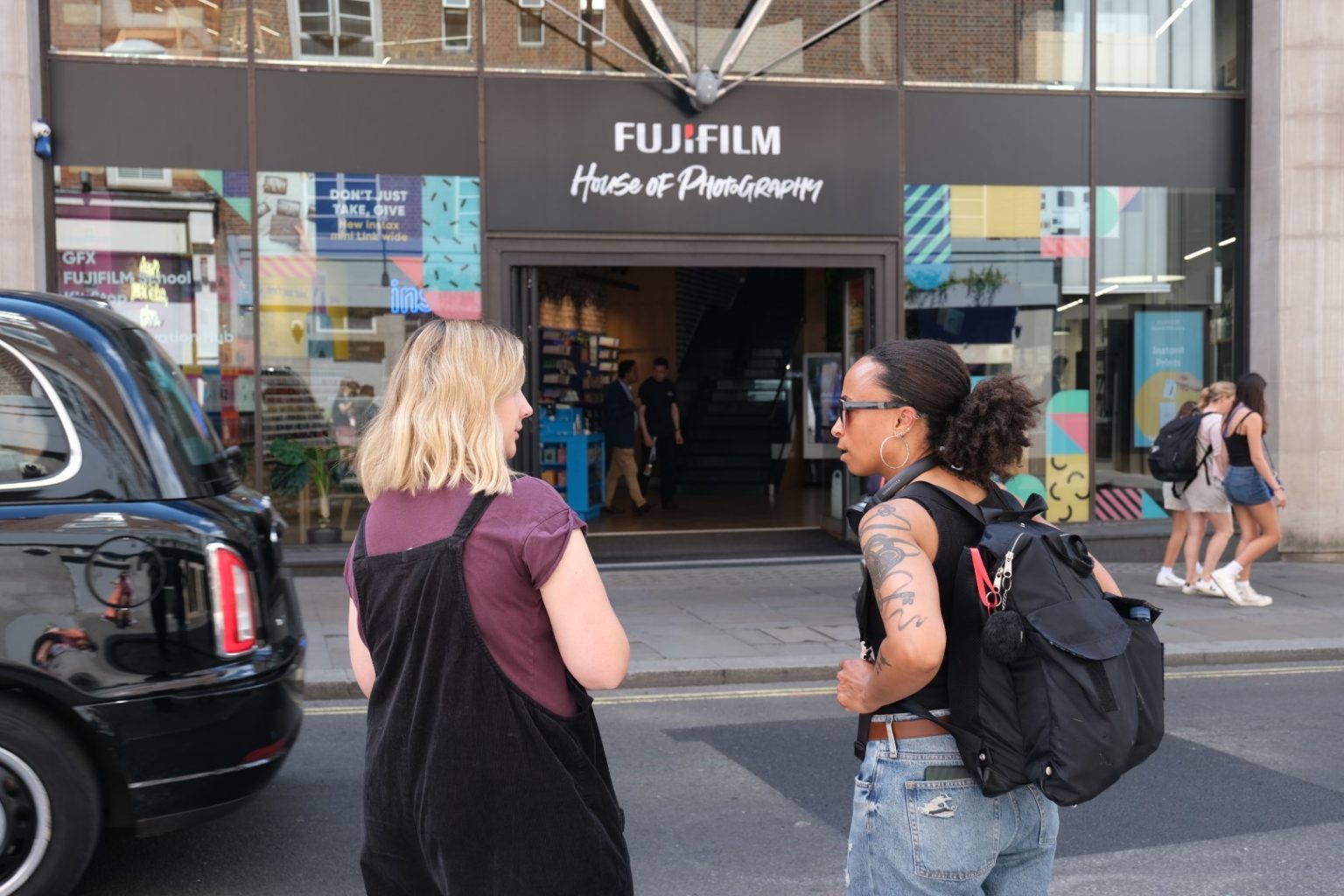
Photo by James Greenhalgh 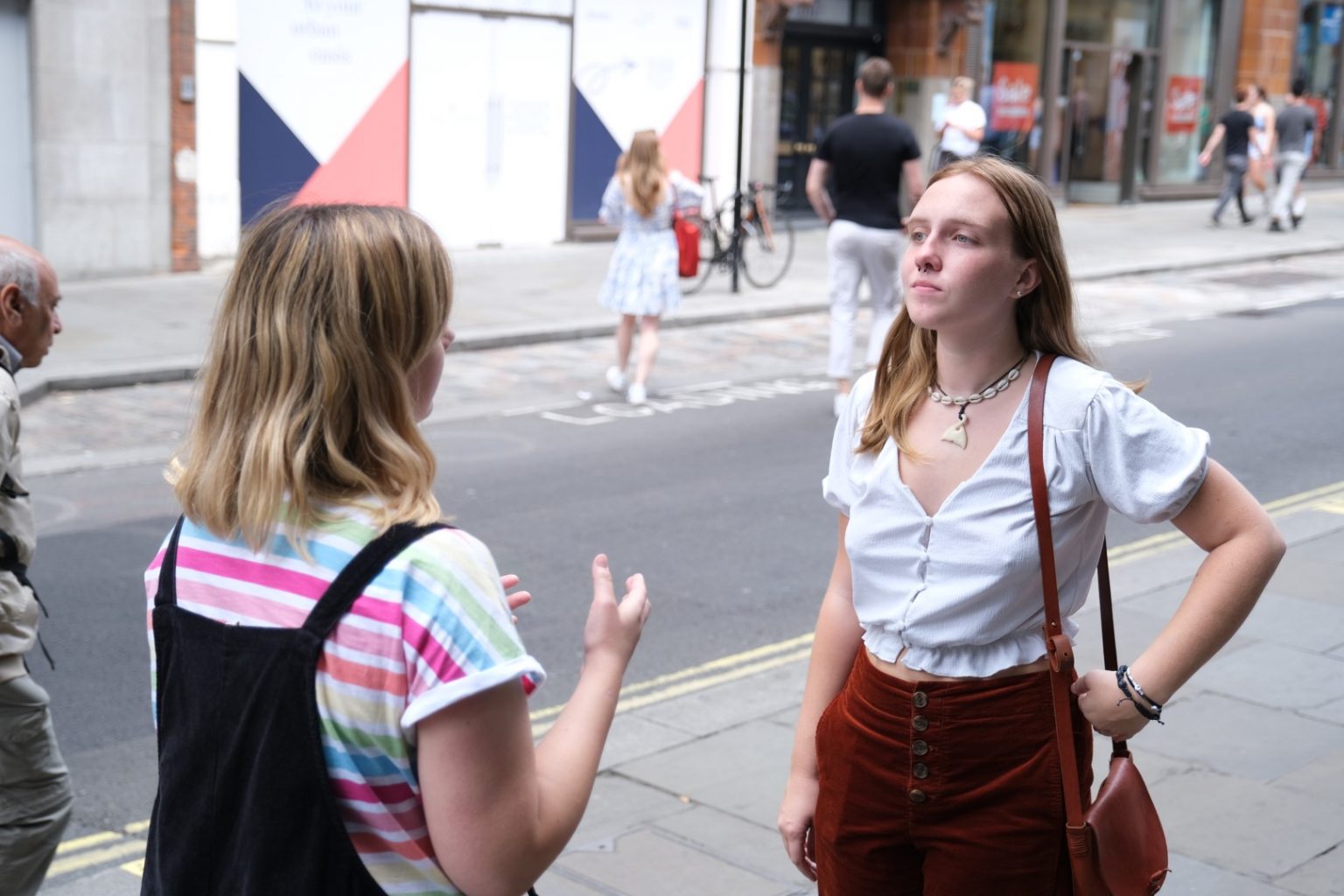
Photo by James Greenhalgh
Gear and lighting setup details
For this project, FUJIFILM kindly lent me the fantastic medium format Fujifilm GFX100S camera, with the Fujinon GF 63mm F2.8 R WR lens which is the closest to the human eye’s field of view. I had these items for a month to really test them and see whether they would work for the shoot. At first I considered using my trusty Fujifilm X-T3 camera with the Fujinon XF 35mm F1.4 lens, but the detail and tonal range captured by the GFX100S absolutely blew me away after a few test shoots. I knew I wanted to shoot everyone in a studio, with controlled light and capture the imperfections that make people real, so this was perfect for my needs.
As for the lighting, I like to keep things simple and classic for portraiture. I had a large octabox on a boom around 45 degrees to camera left, raised above the subject’s eye level, feathered in front of them to avoid hotspots, and then I added a white poly board on camera right for filling in the shadows on that side. The background is a textured grey-green vinyl one available at the studio.
Portraits vs Selfies
I wanted to make people think about why they might prefer the selfie or my photo. To wonder which is actually closer to the real person’s vibe on the day, since the viewer will never meet the women. The more serious posing in the studio portraits had the aim of showing the contrast between them and the mostly smiling, more casual looking selfies.
Some questions I invite the viewer to consider:
Why might someone prefer a selfie over the more serious photo? Could you say the selfies show a more genuine personality… or, are the selfies genuine? Just because they are smiling, are they necessarily a better reflection of the individual?
If the more serious poses and expressions in the studio photos make you think they aren’t reflective of the women’s personalities or moods at the time, I invite you to consider why you might think that? If you had seen some of the women taking their selfies, taking several minutes, sometimes even longer, to produce a “natural” looking smile they were happy with for the selfie, might you think differently?
There isn’t a right answer of course, as it will depend on the viewer’s cultural and personal biases.
Below are the final photos, with slight adjustments to colour and contrast. No retouching was done to any part of the subjects’ appearance.
You can also read the full interviews below the excerpts to find out more about each participant’s thoughts about selfies, filters and their own self-esteem.
Laila
“The only way I can represent myself in a comfortable way is when I’m in control. On social media, there is no personality and looks are the only way you can represent yourself.”
Laila, 29
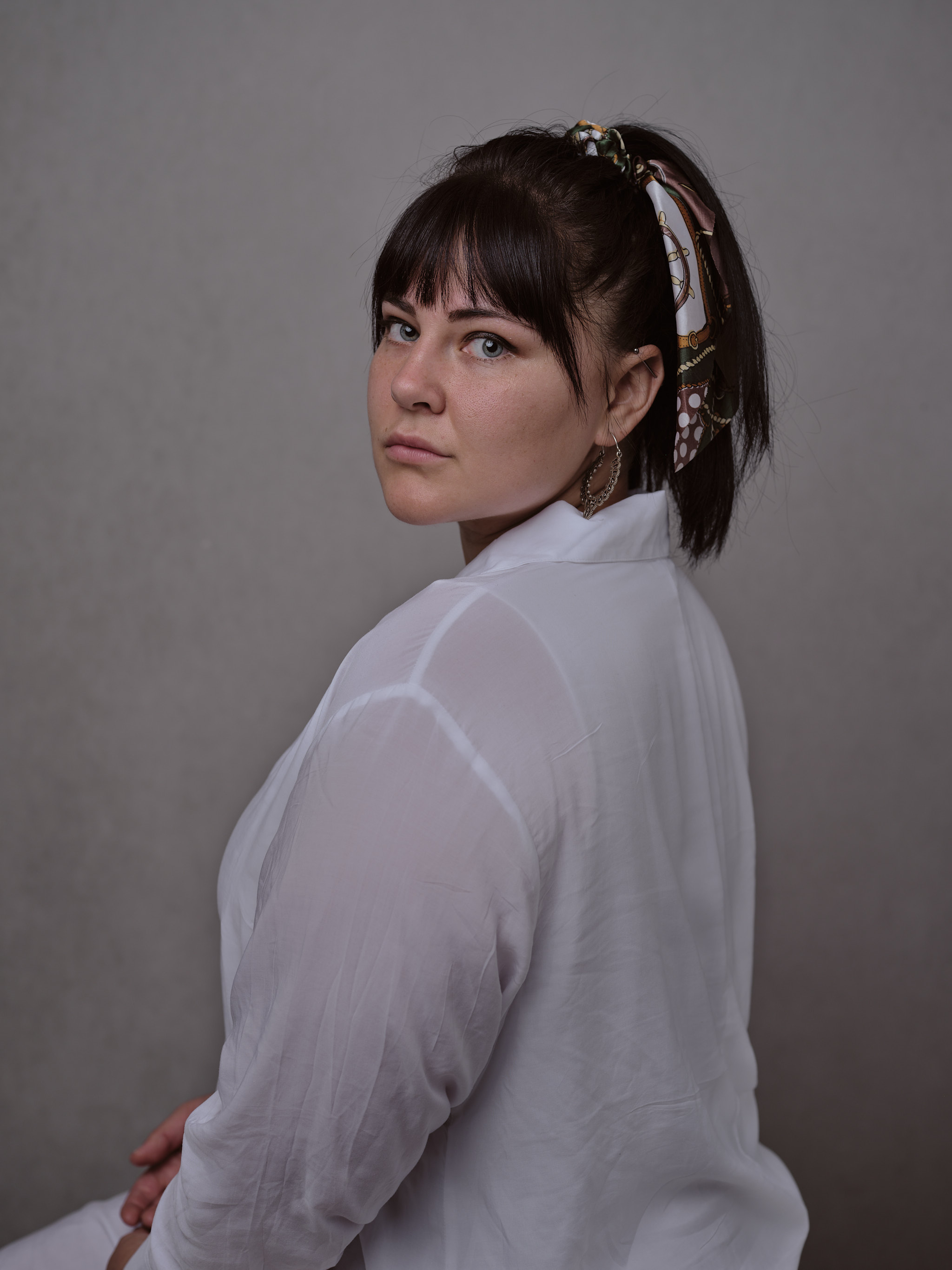
Cheri
“Most often other people’s selfies look good, but I wonder what’s been done to them. You see people in reality and they don’t look like that.”
Cheri, 43
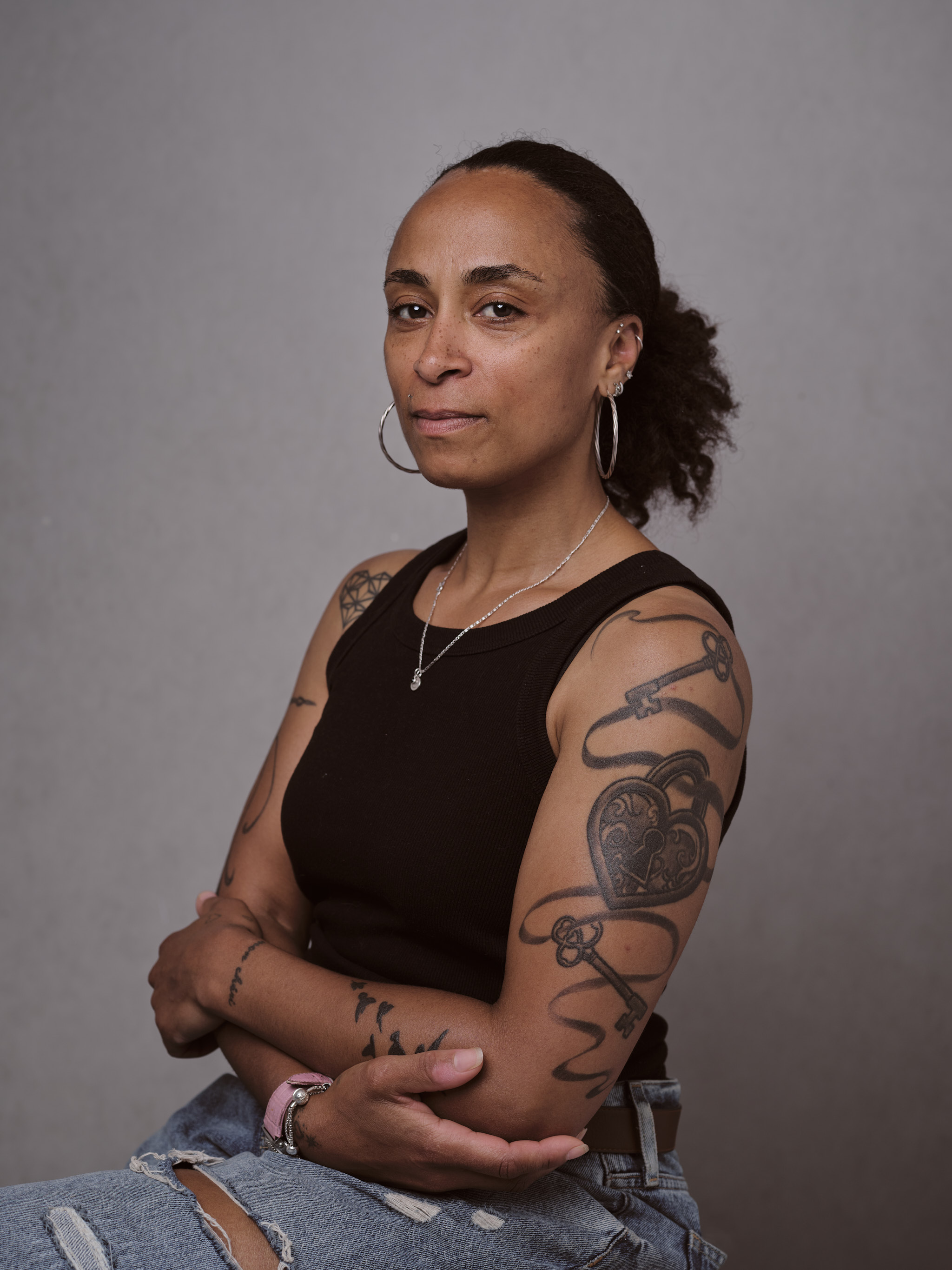
Isabella
“I grew up in the ballet world, so from a very young age, my friends and I had a very hyper-focused vision of body image. We’d look through magazines and talk about the dancers with their beautiful cheekbones and say, ‘if only we could change that about ourselves.’”
Isabella, 25
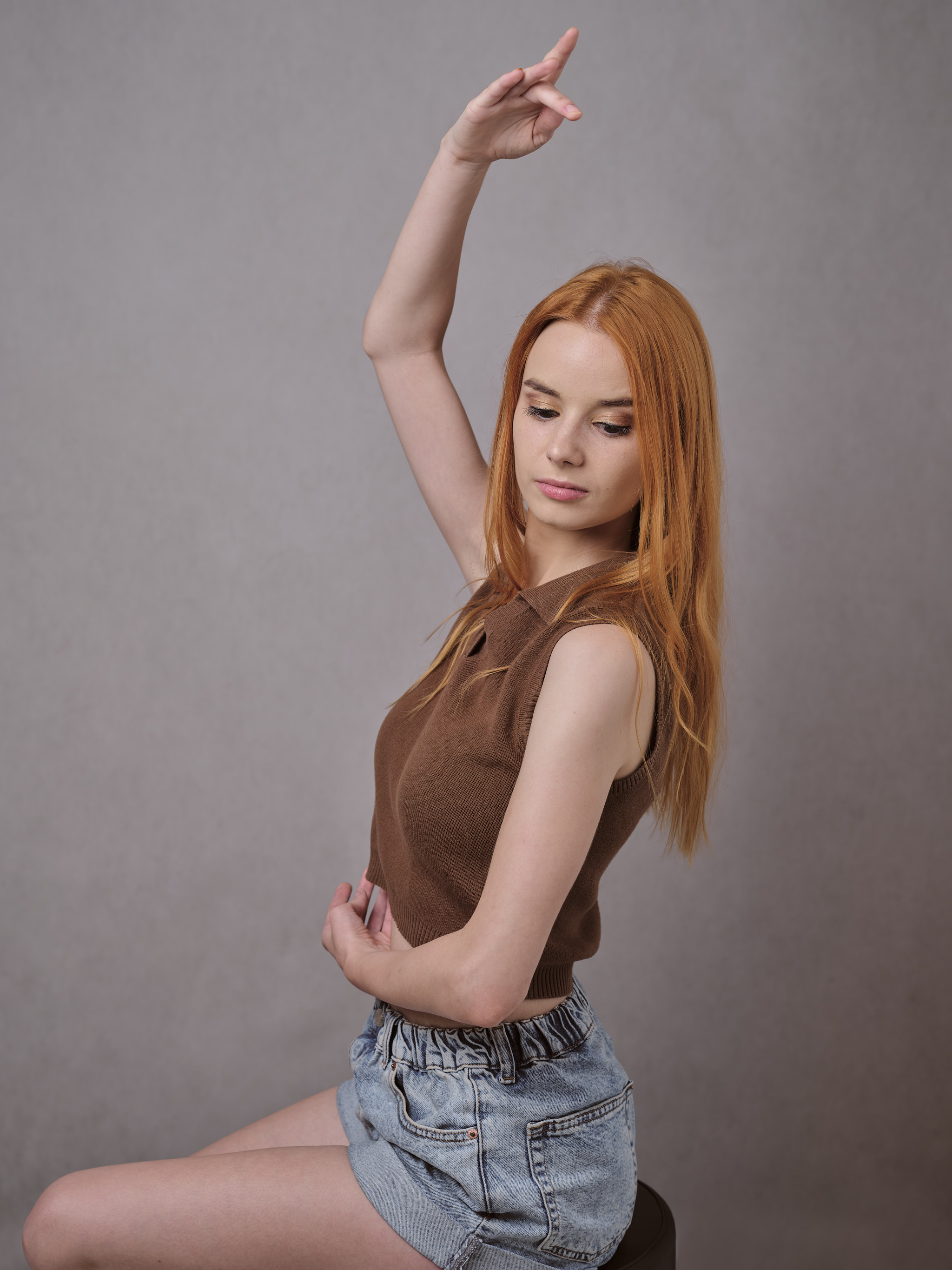
Ayumi
“I do feel there’s an expectation to present yourself a certain way. The picture has to be good and it has to look like you’re having fun. It has definitely become a lot of work.”
Ayumi, 30
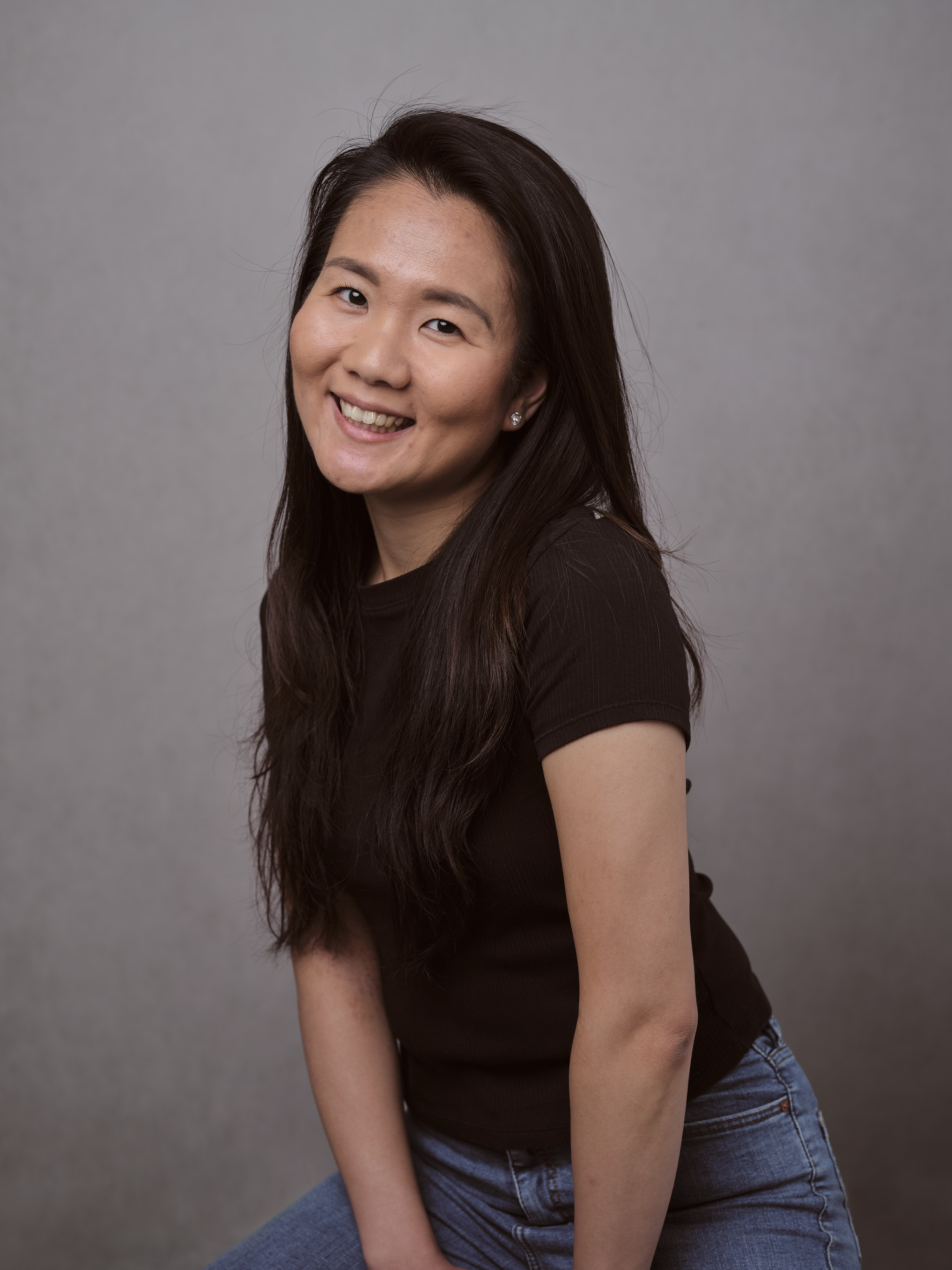
Alexandra
“You can see all my imperfections here, which you can’t in the selfie, but this is my face. This is how I look. This is what I see in the mirror.”
Alexandra, 31
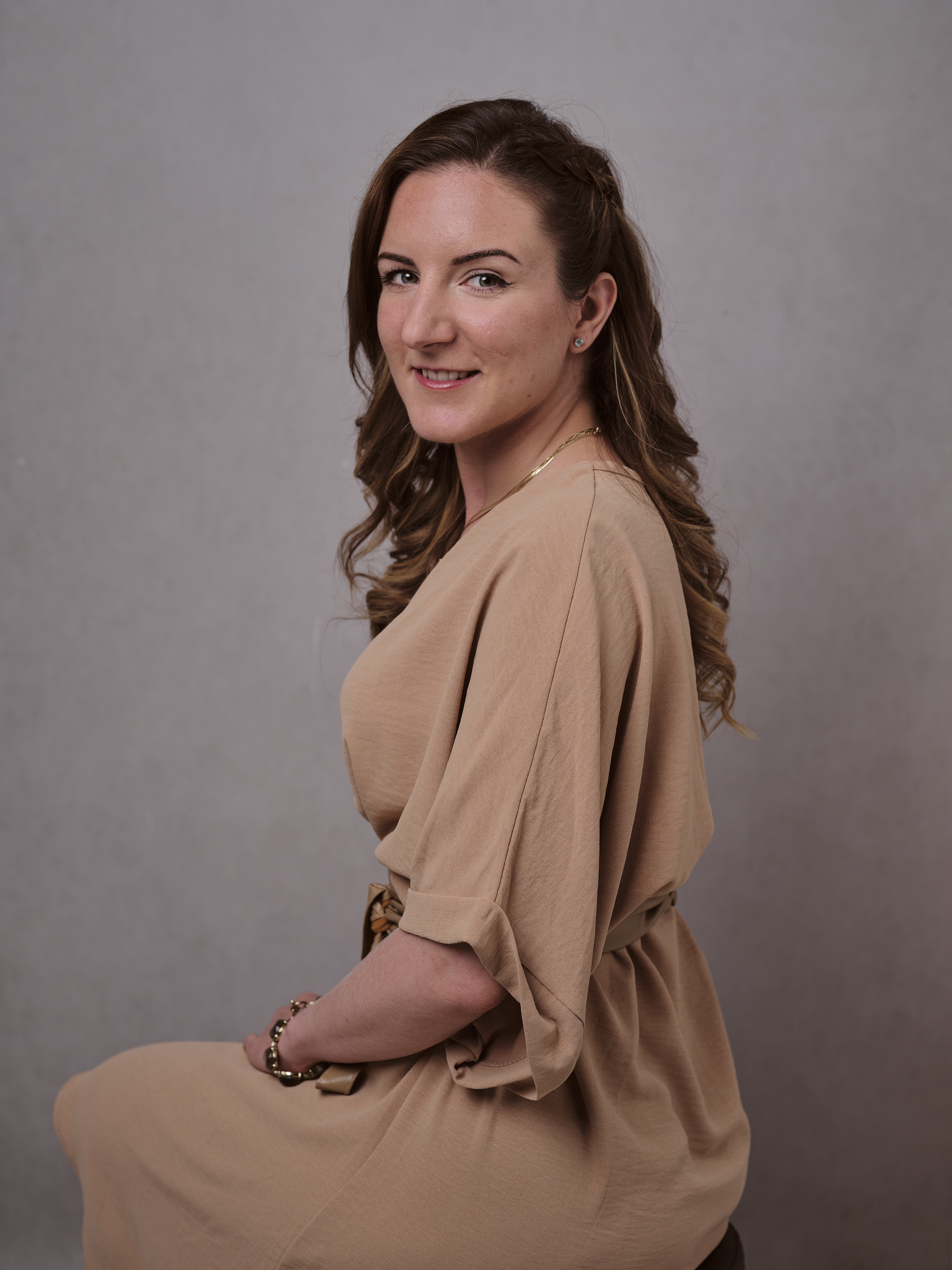
Esther
“Mostly, I just want to be okay with how I am, rather than how I am with a filter.”
Esther, 21
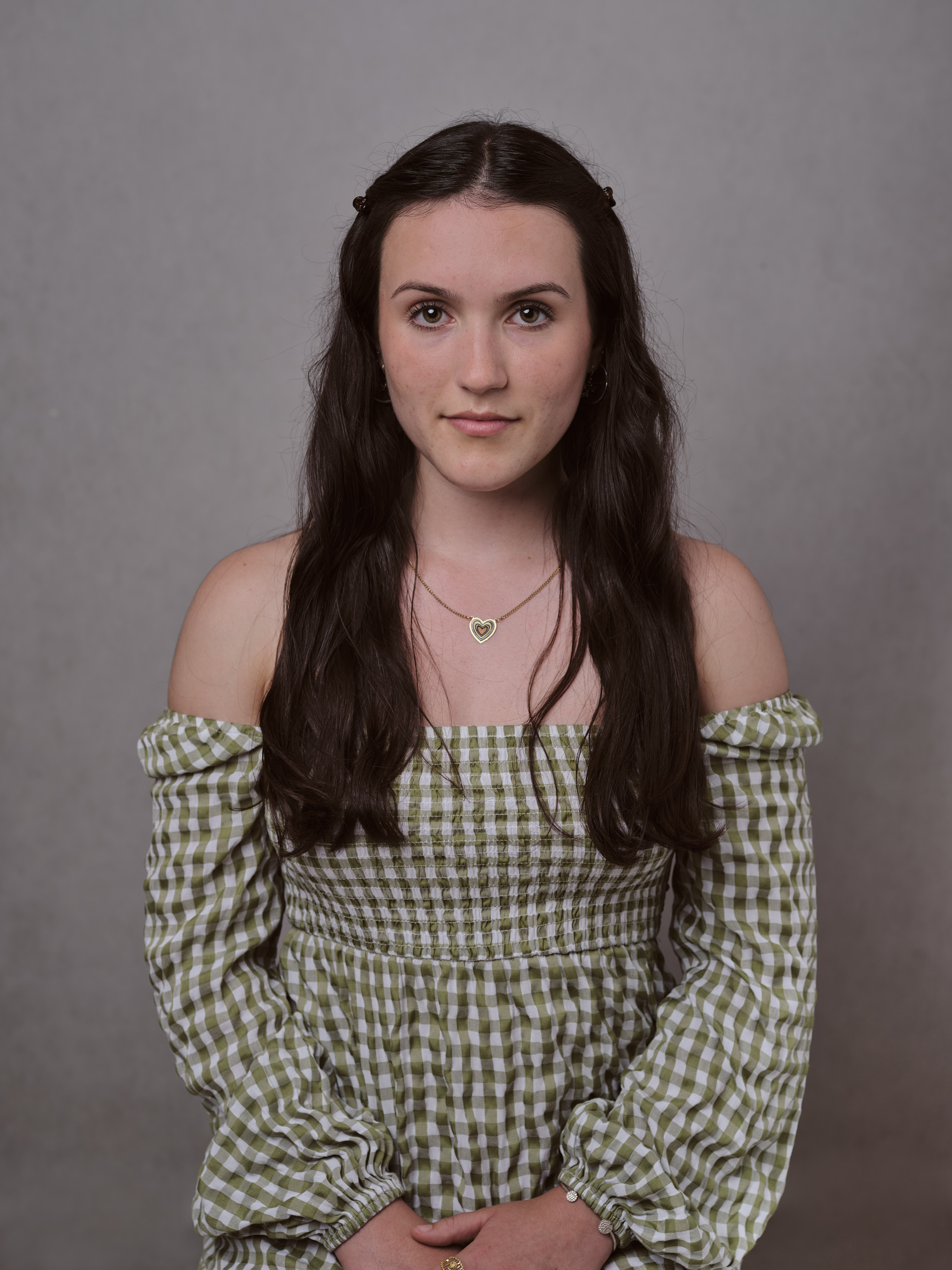
Megan
“When you’re looking at people’s images, even though you know they’re their most perfect images, it’s still hard not to get influenced by what you see. I try to remind myself that you’re not seeing all the ones that were deleted. But it’s also hard when you think someone’s best is still 10x better than your best.”
Megan, 26
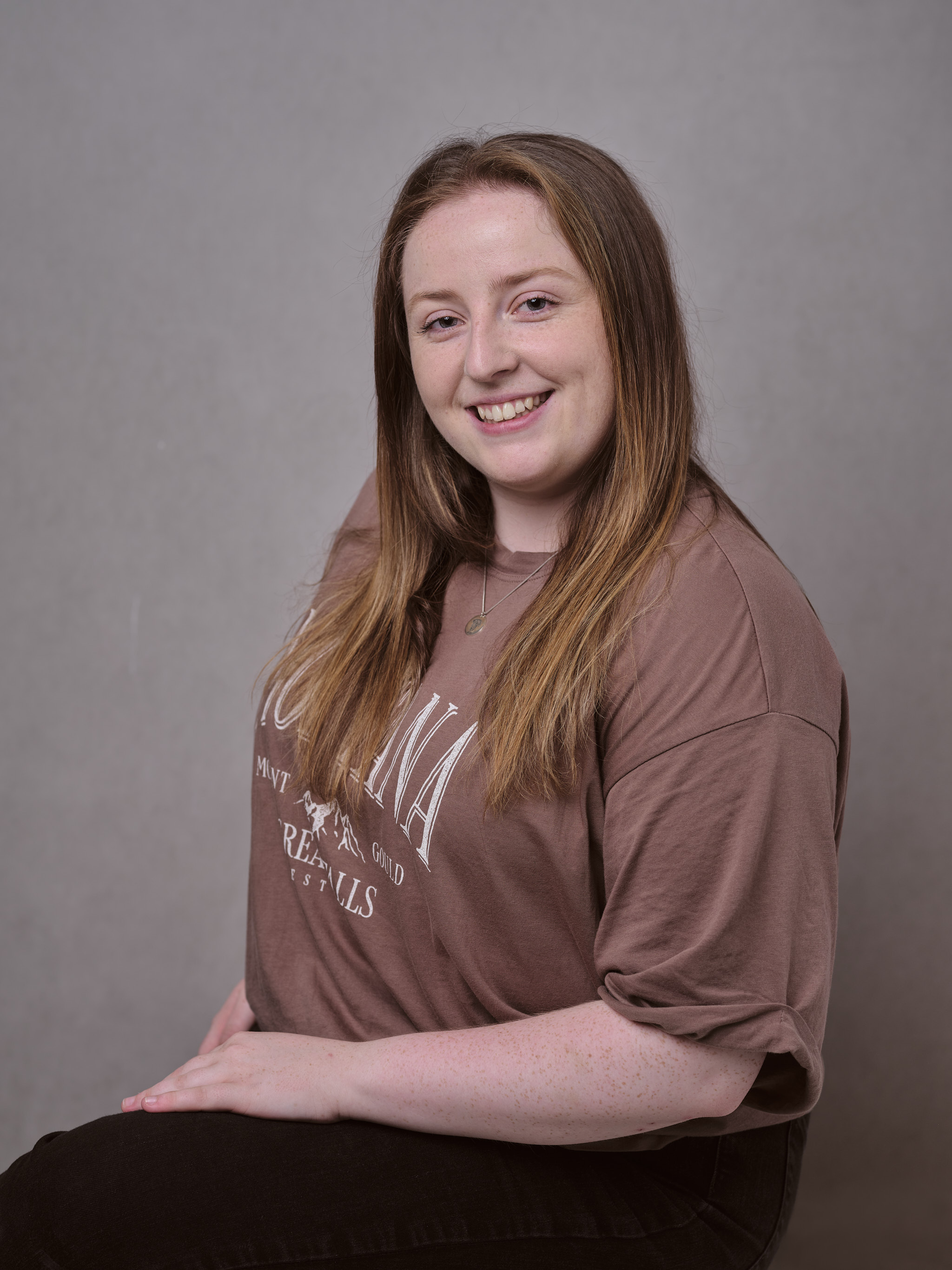
Rachel
“Selfies are a very raw picture. I see many very beautiful girls who edit theirs. It seems kind of backwards. But I think they’re reaching for perfection while I’m just trying to be me.”
Rachel, 19
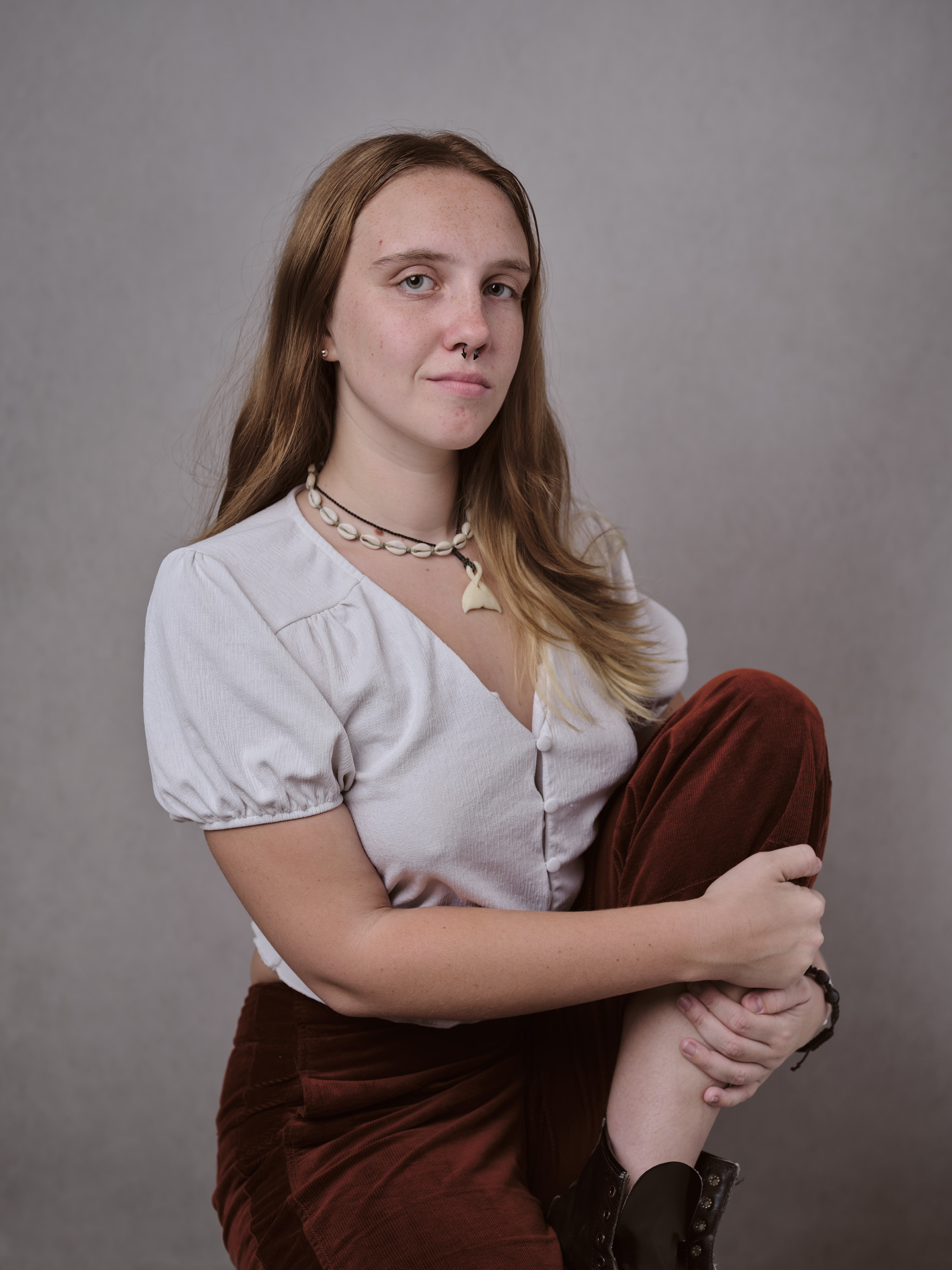
Ginger
“There are unattainable standards that people are putting out and that’s kind of terrifying. I have body dysmorphia, so I can’t really register what I look like within my brain.”
Ginger, 19
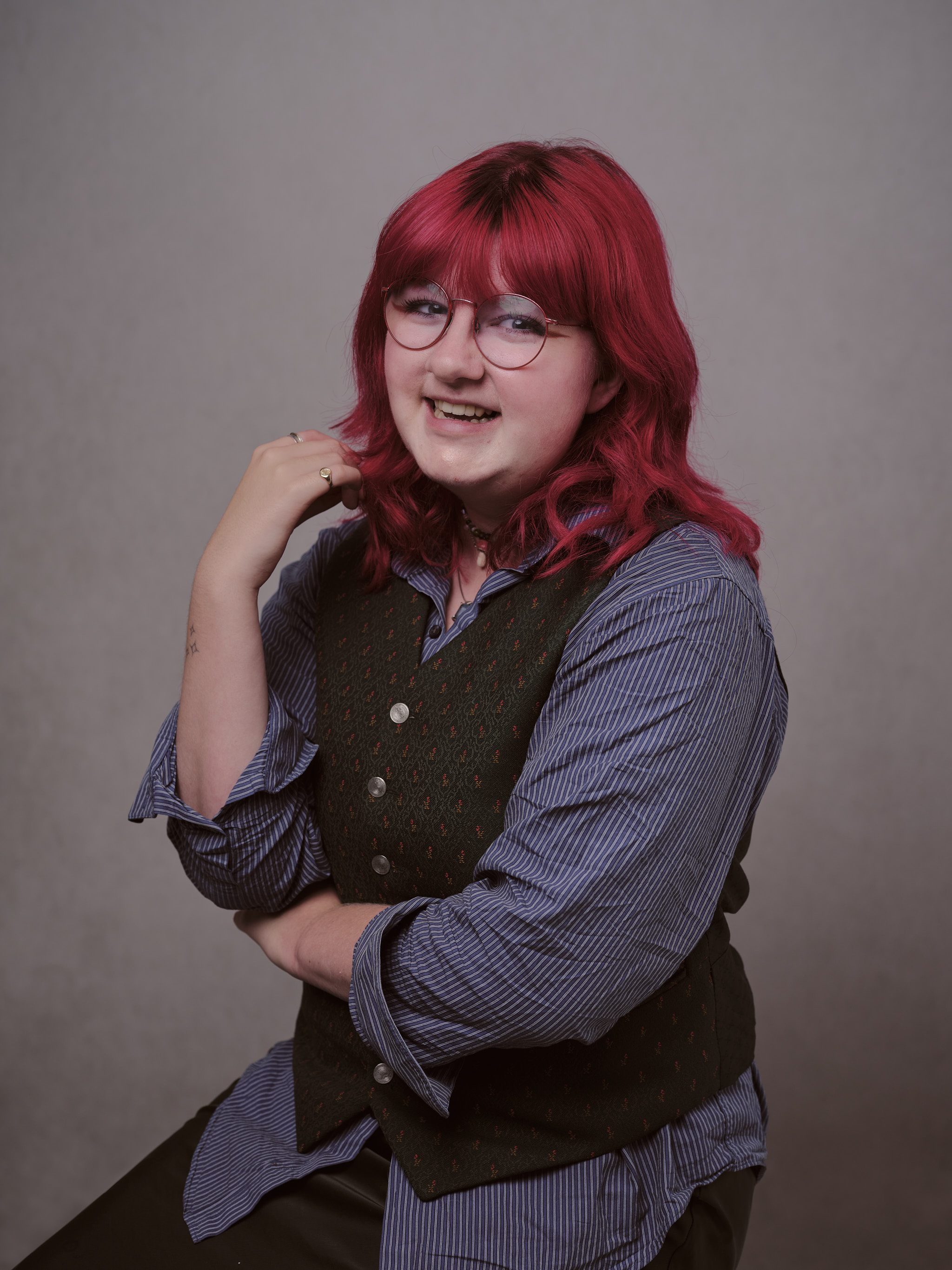
Swathi
“I don’t think I’m perfect, but I’ve accepted everything I’ve got.”
Swathi, 35
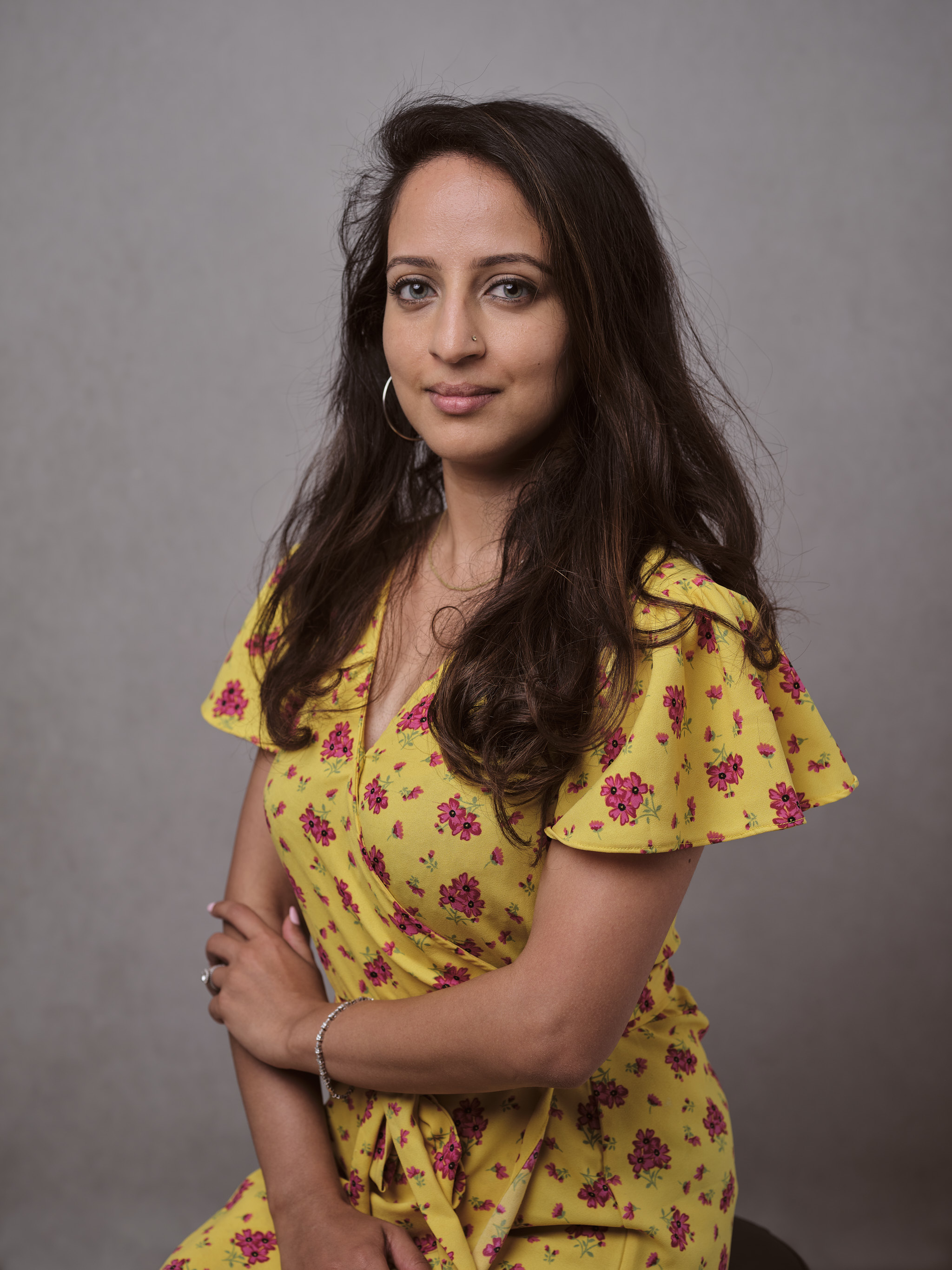
Kat
“I’ve used some filters every now and then. It’s usually smoothing filters. Being in the photo industry, we tend to know what’s real and what’s not, so I have the knowledge that other people are doing it, and I know what I’m seeing isn’t always real.”
Kat, 27
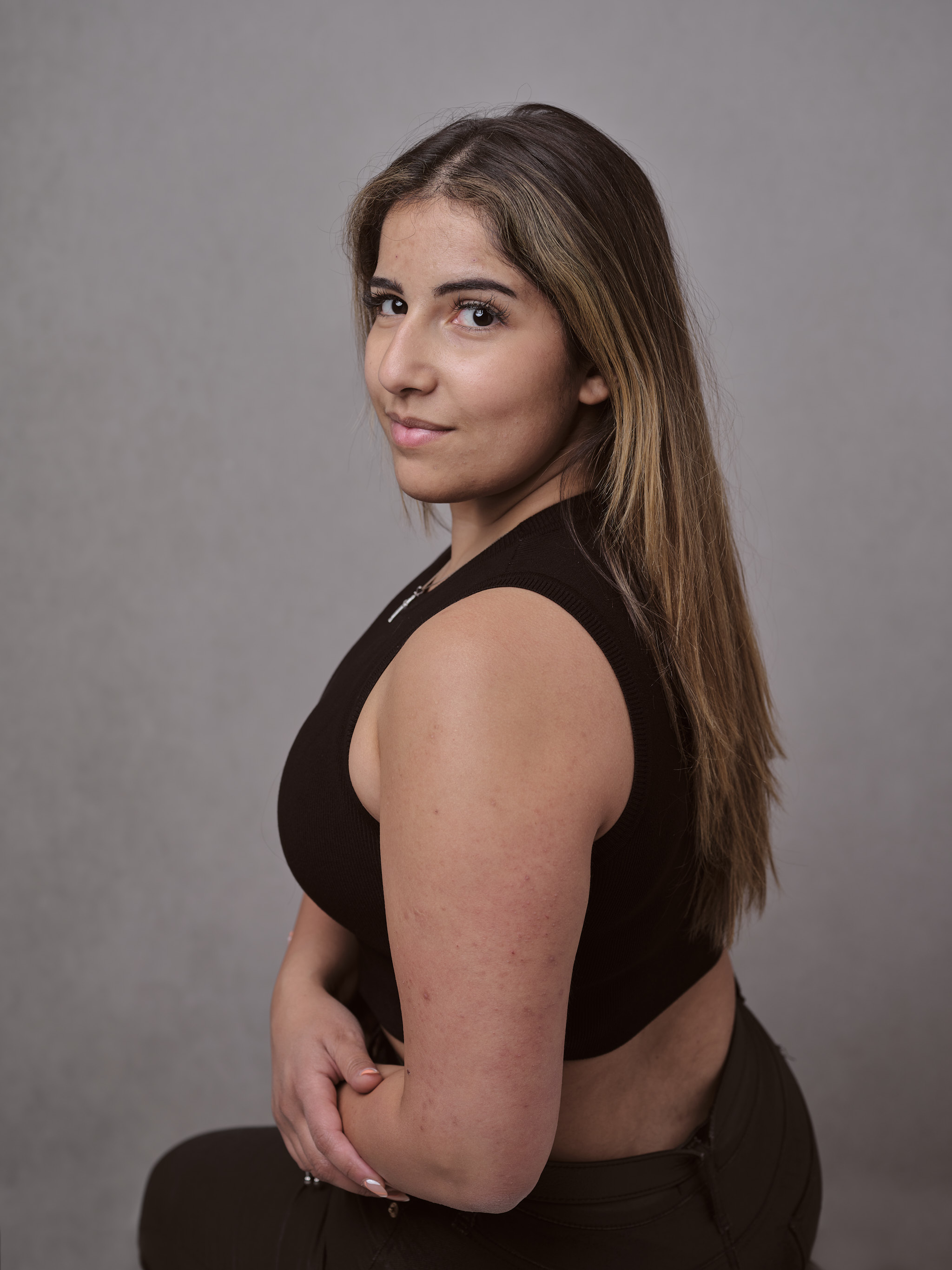
Xin Yi
“People have the right to change their own photos to feel how they want it to feel, even if it’s very different to the original.”
Xin Yi, 21
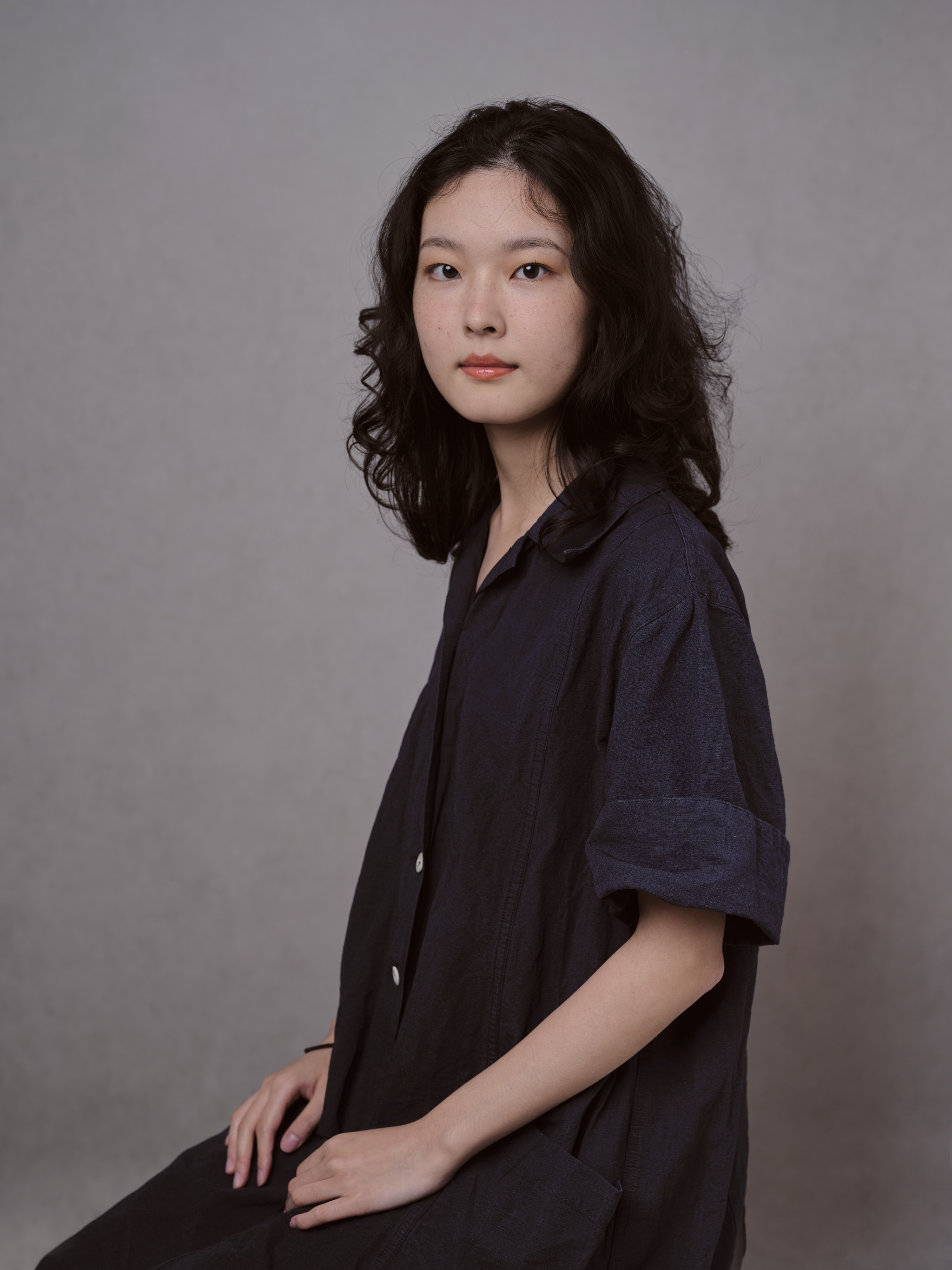
Did your first impression of the person change, depending on whether you viewed the portrait or the selfie? How were they different?
Do you have experience with pressure to look perfect in selfies? Have you tried filters and how did you find them?
Behind the scenes
Enjoy these BTS shots, all taken by James Greenhalgh who was assisting on the day – a big thank you to him for capturing these!
Final thoughts and thank yous
I would like to say a huge thank you to the FUJIFILM UK team (Andreas, Elle, Sarah, James, and the HoP team) for picking this project up, supporting throughout and facilitating on the shoot days. And of course, thank you to the 12 ladies who braved the unfiltered shoot and shared their thoughts with us in the interviews. I sincerely believe we did something relevant and worthwhile by focusing on this issue of self-image online, that affects so many women and girls in today’s times.
And thank you, reader, for getting this far! I’d love to hear your thoughts in the comments.
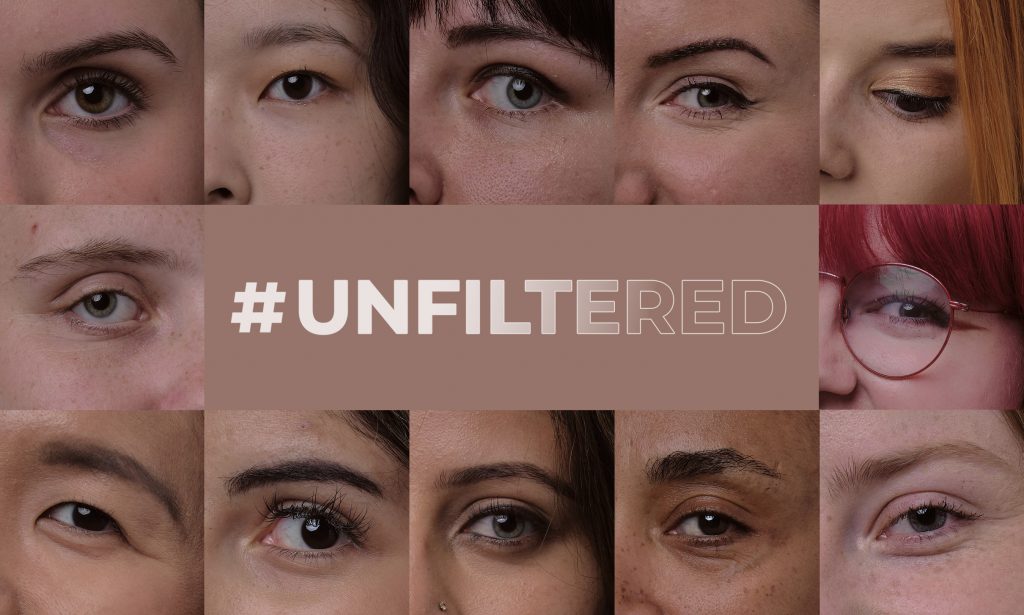
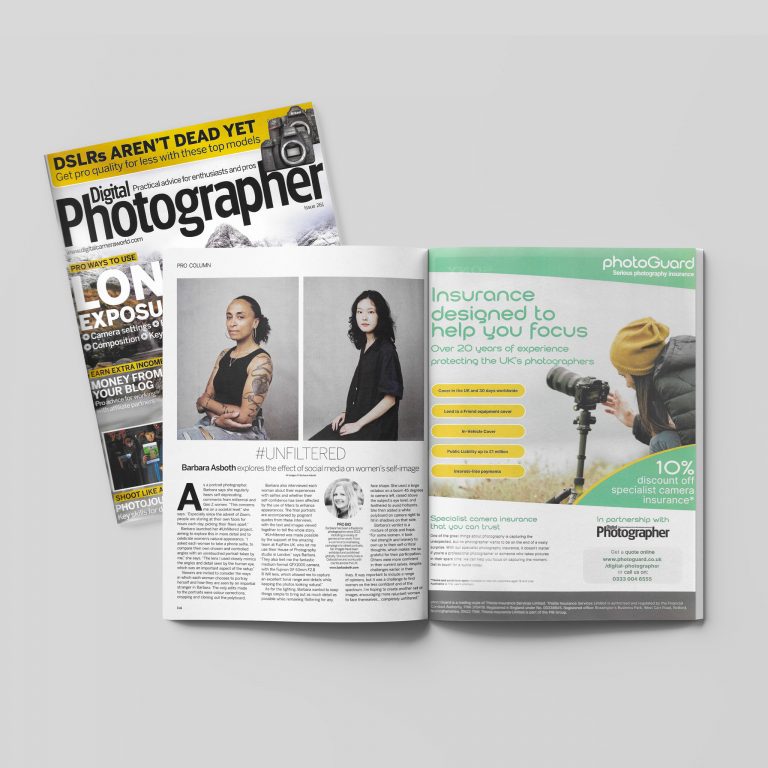
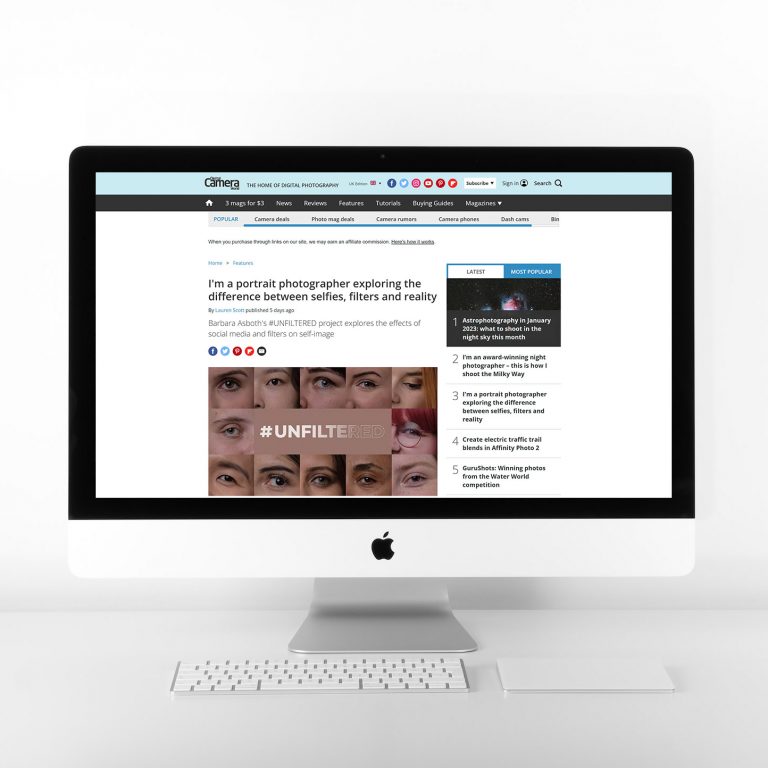
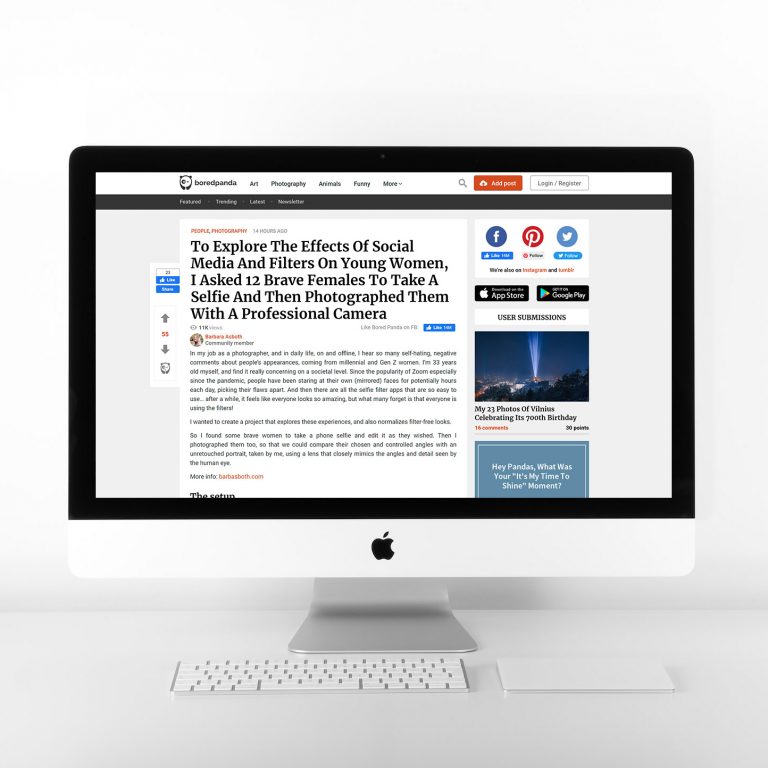
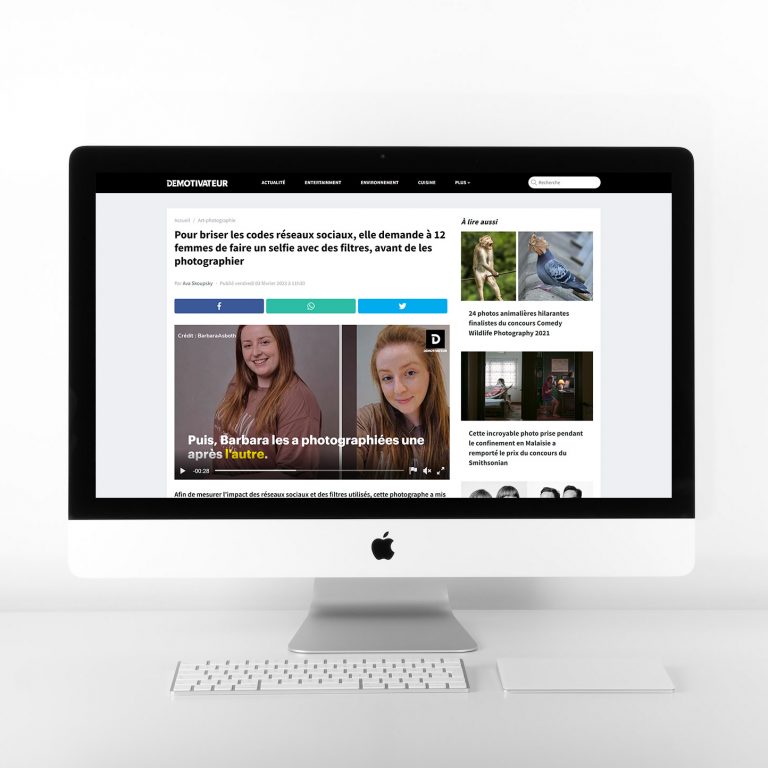
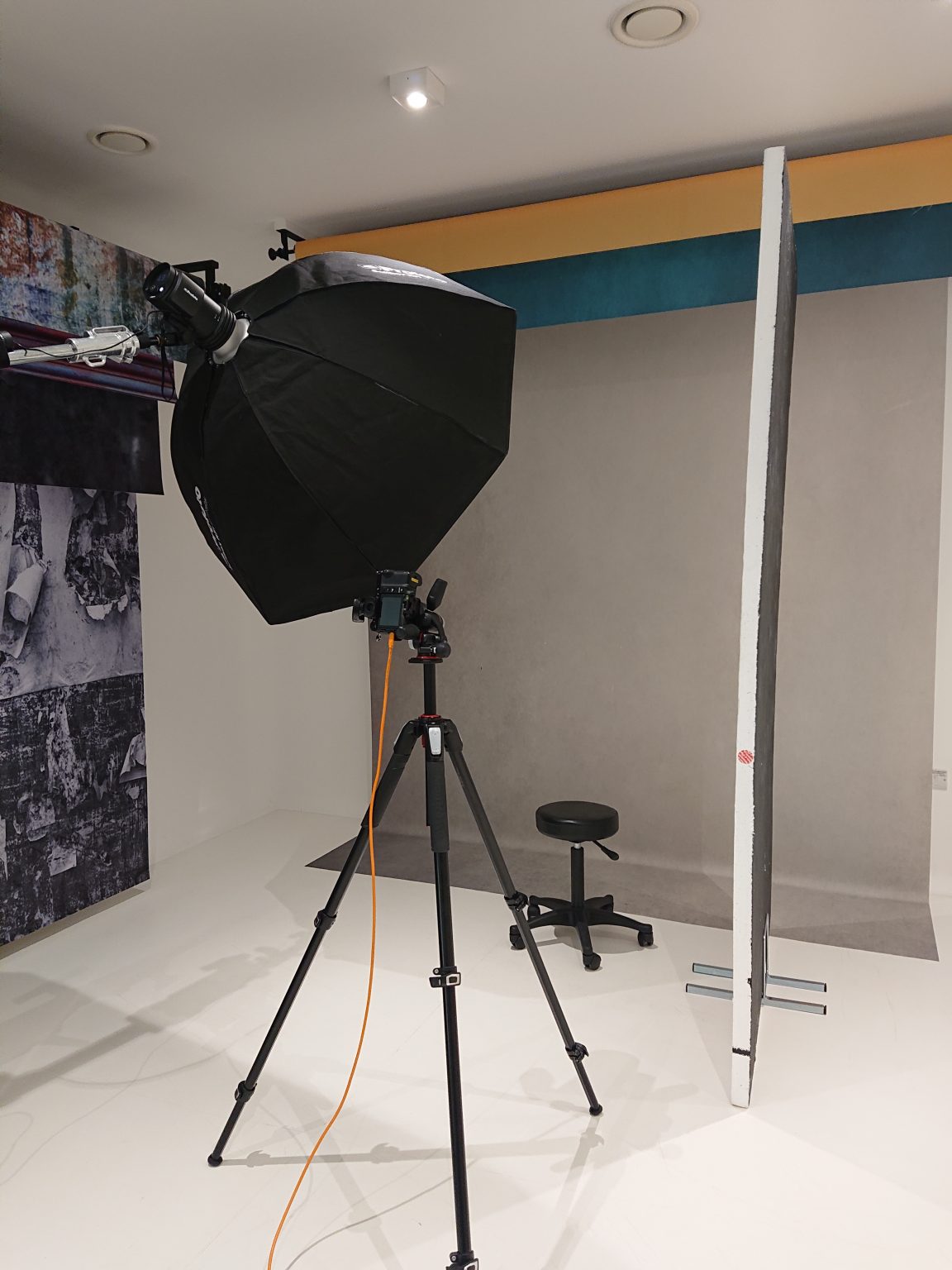
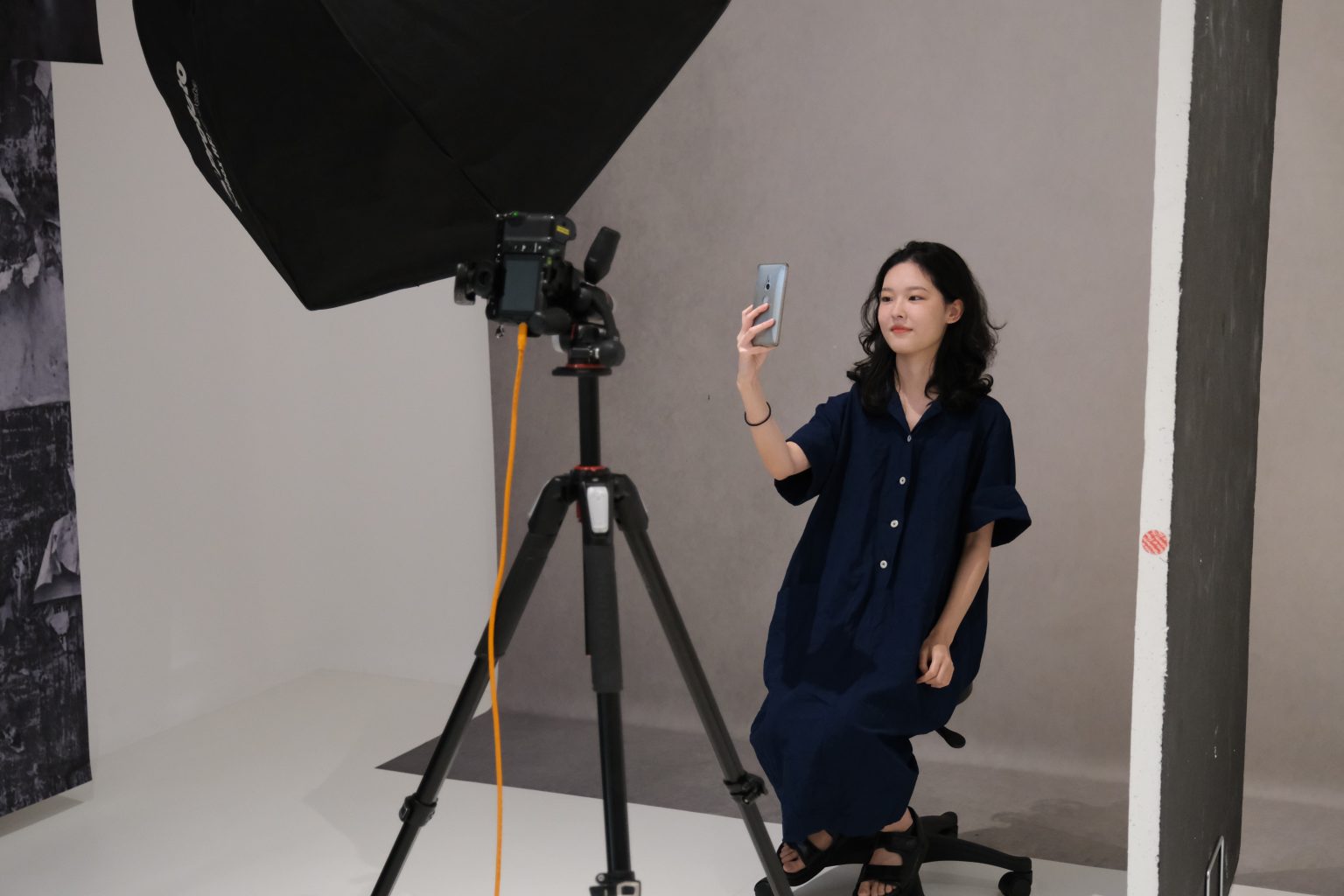
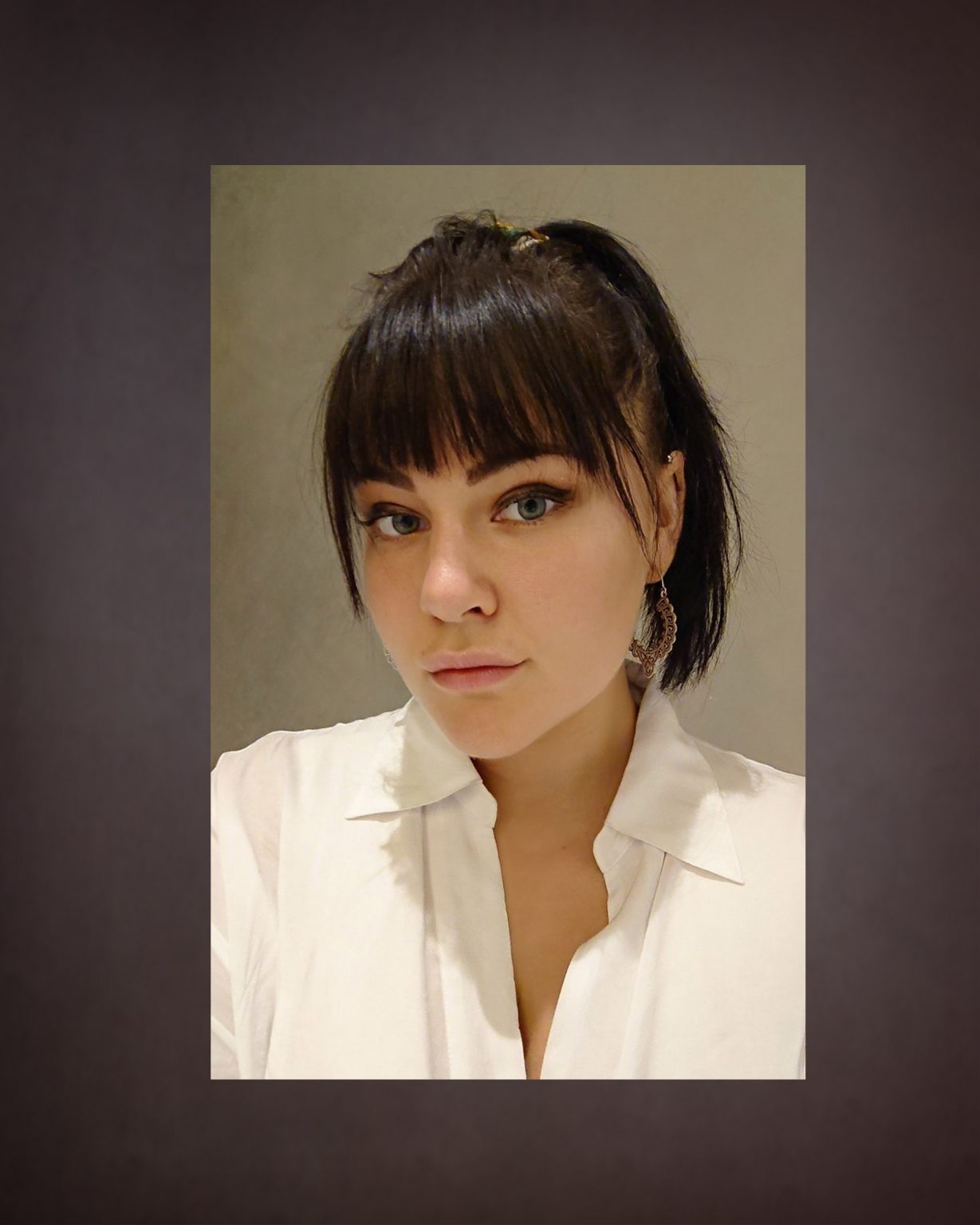
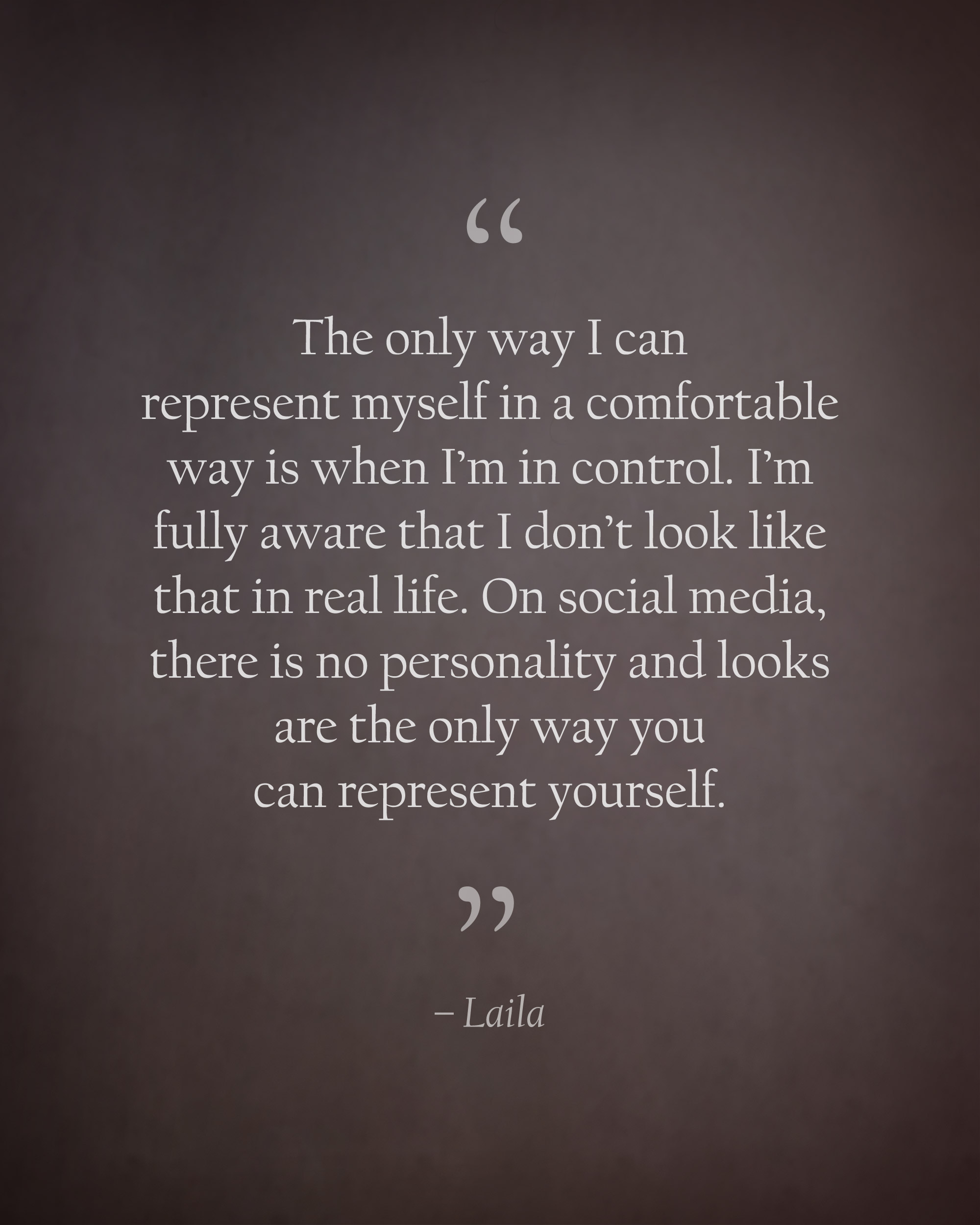
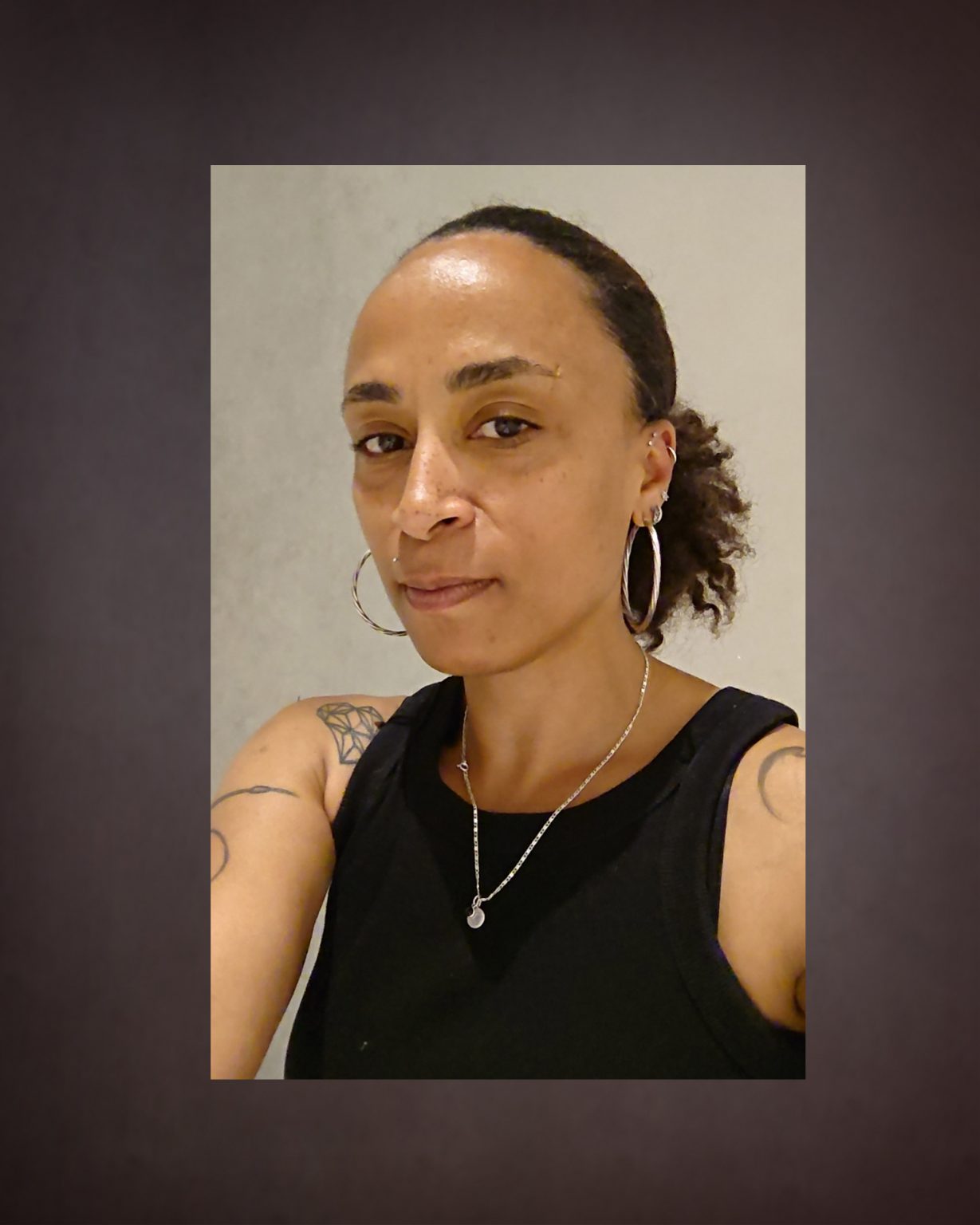
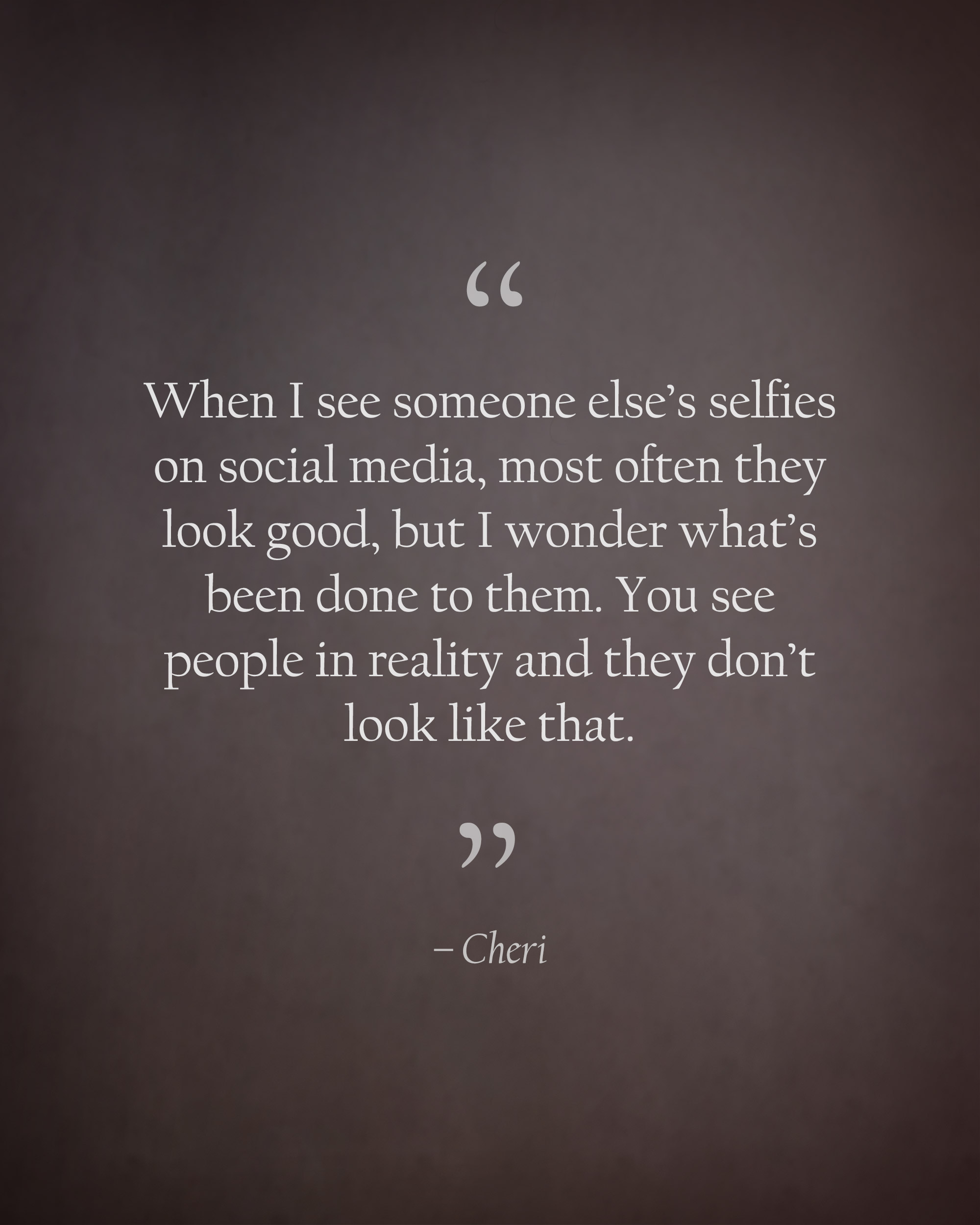
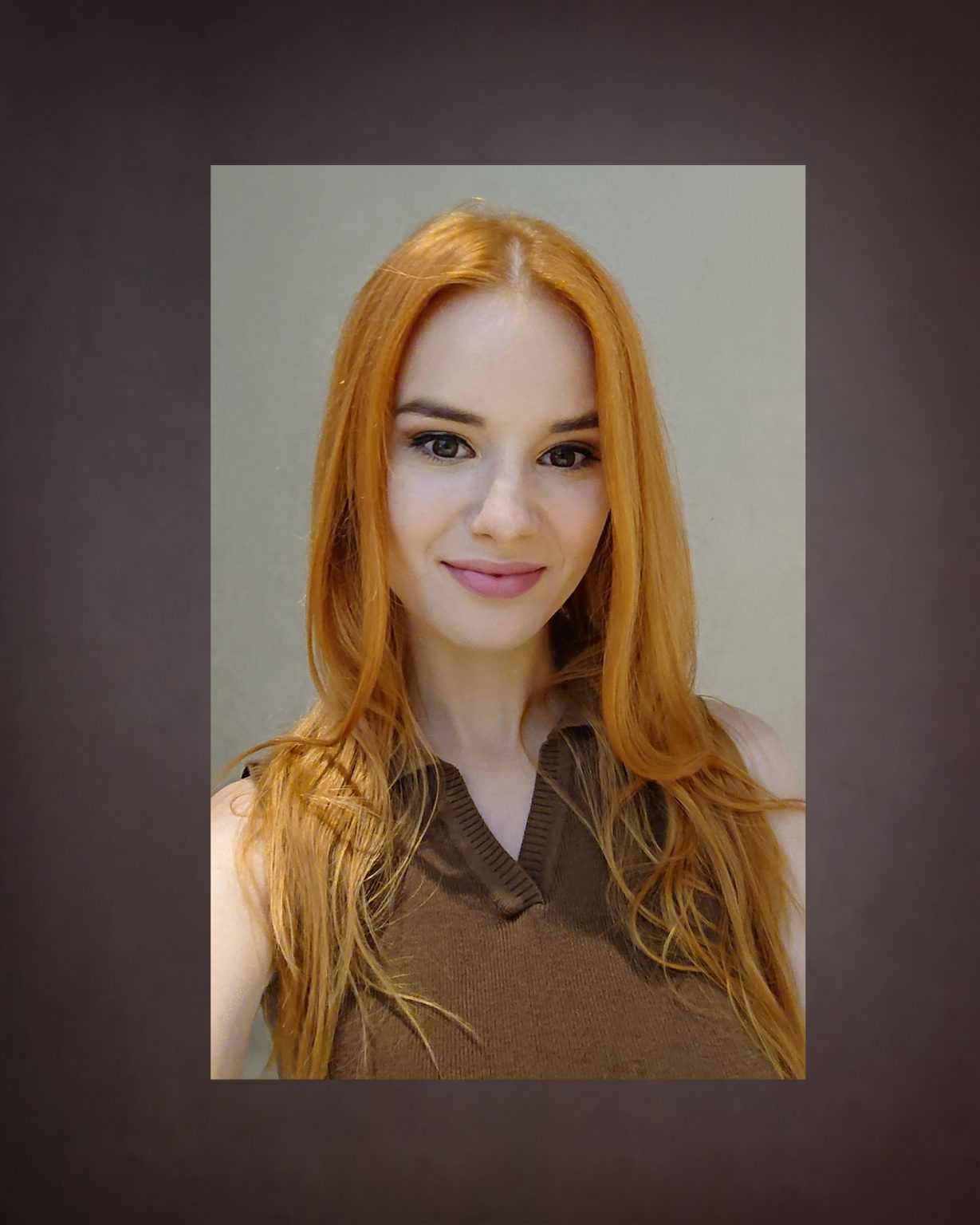
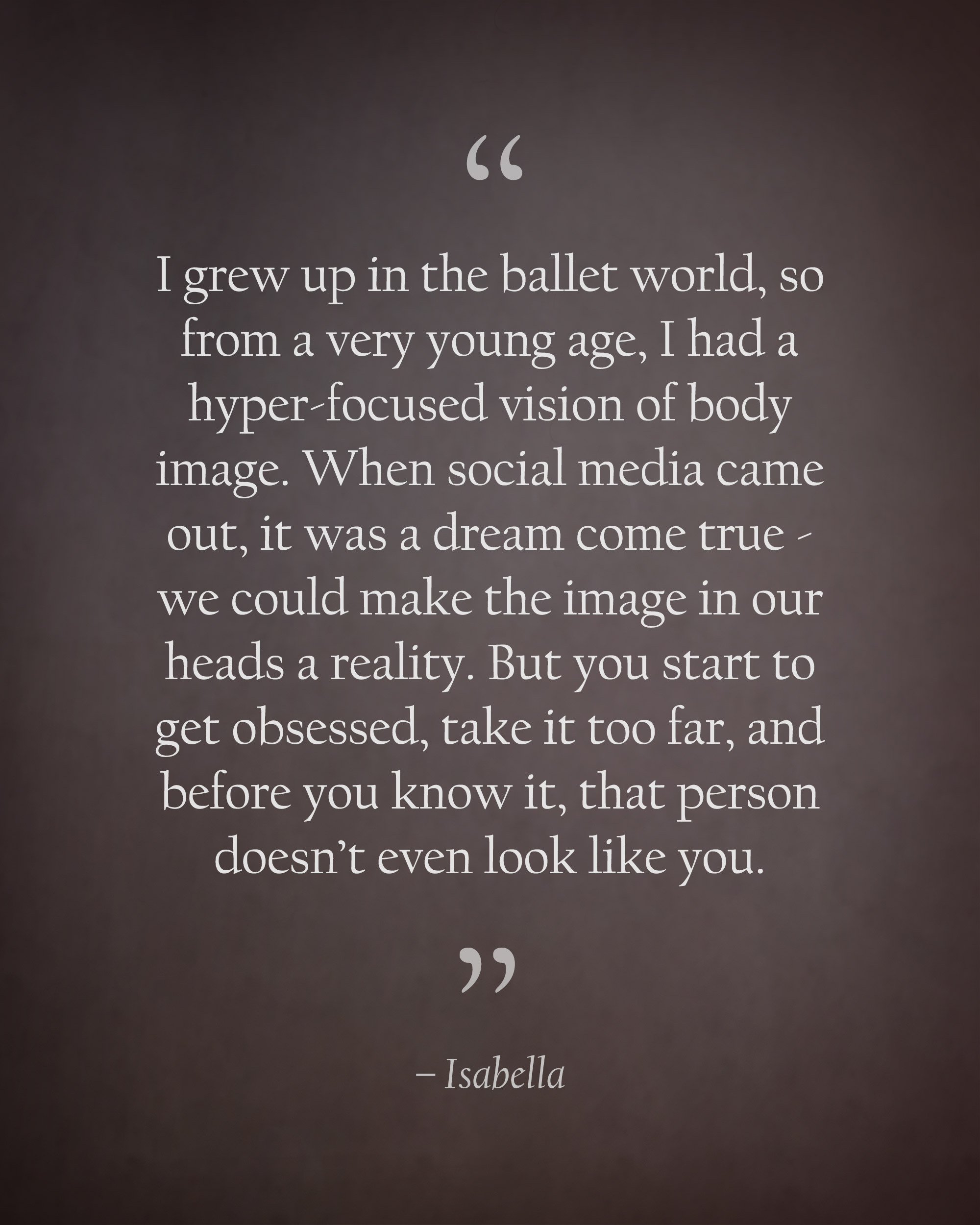
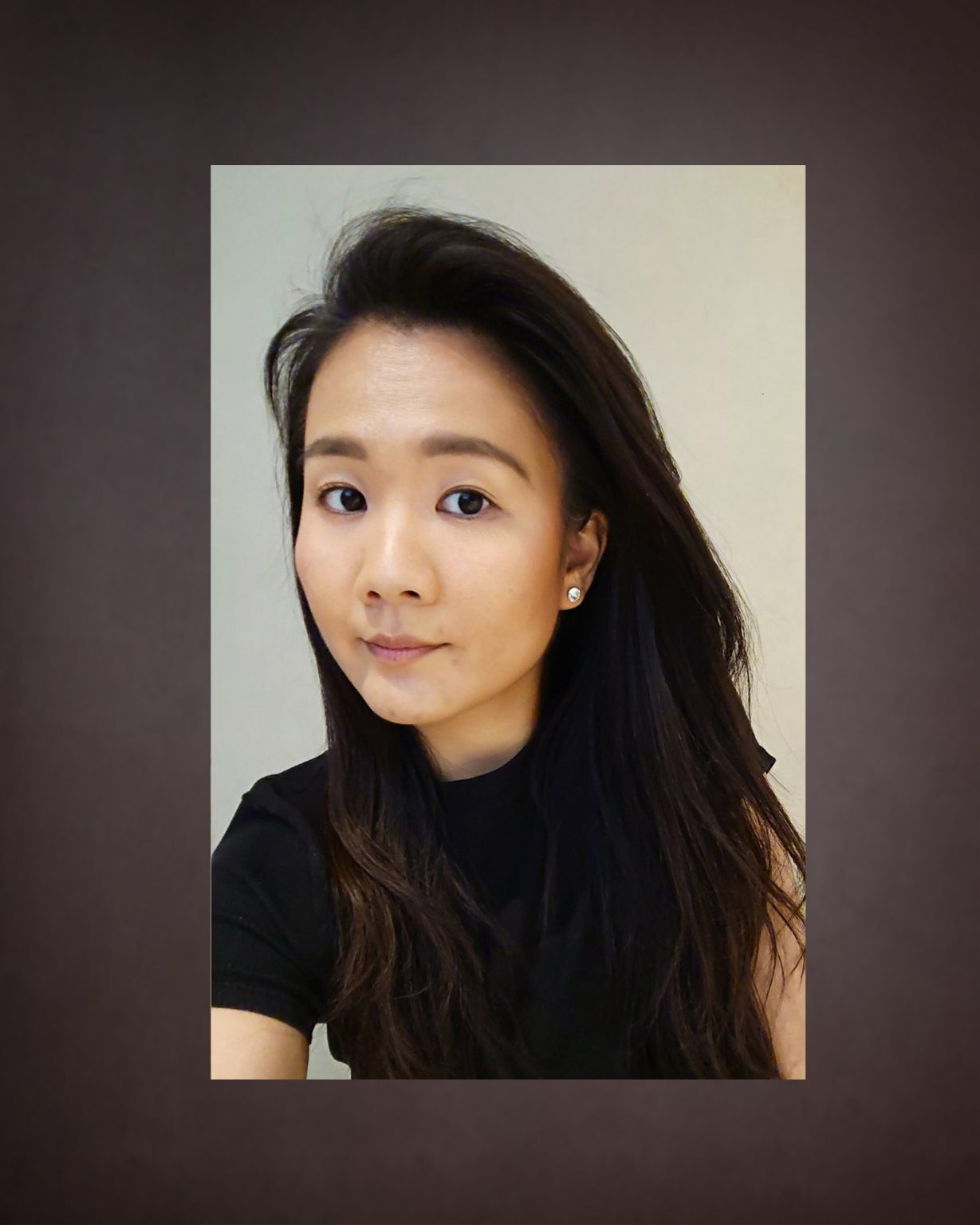
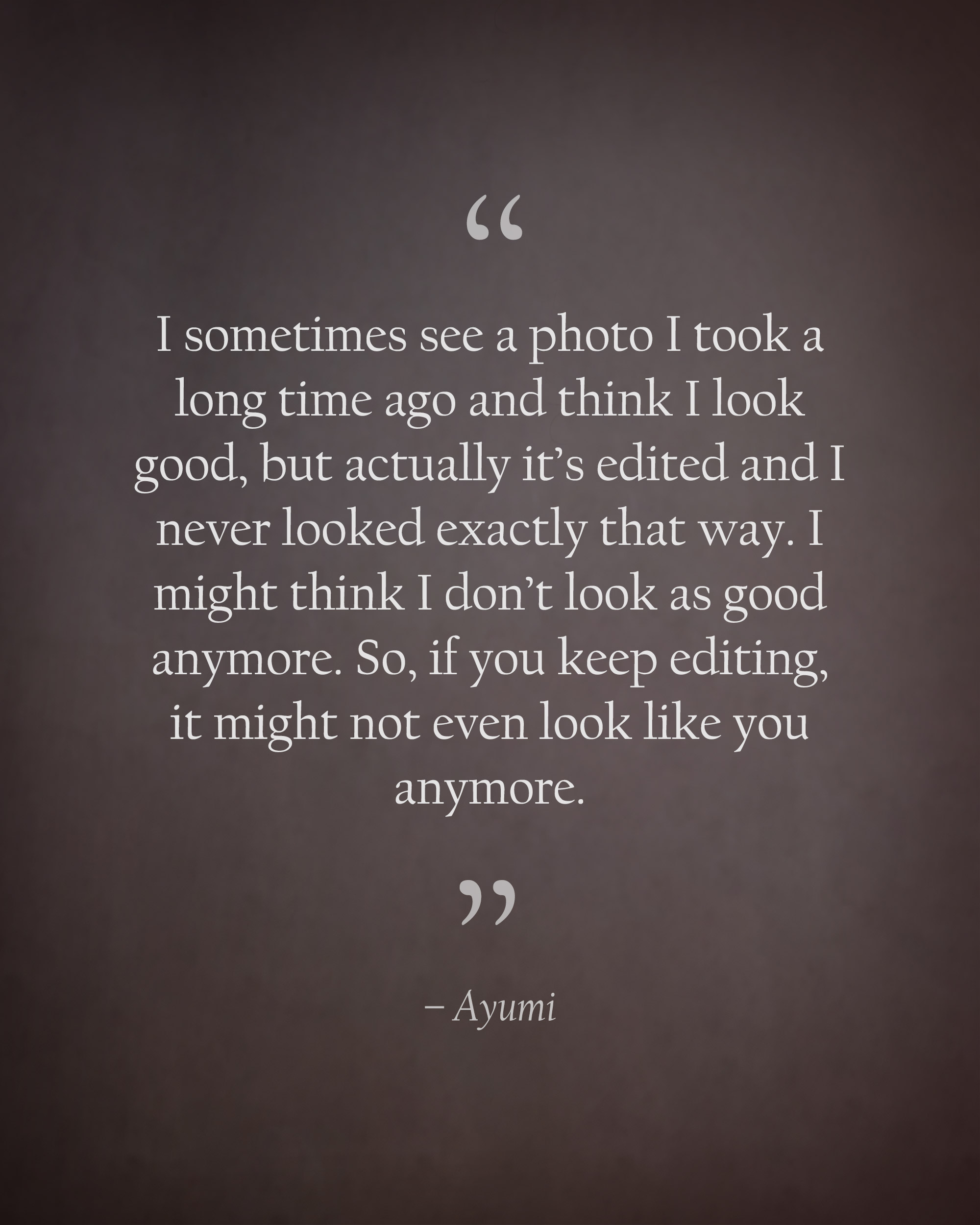
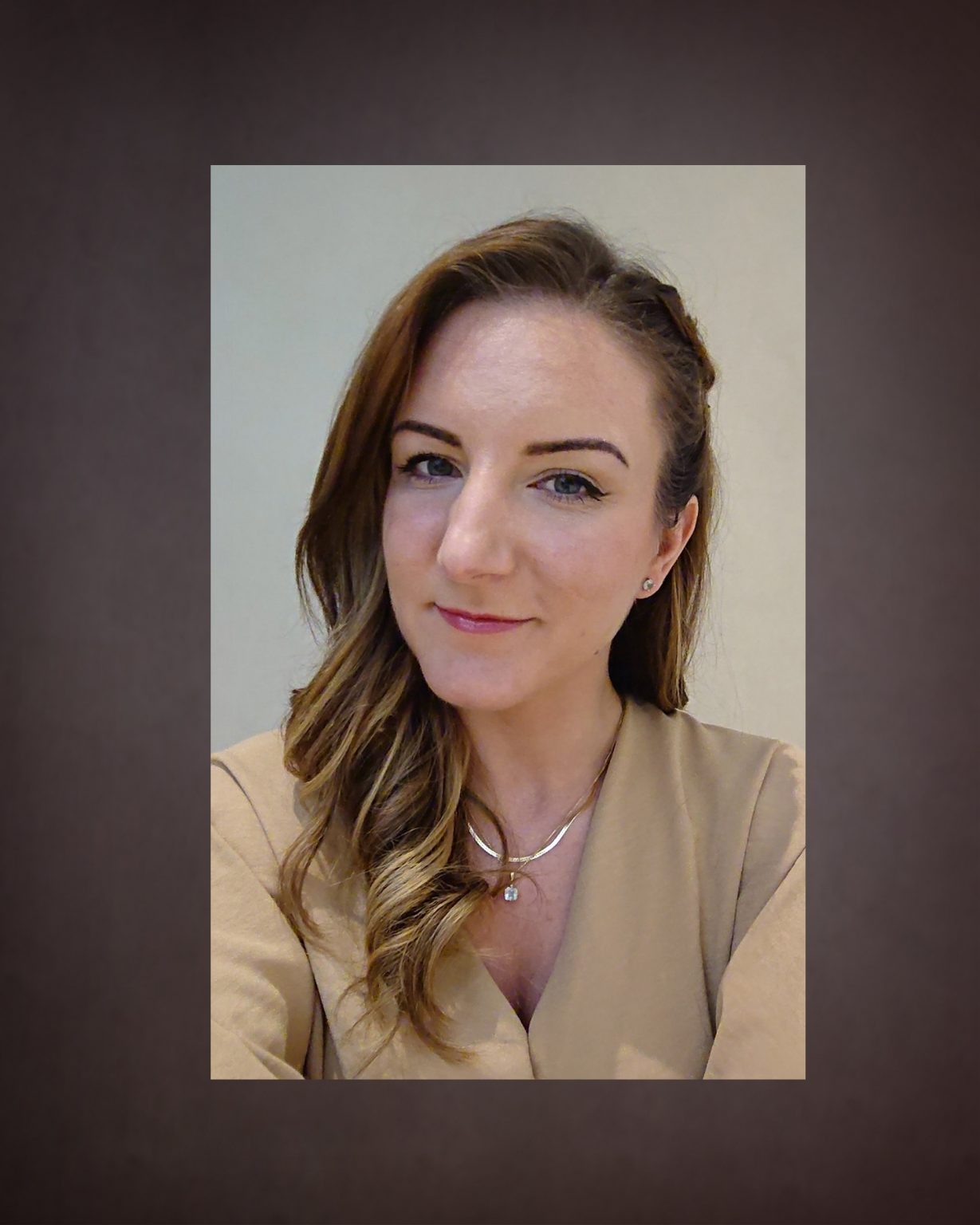
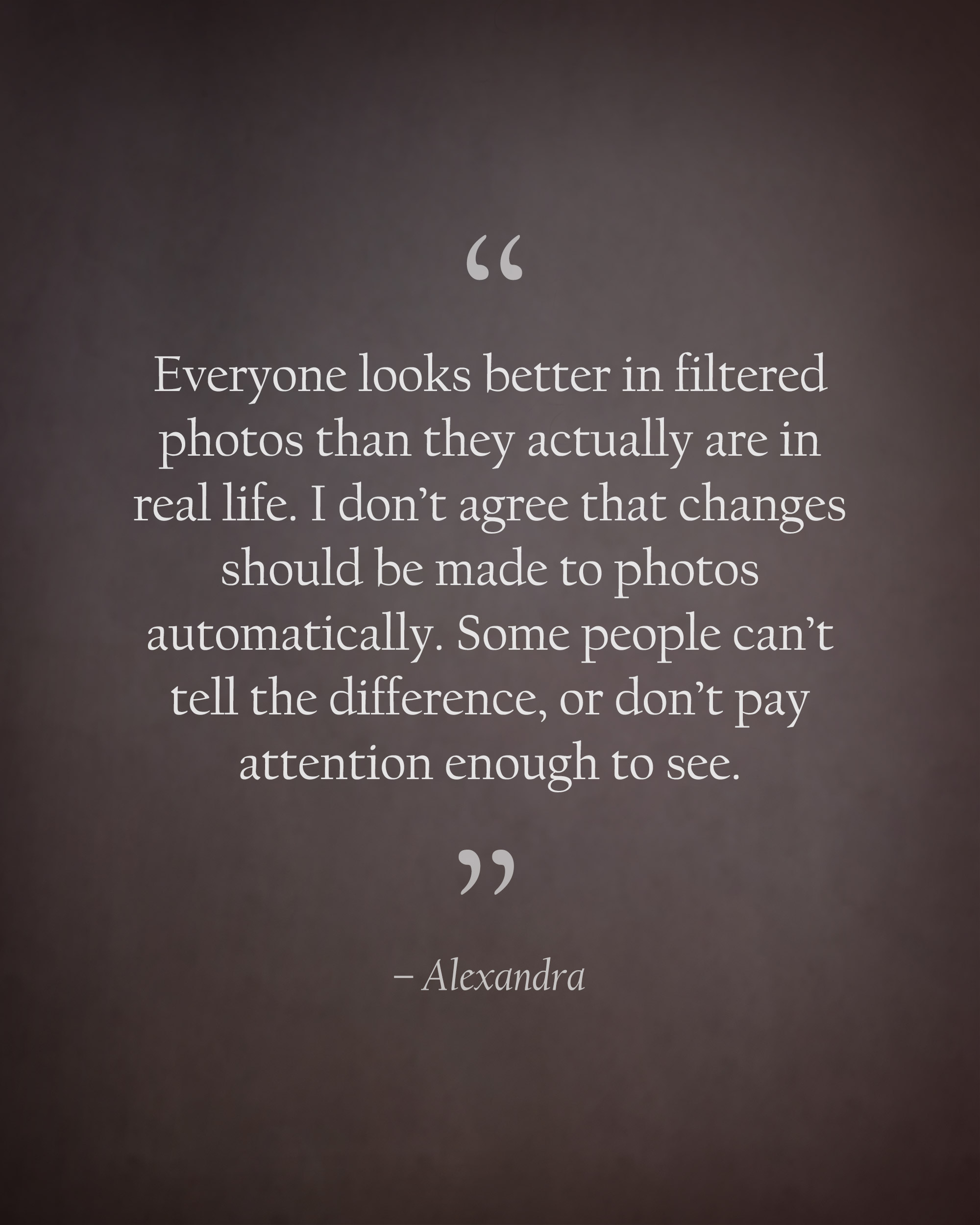
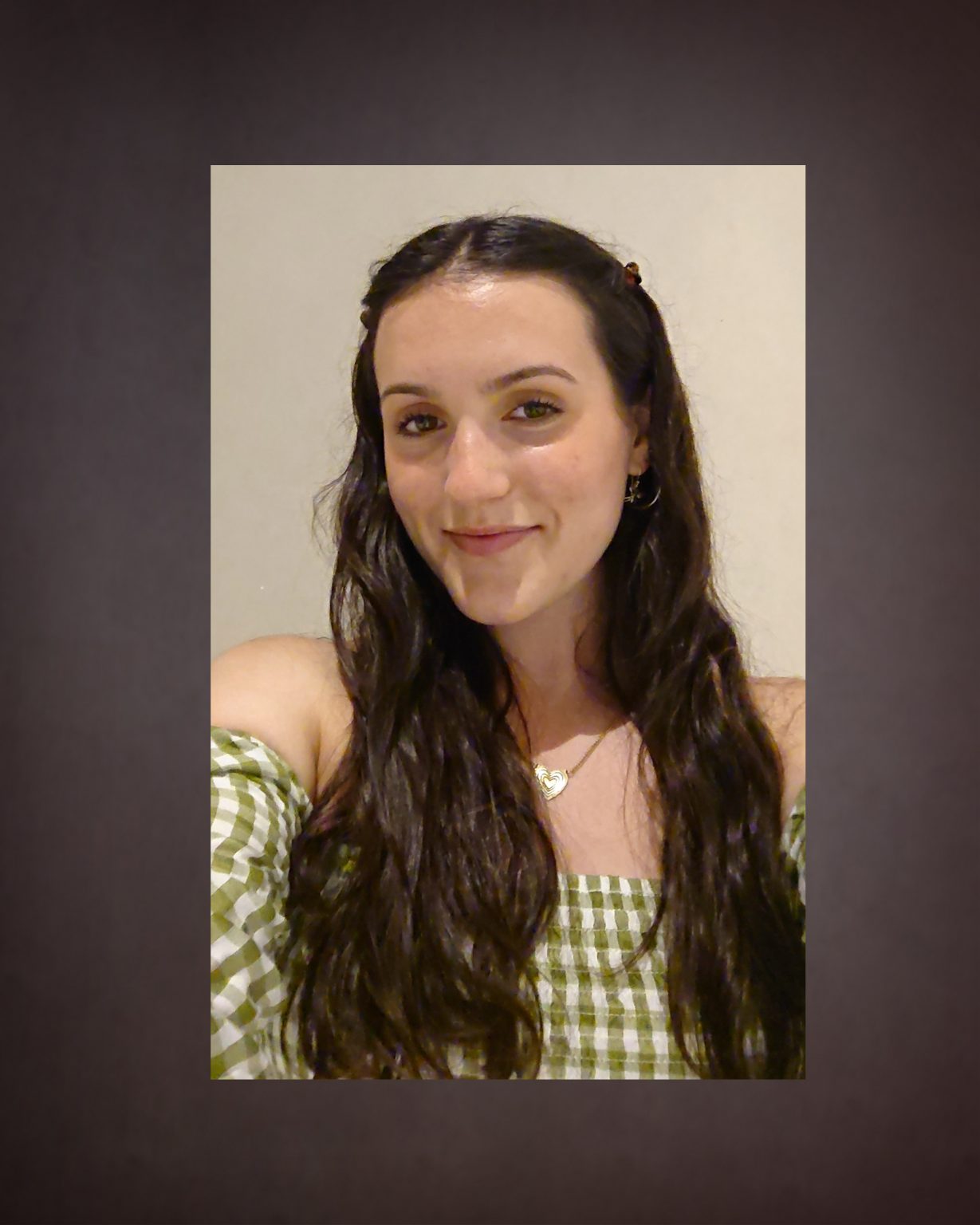
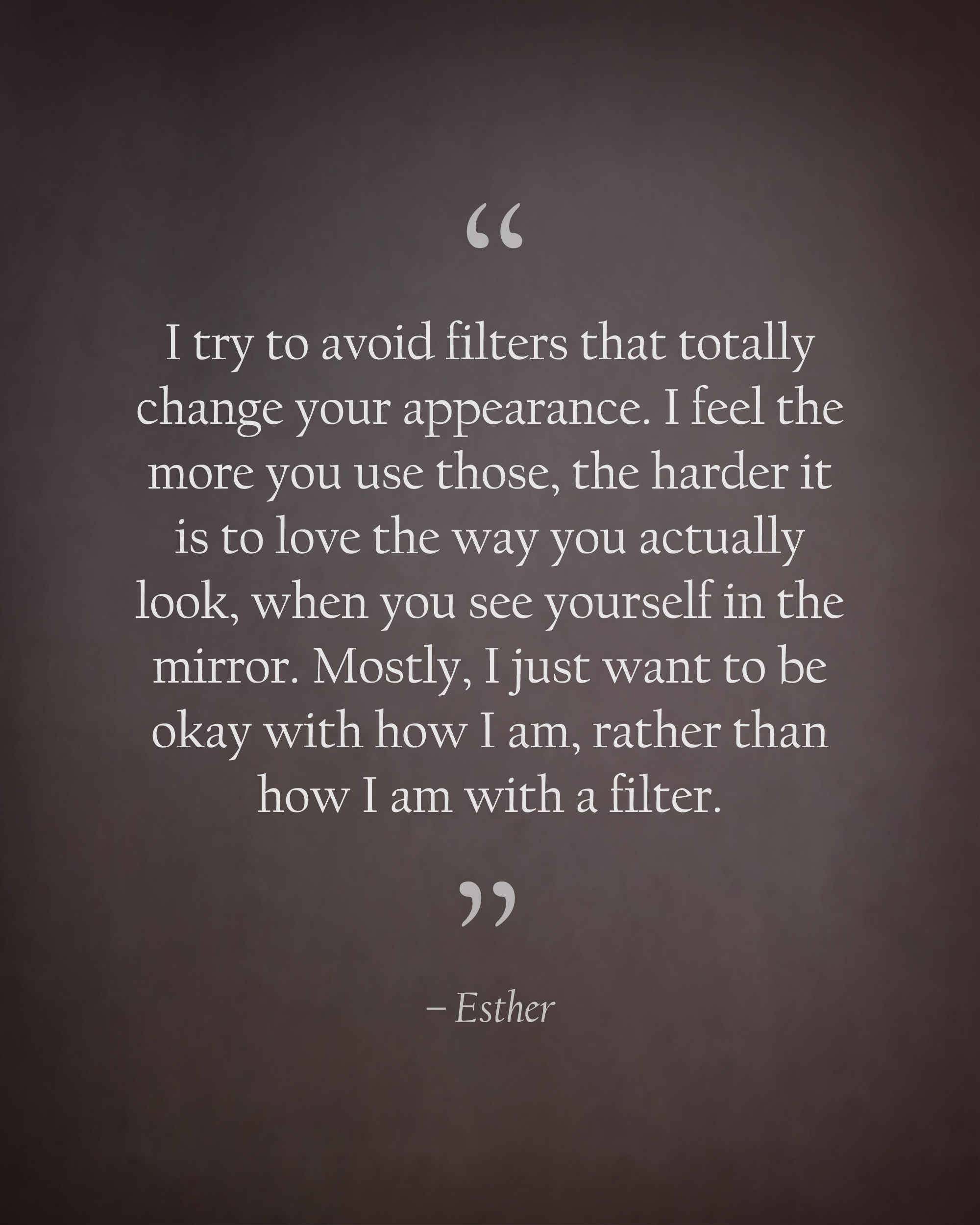
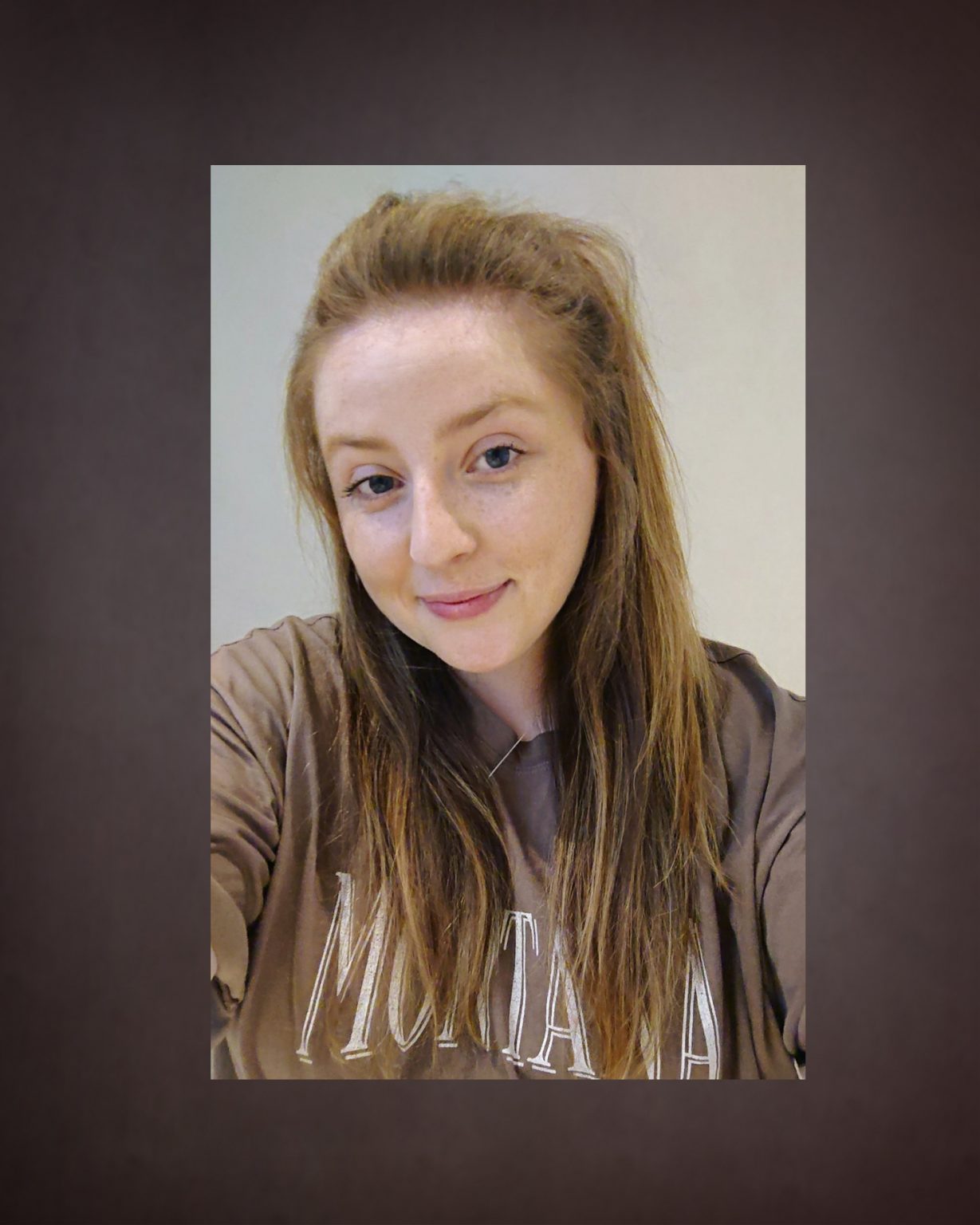
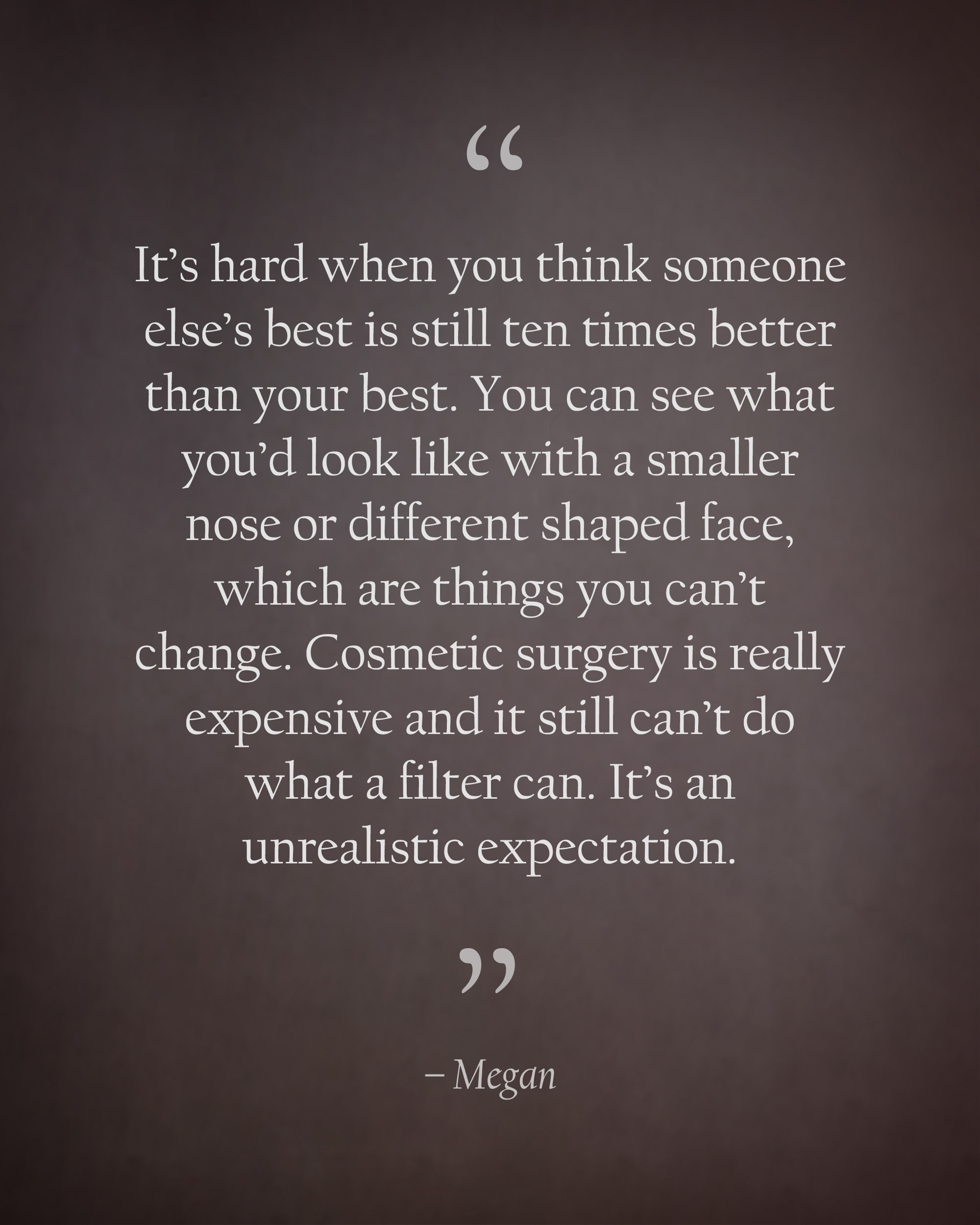
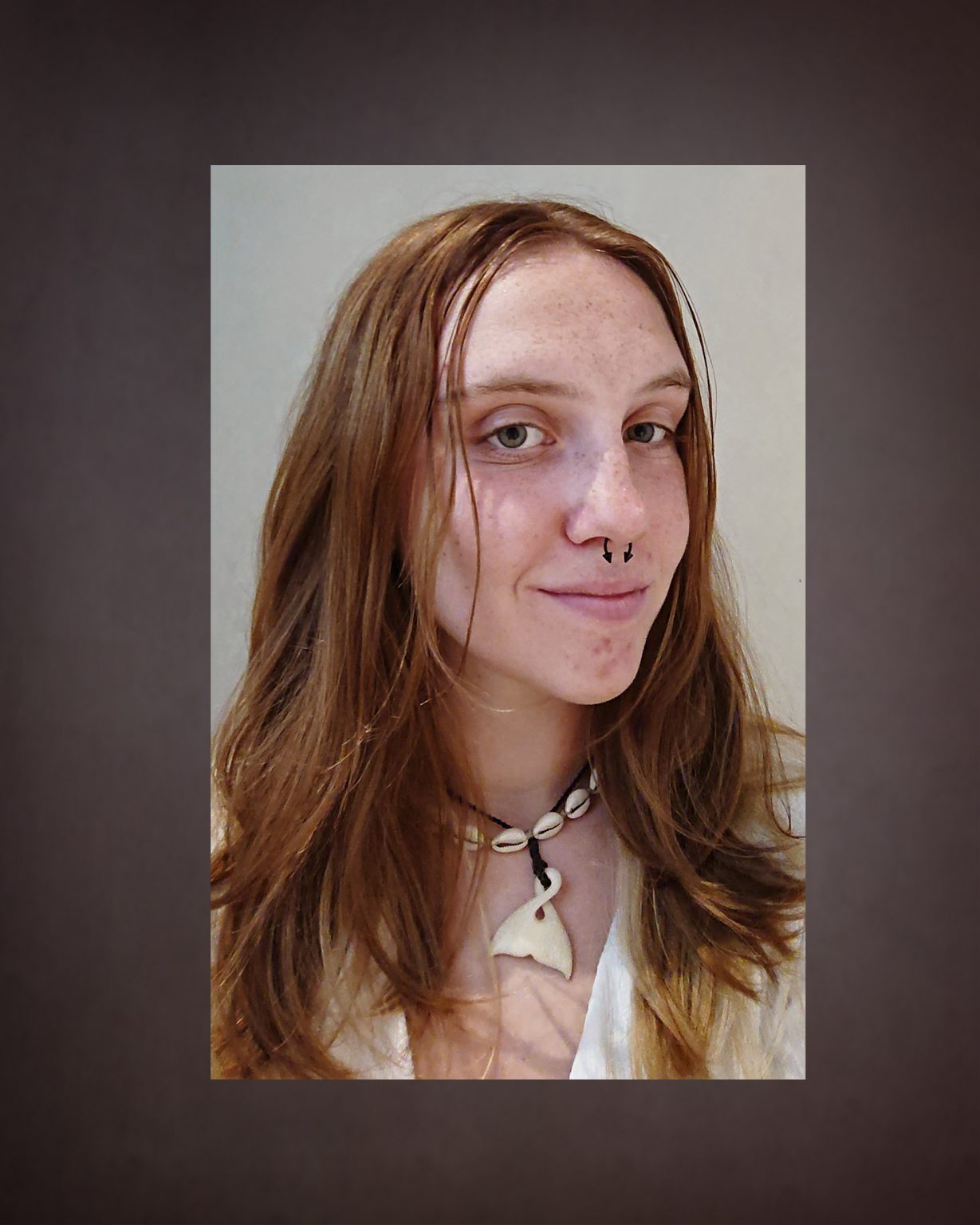
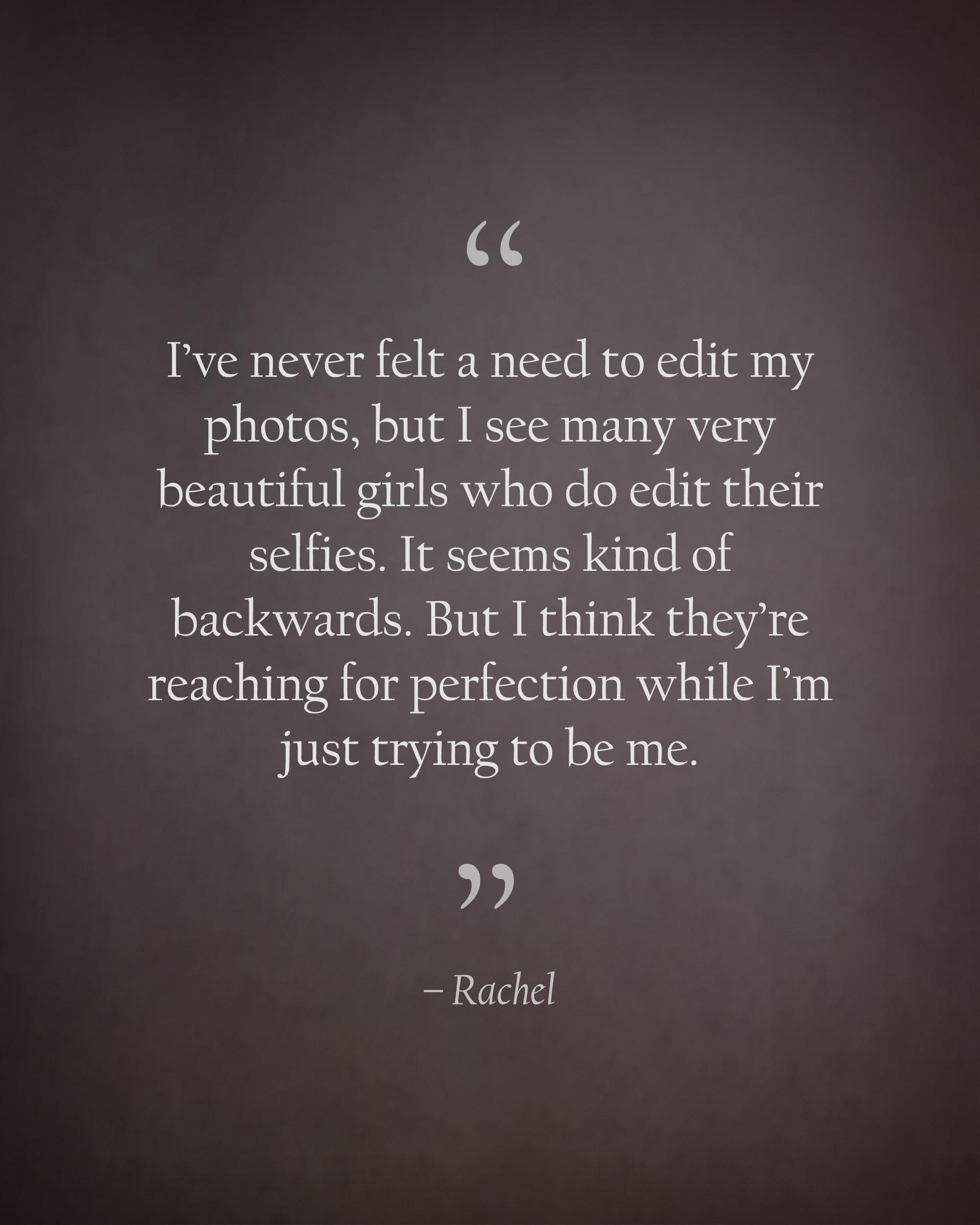
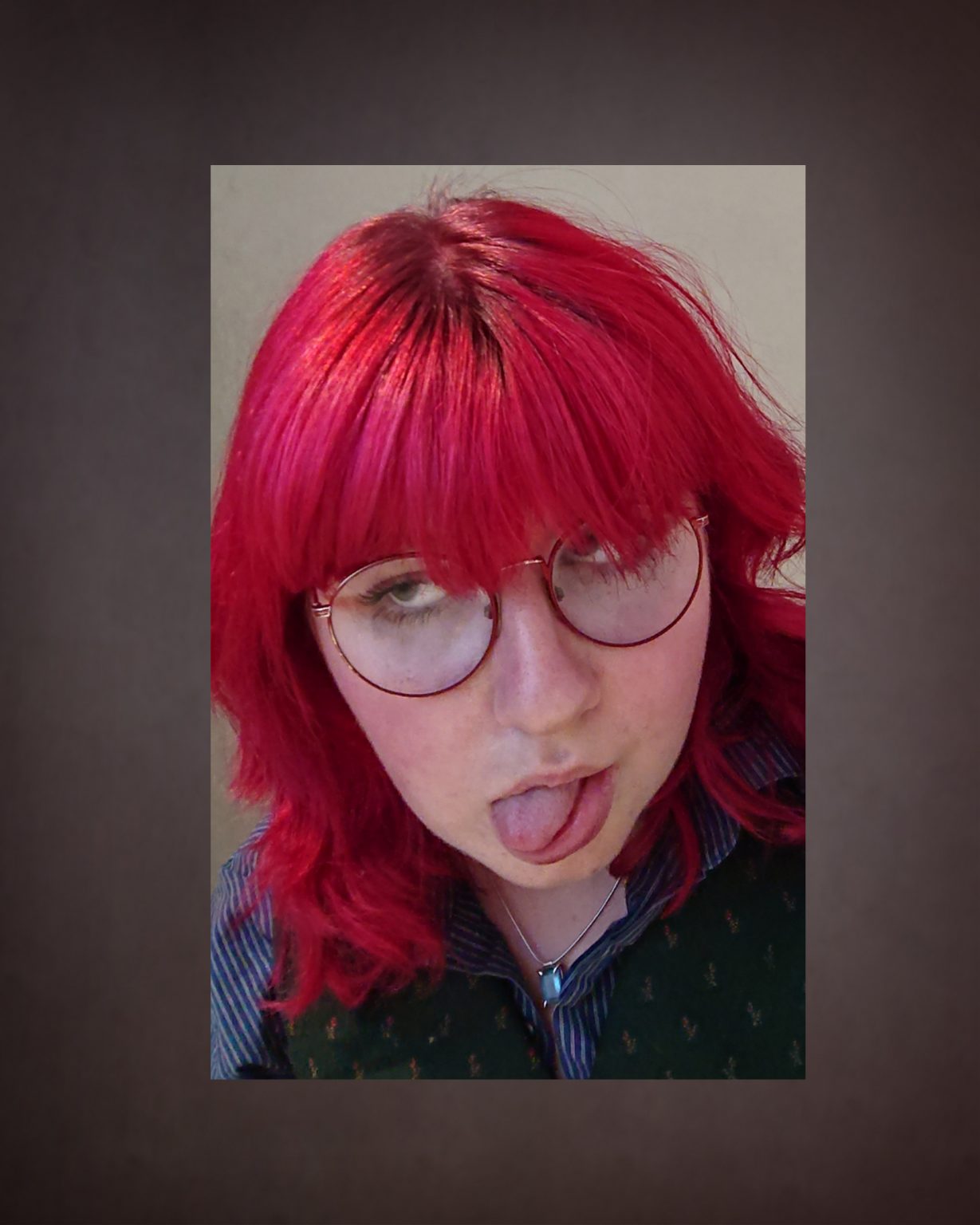

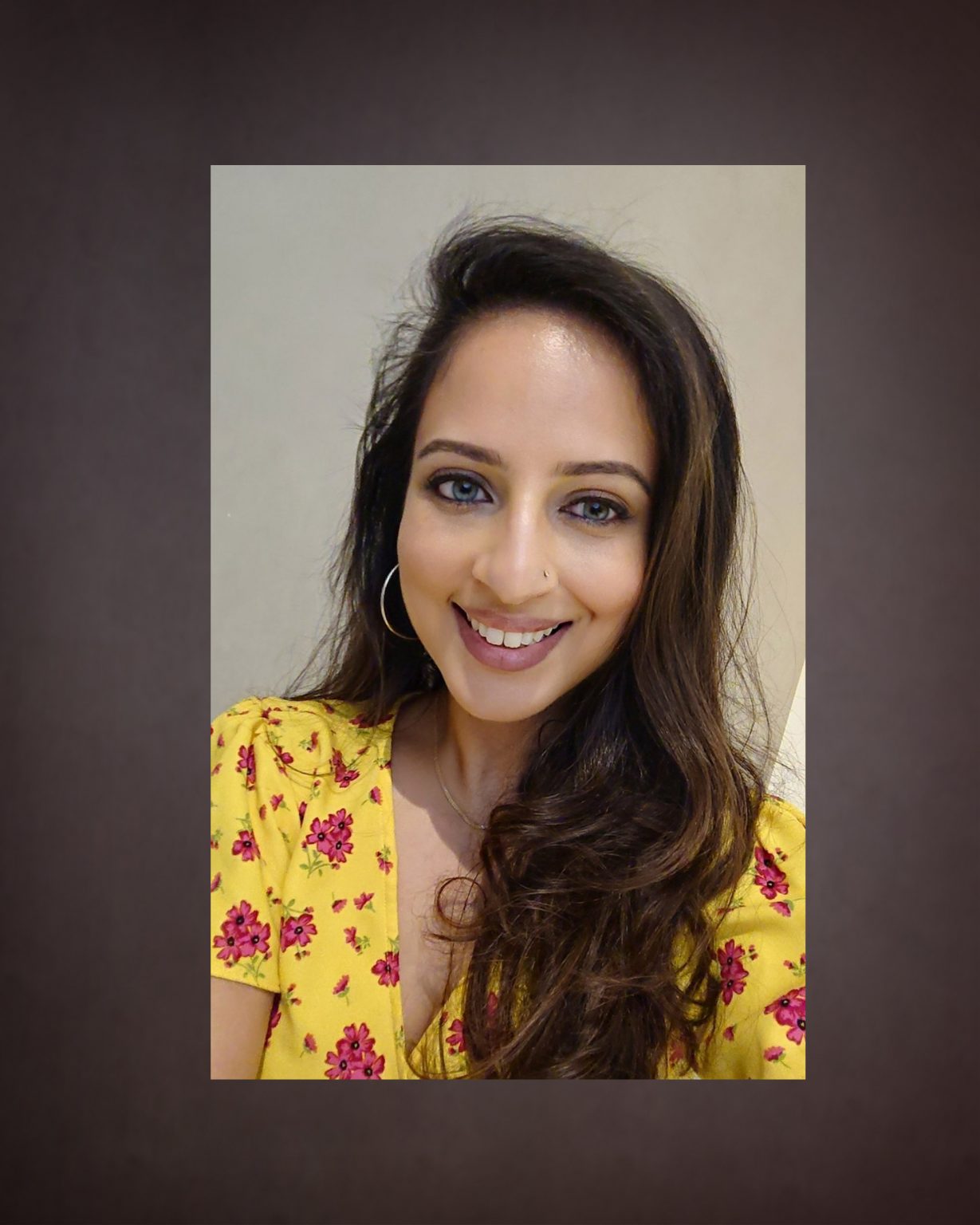
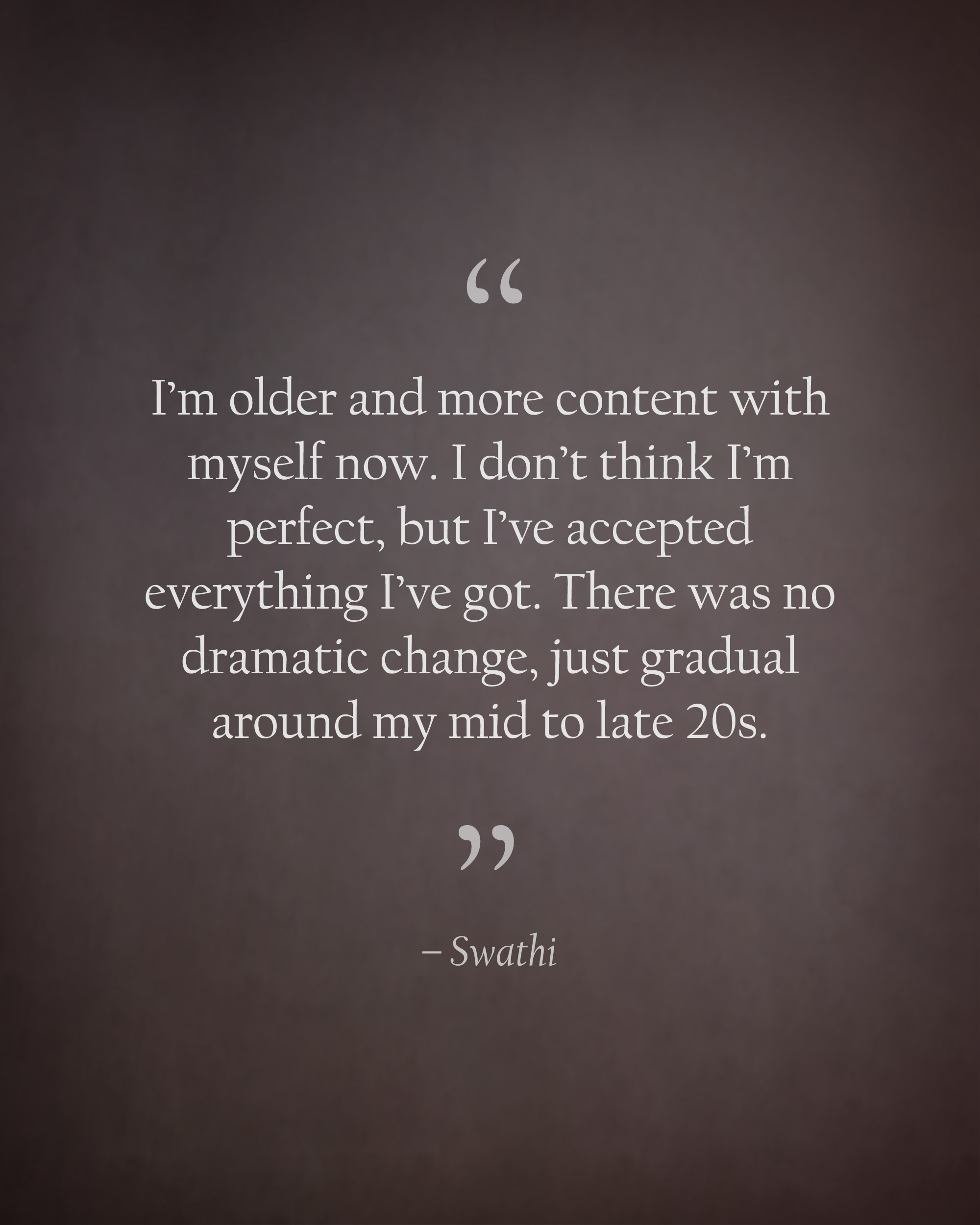
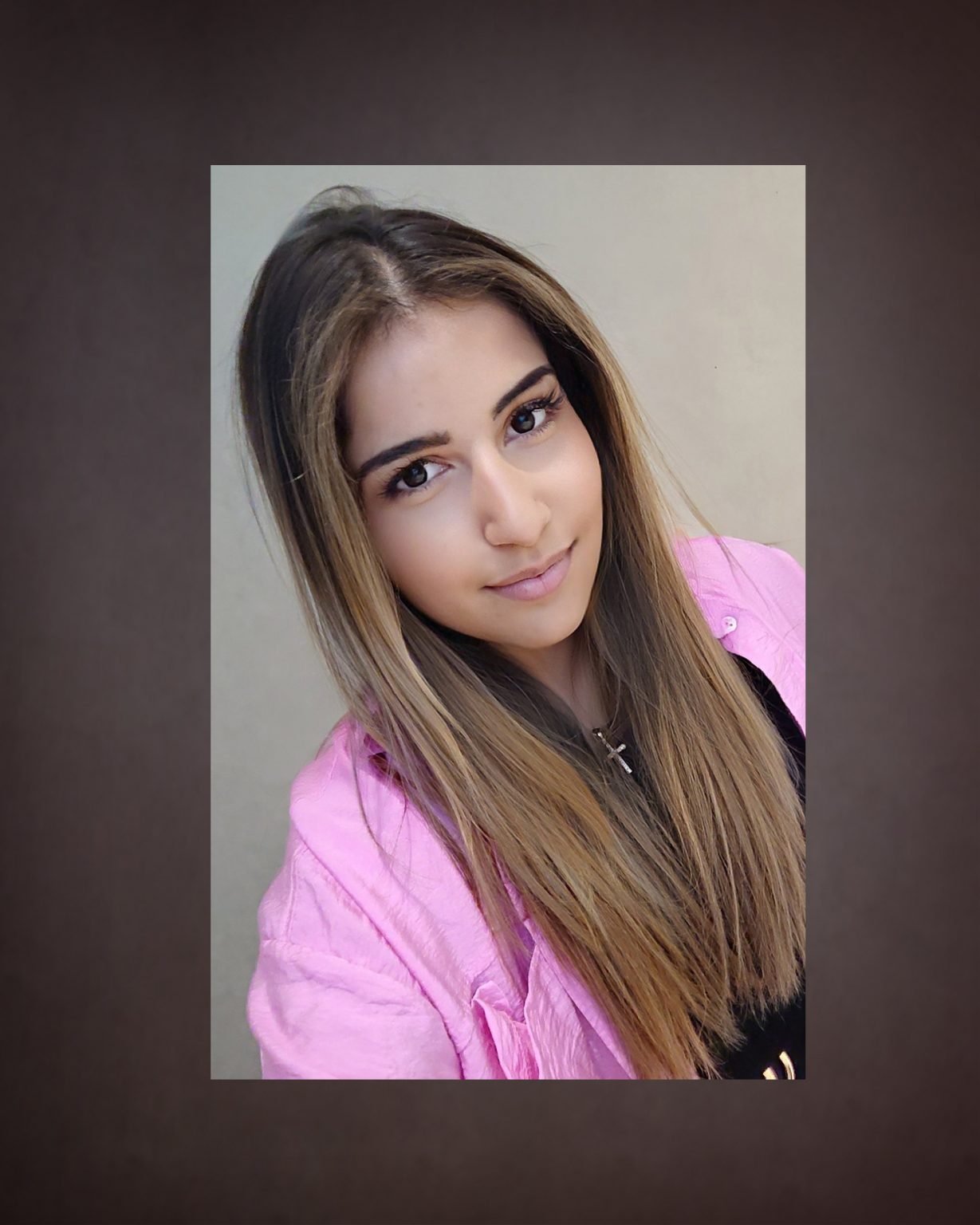
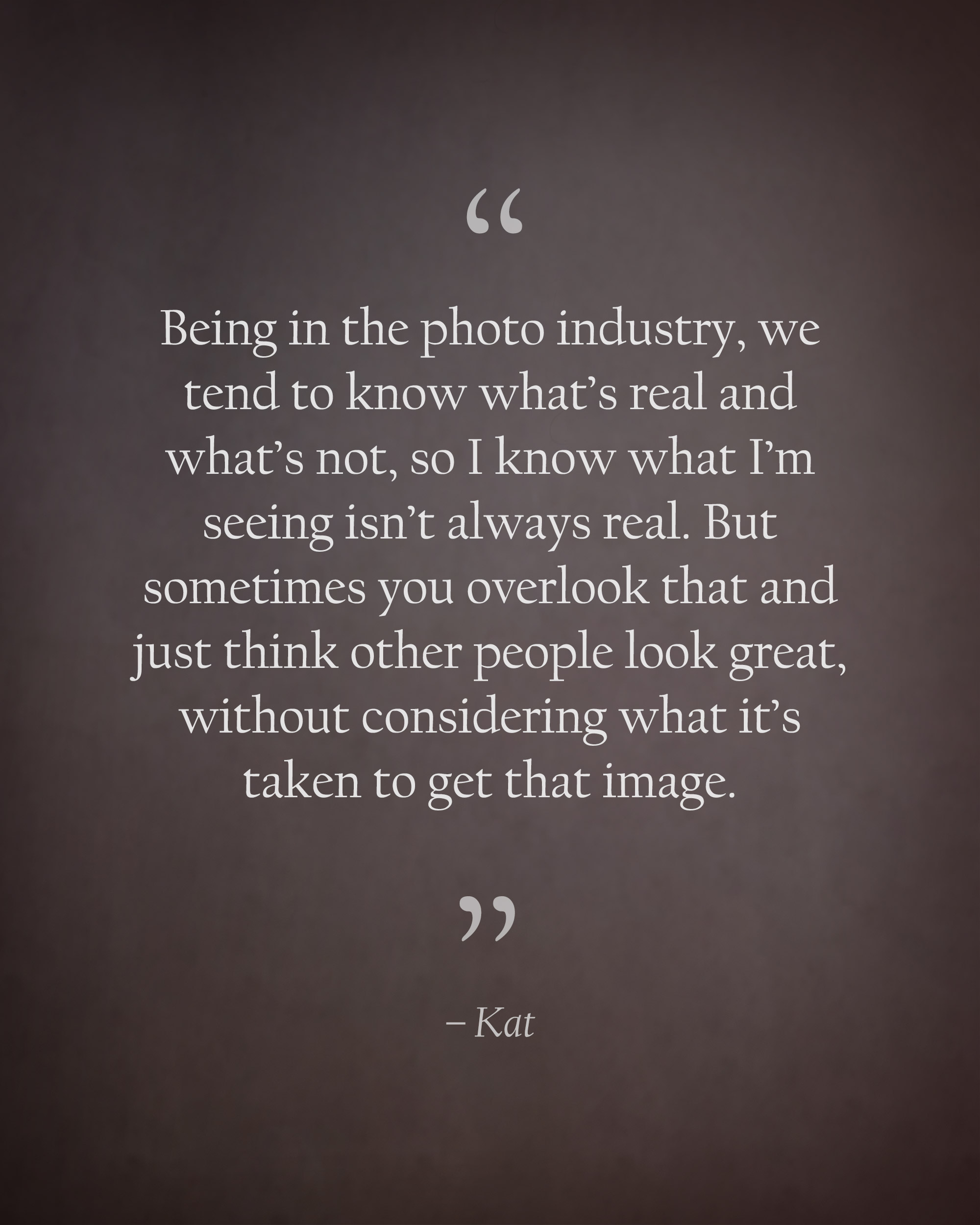
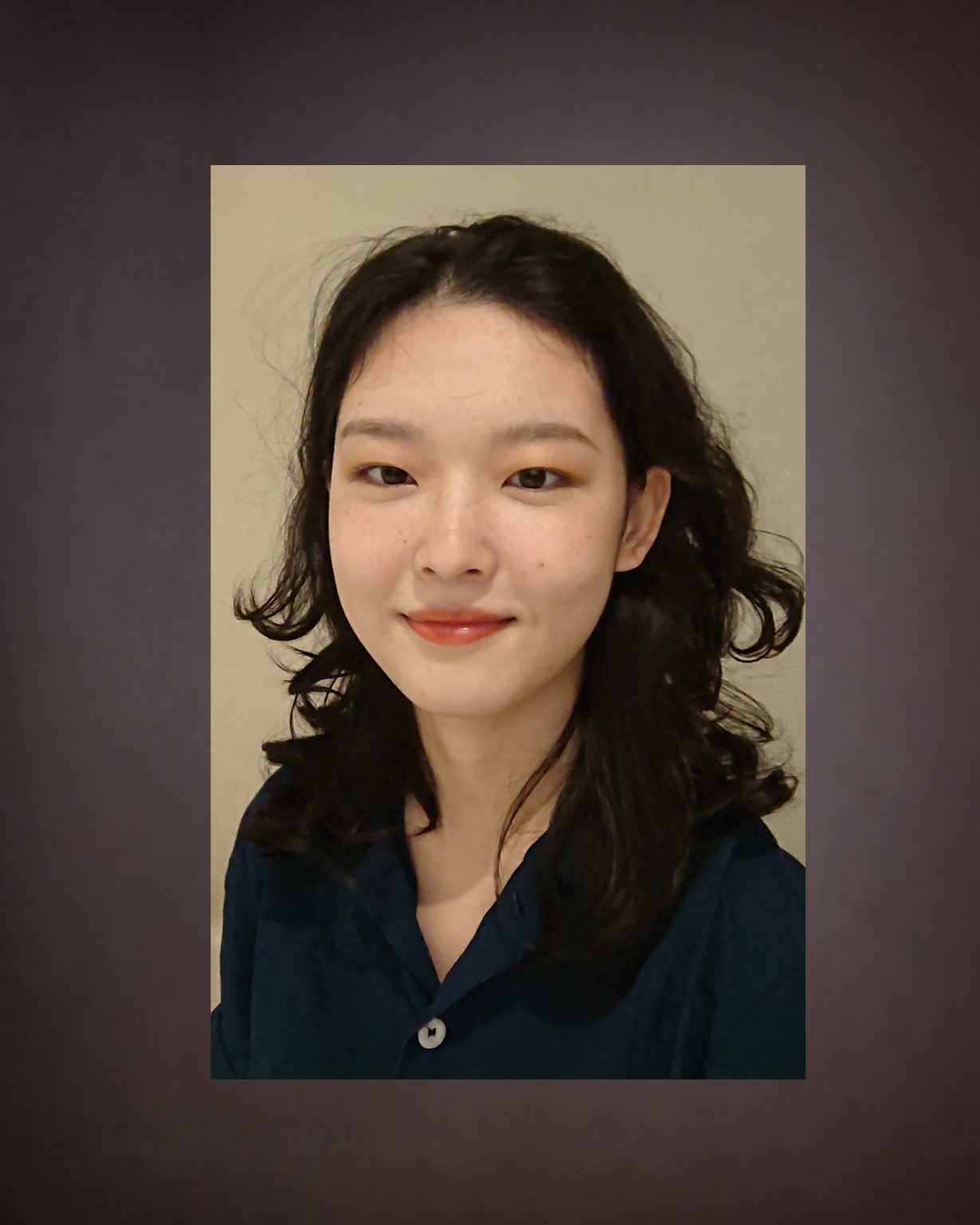
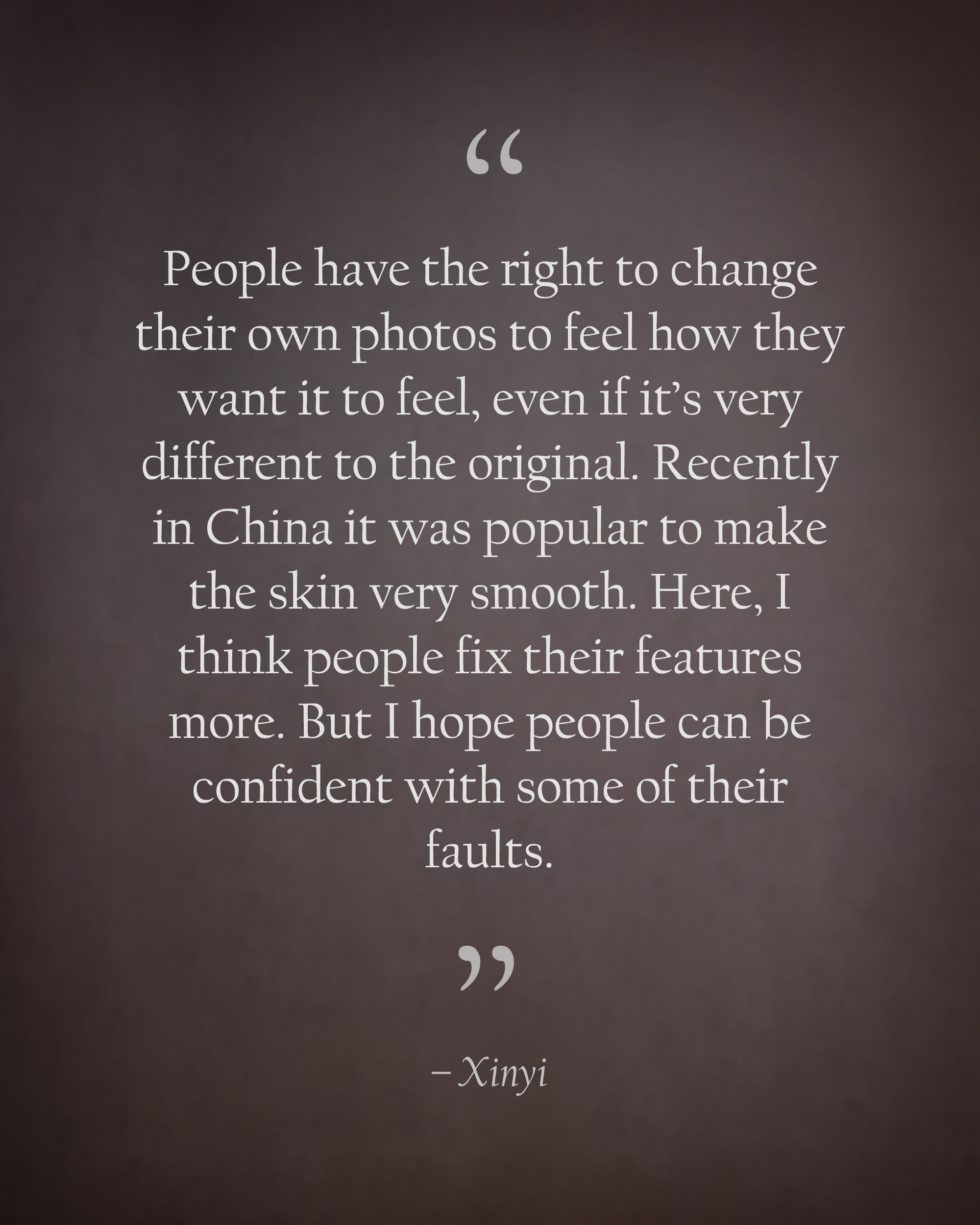
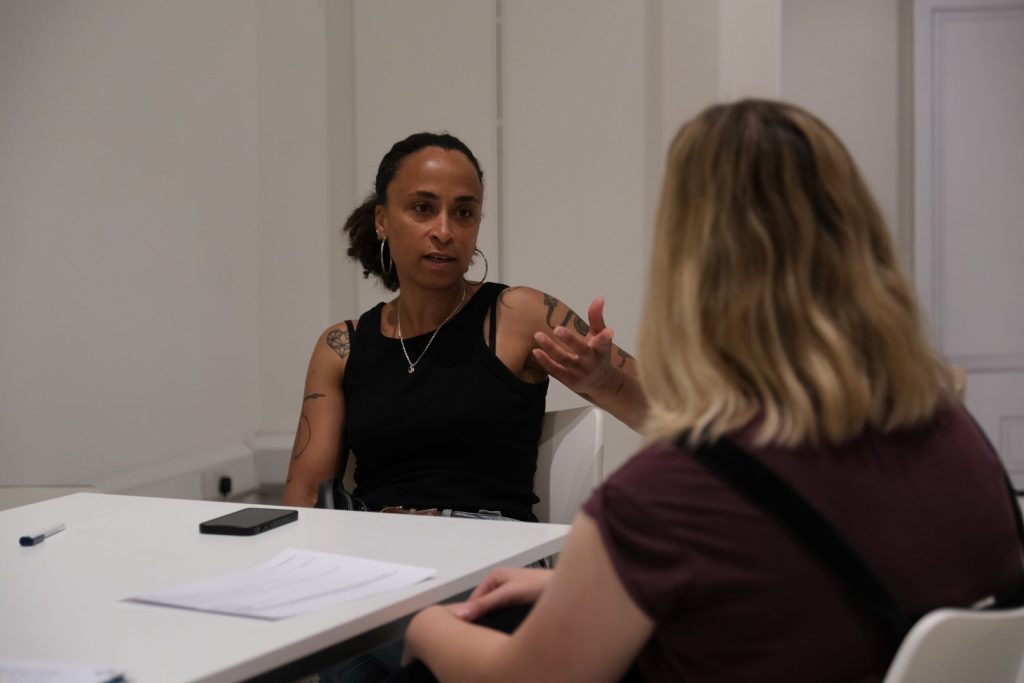
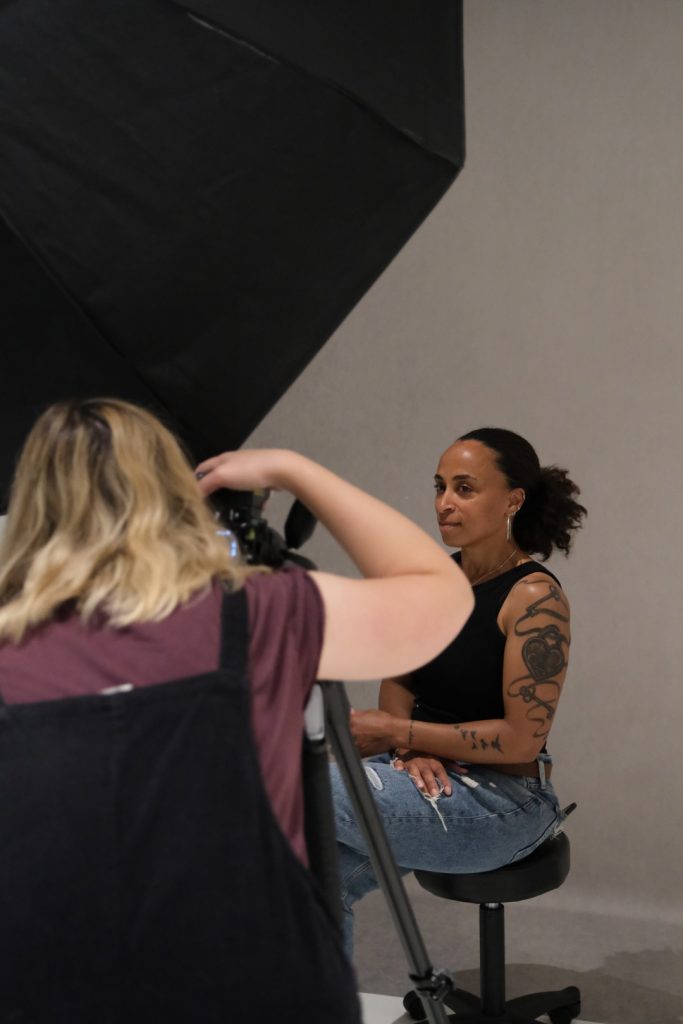

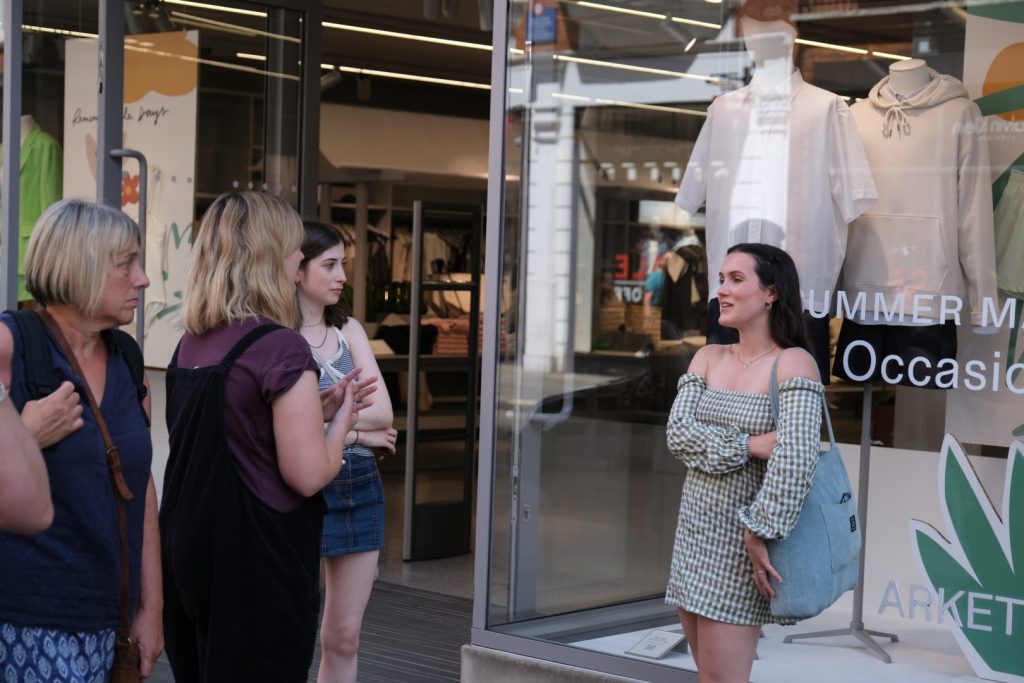
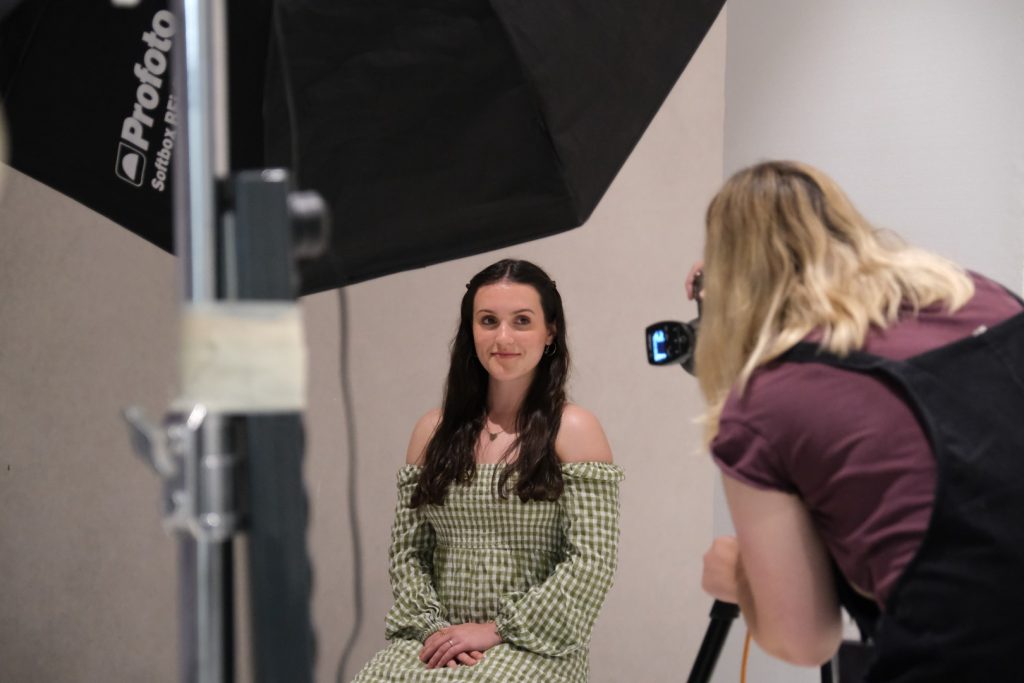
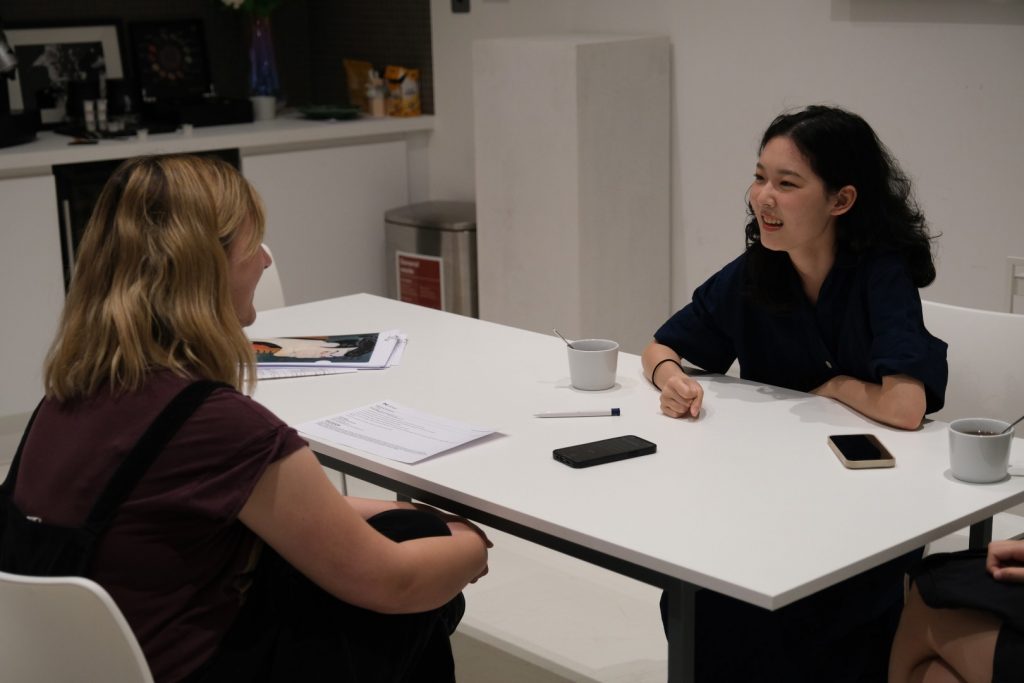
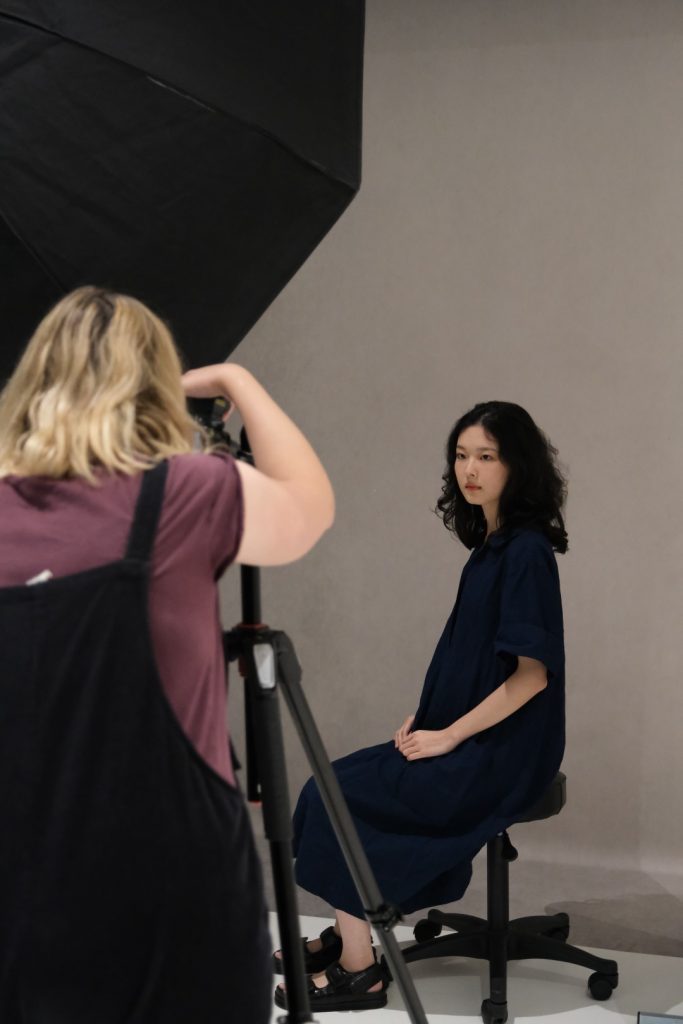
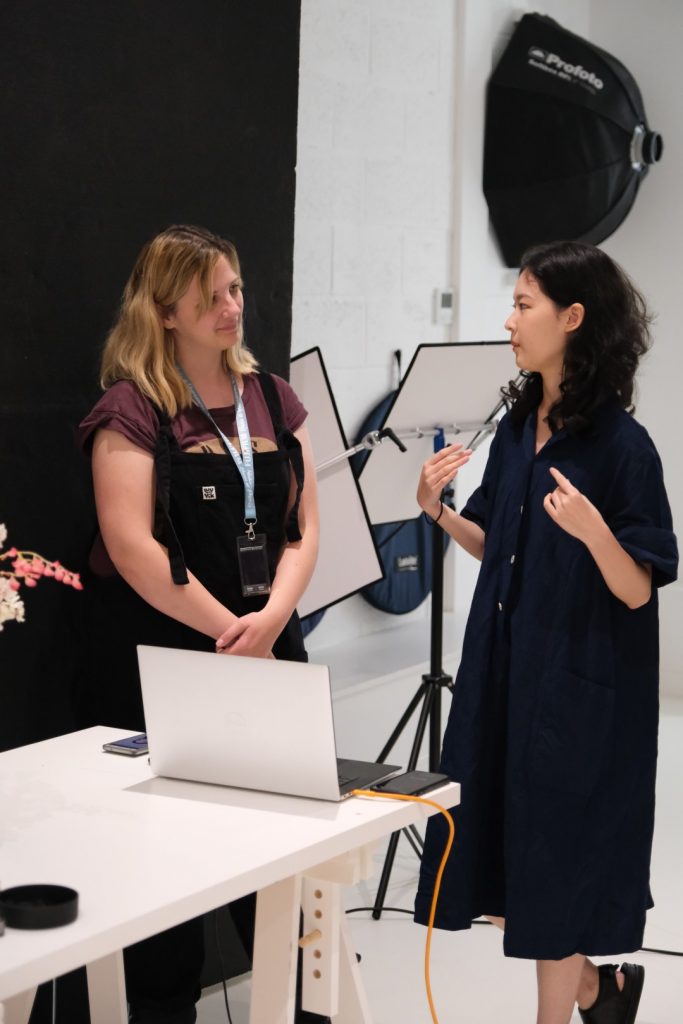
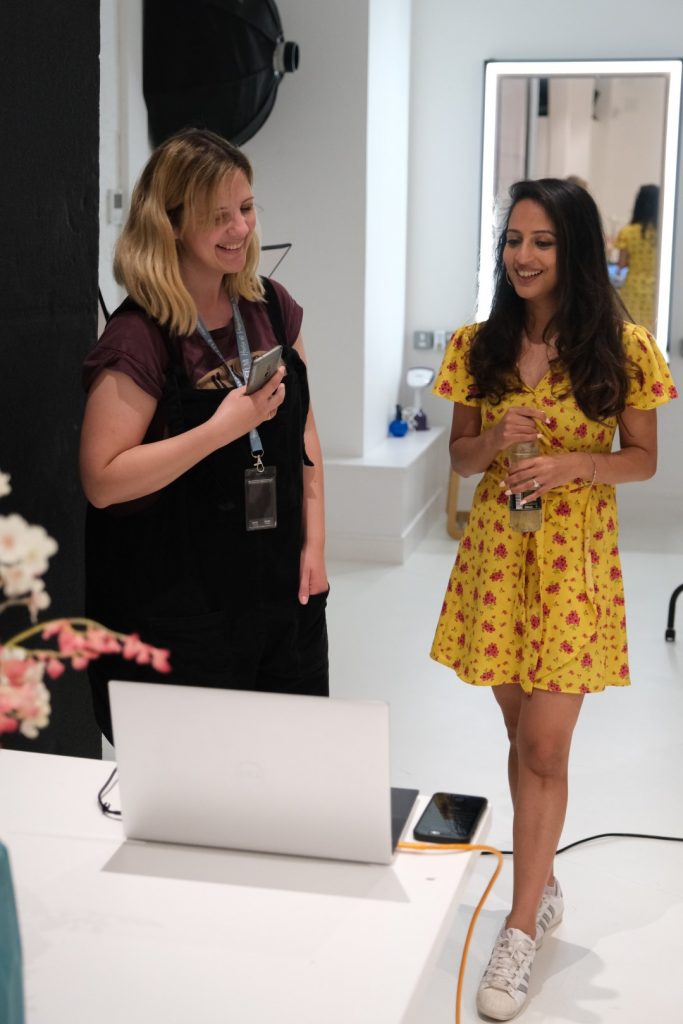
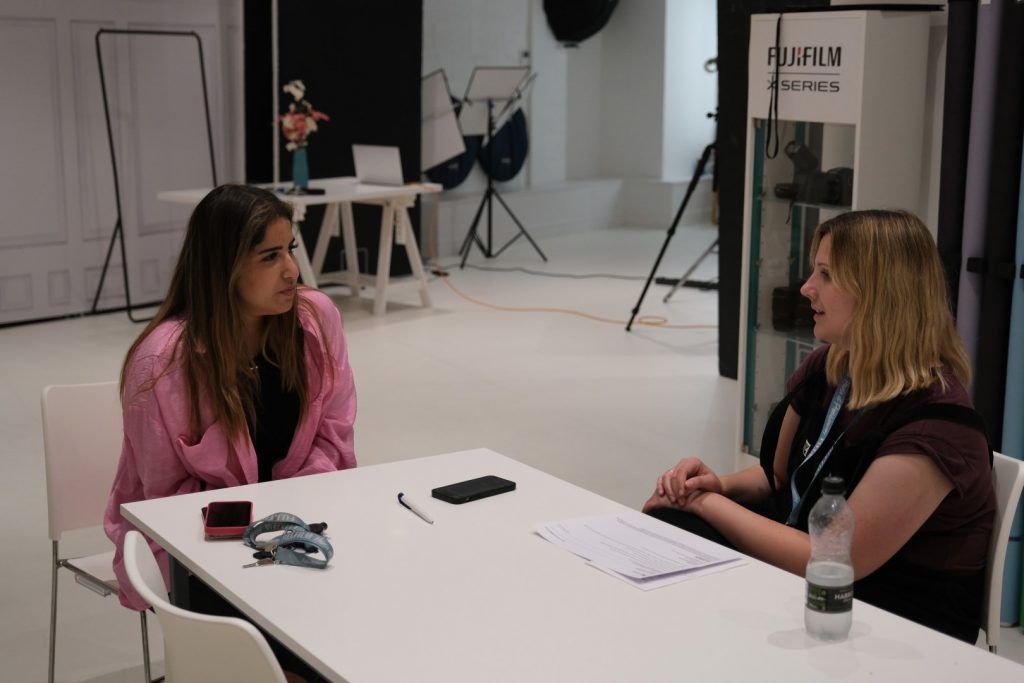
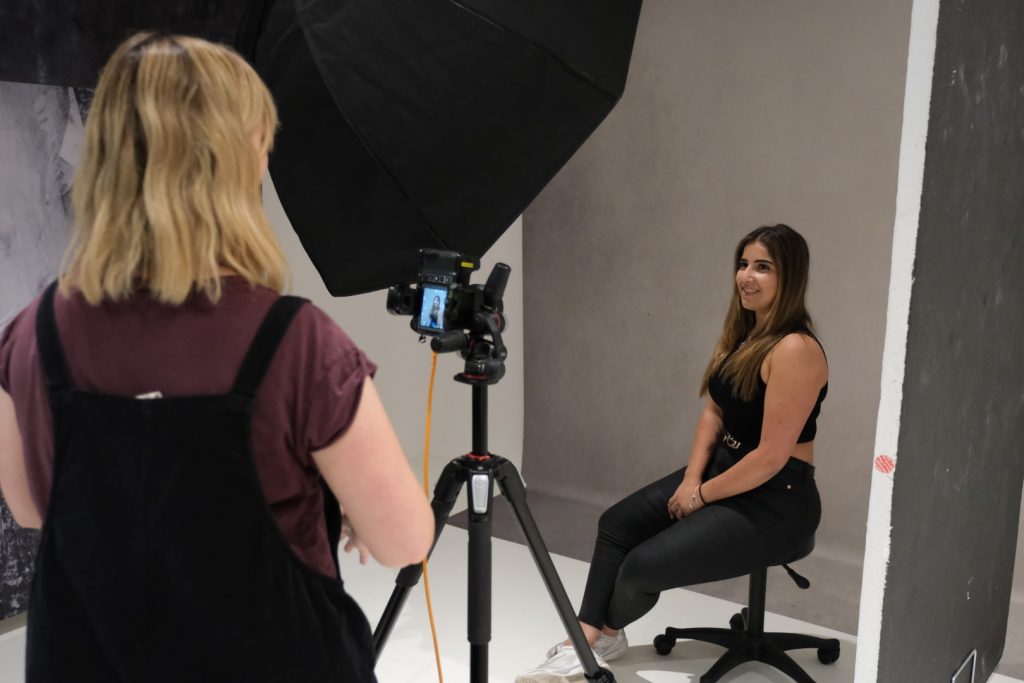
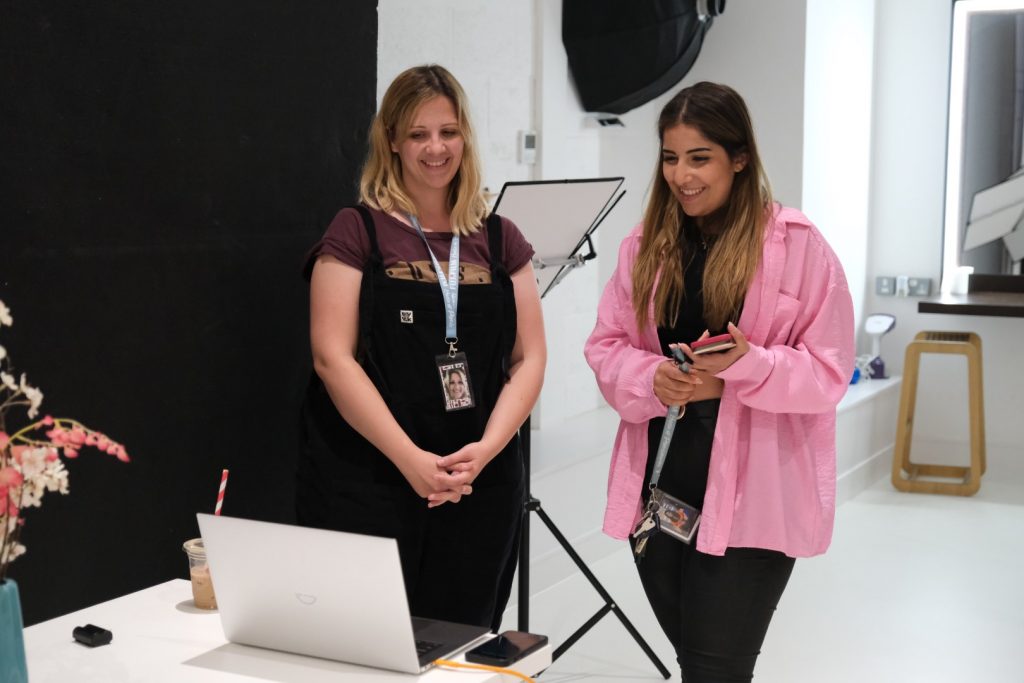
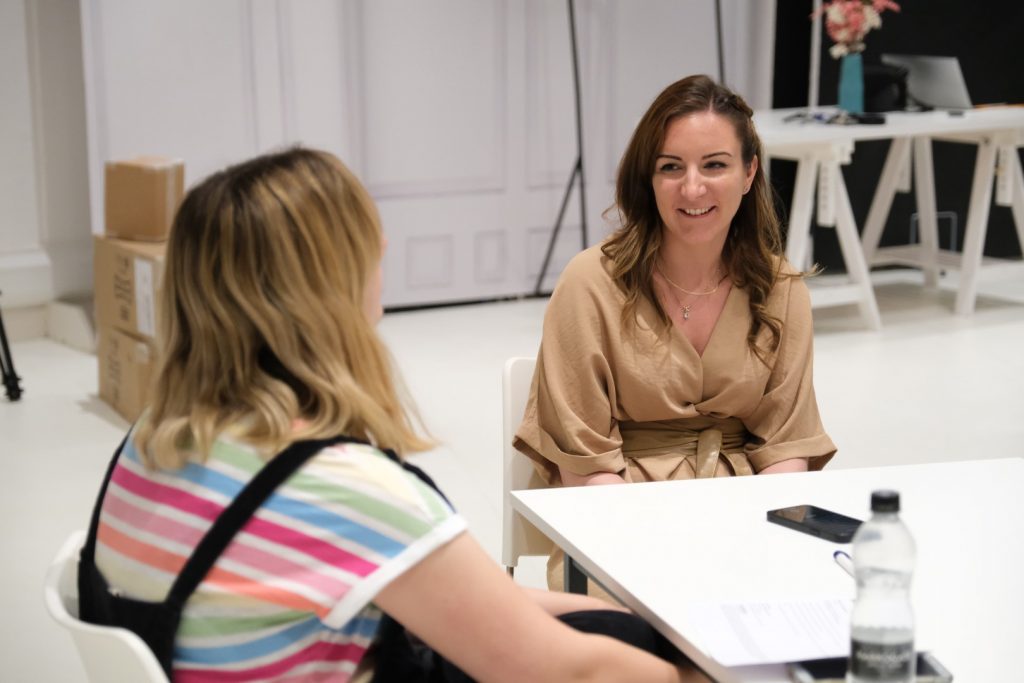
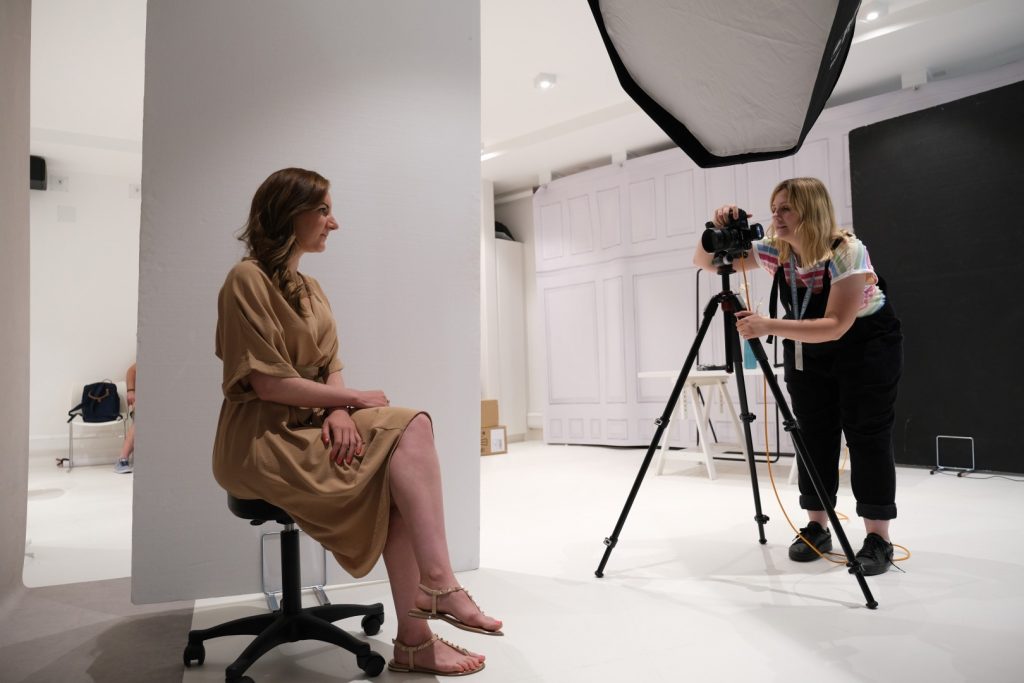
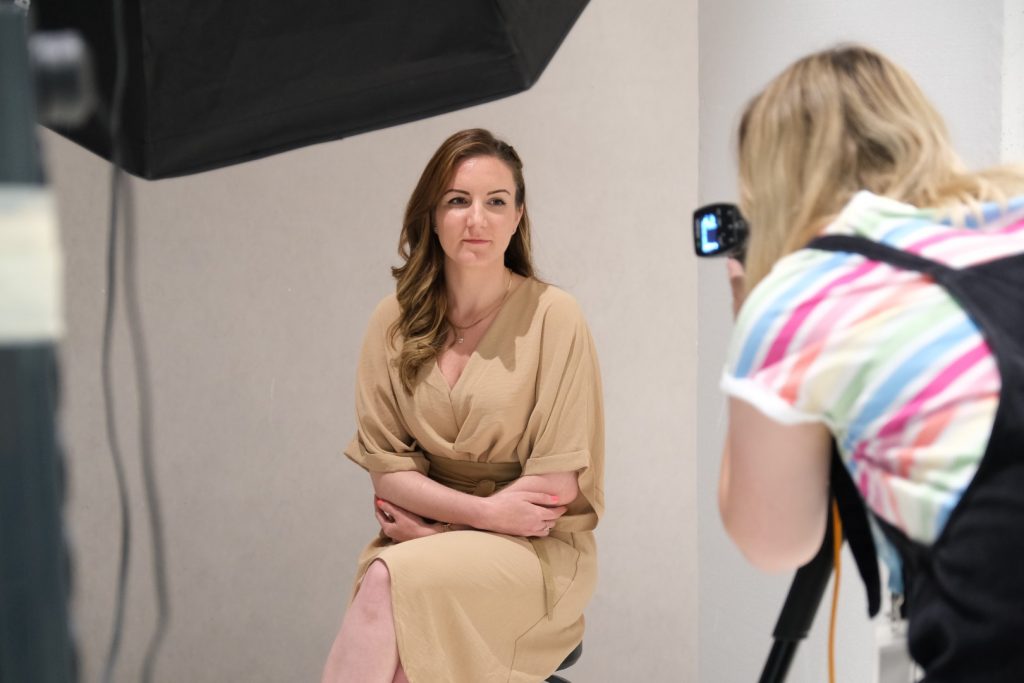
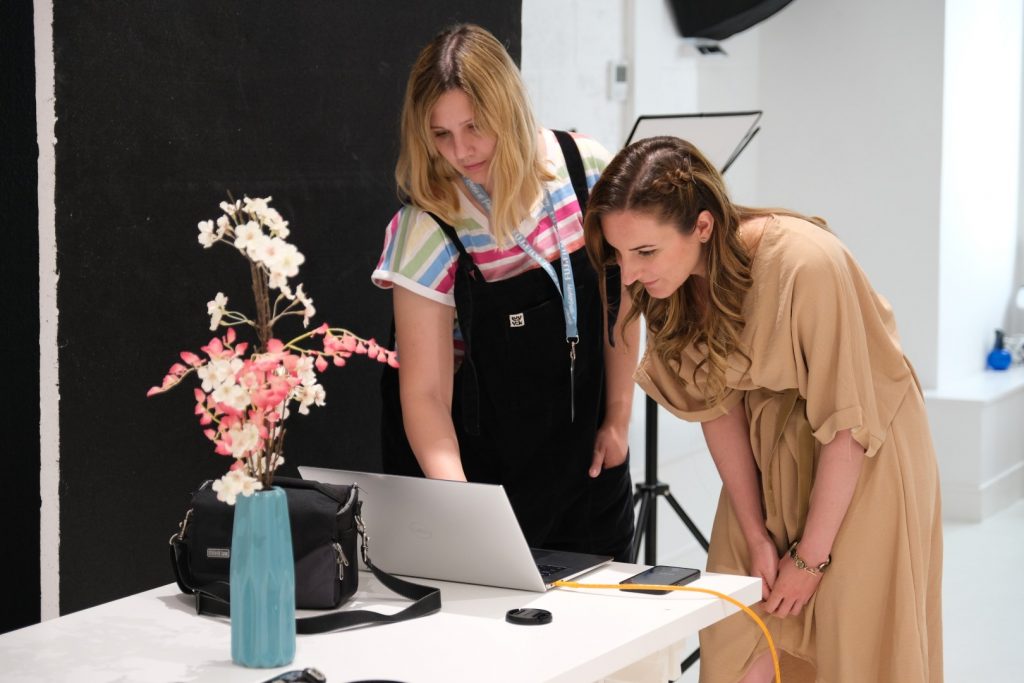
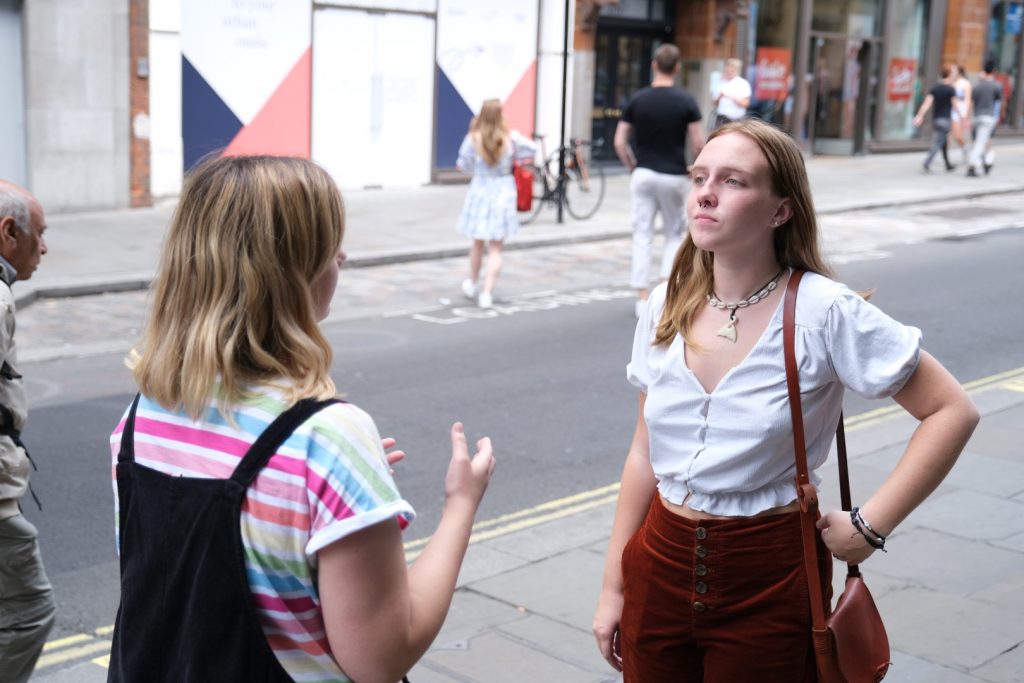
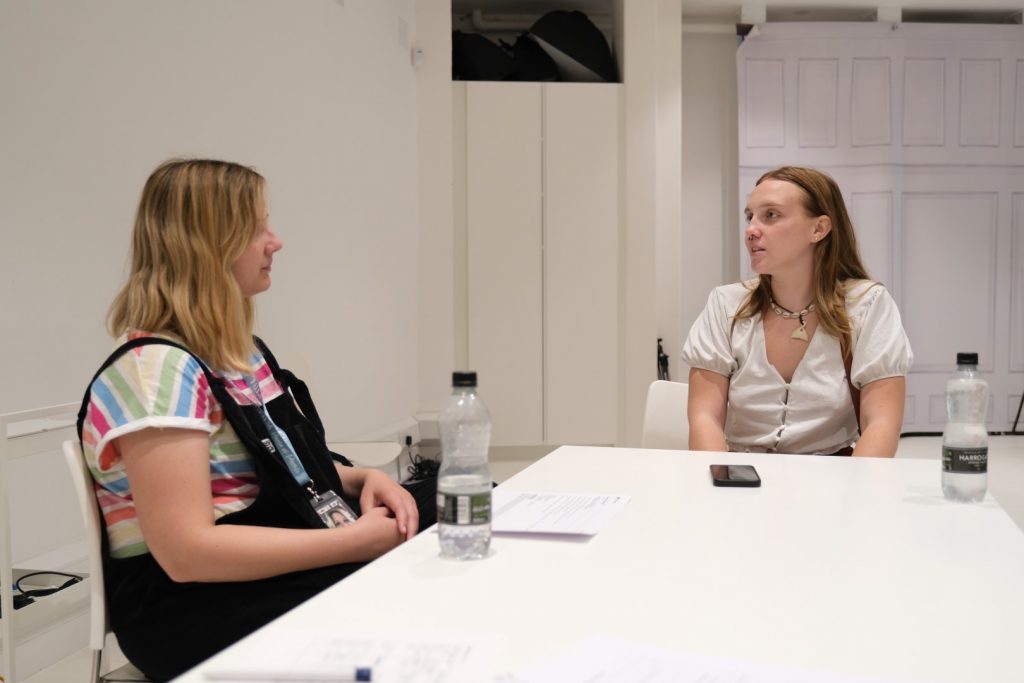
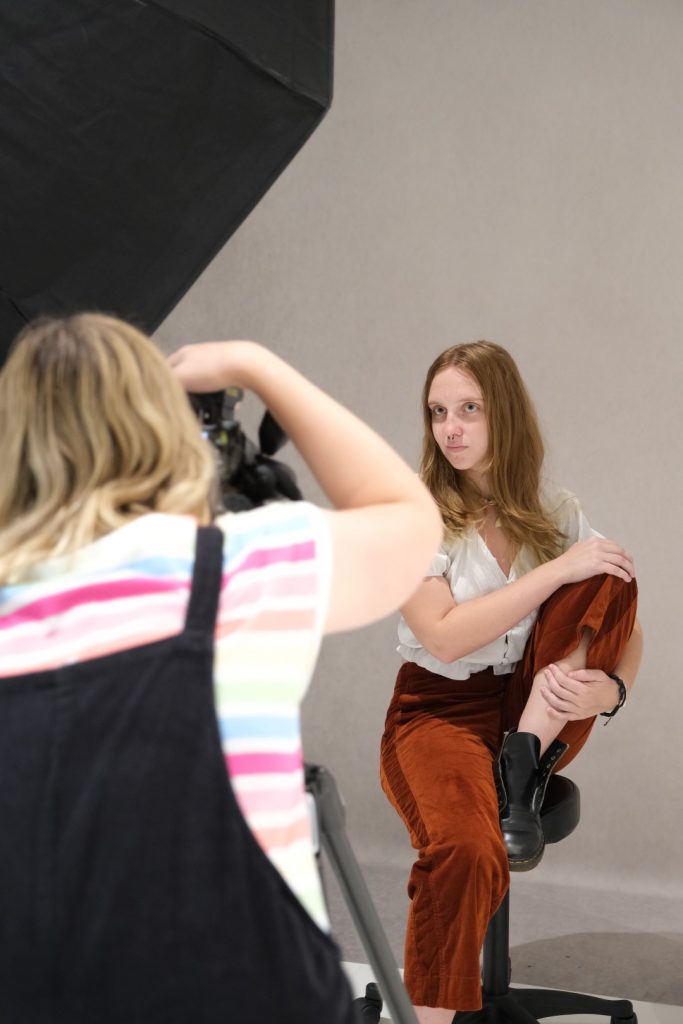
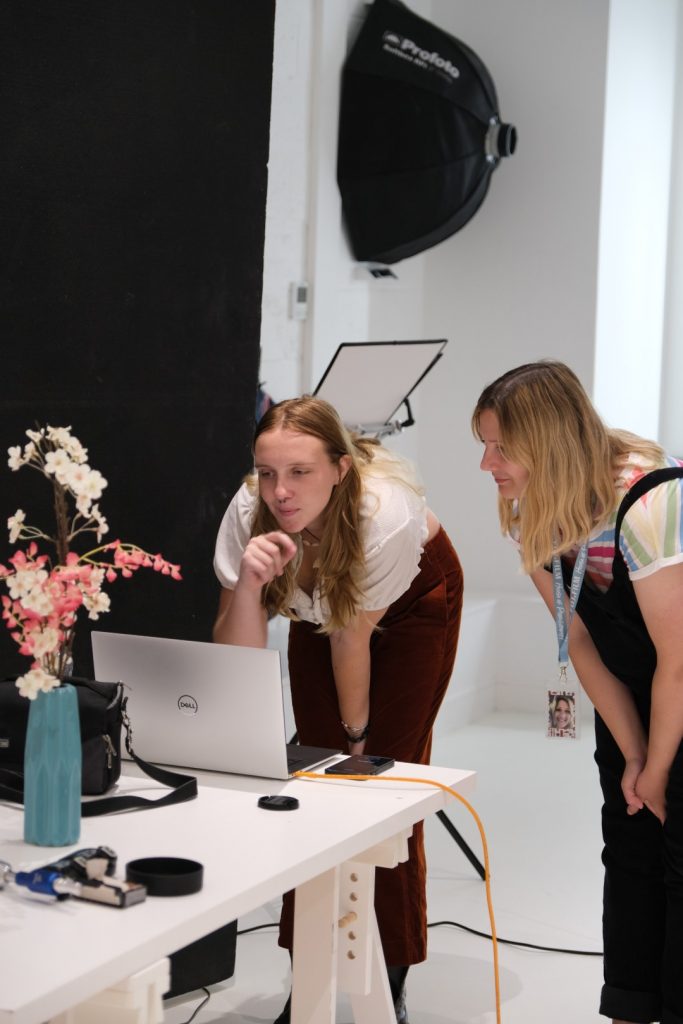
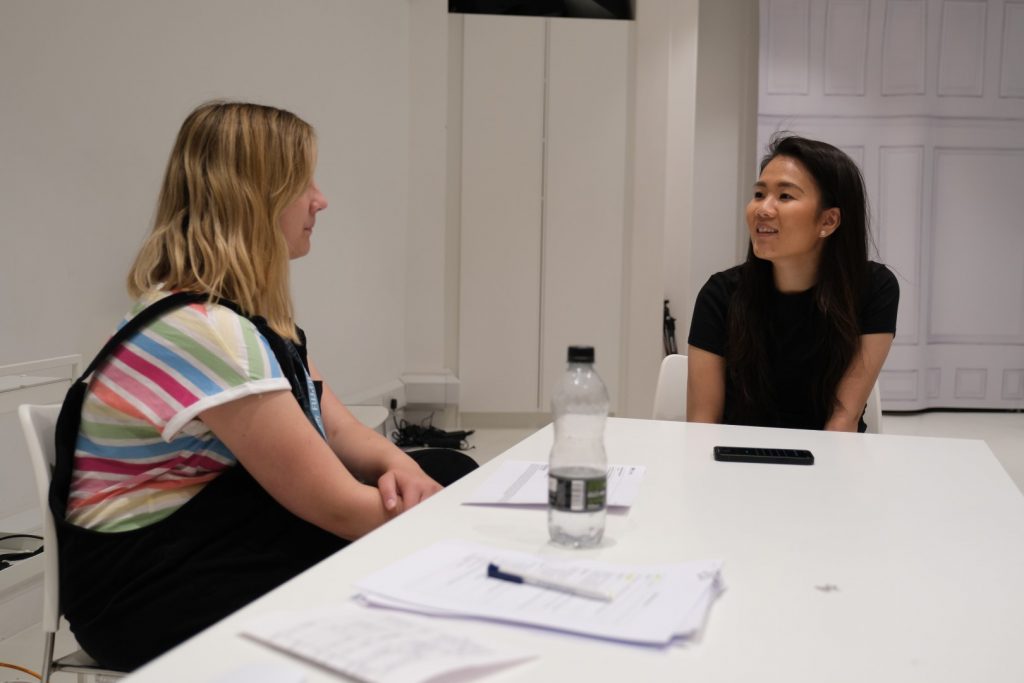
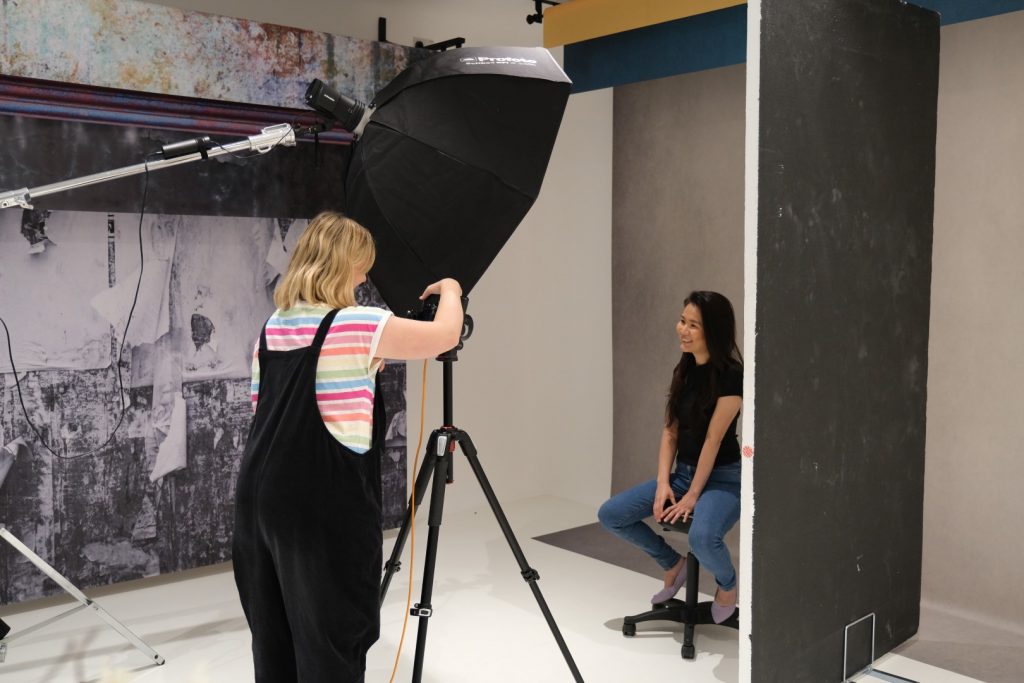

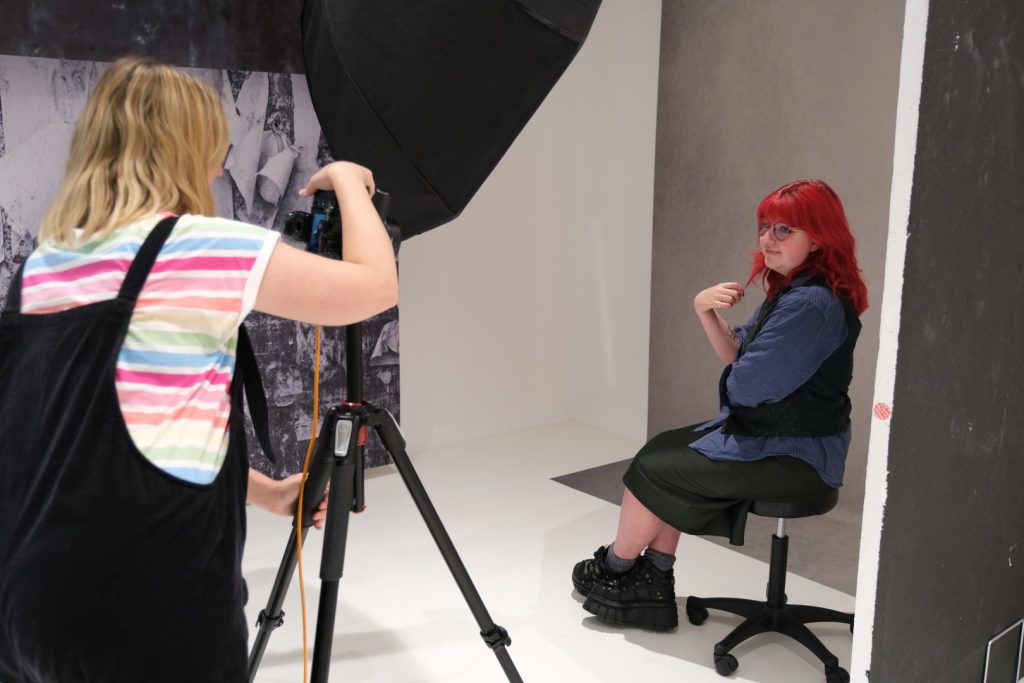
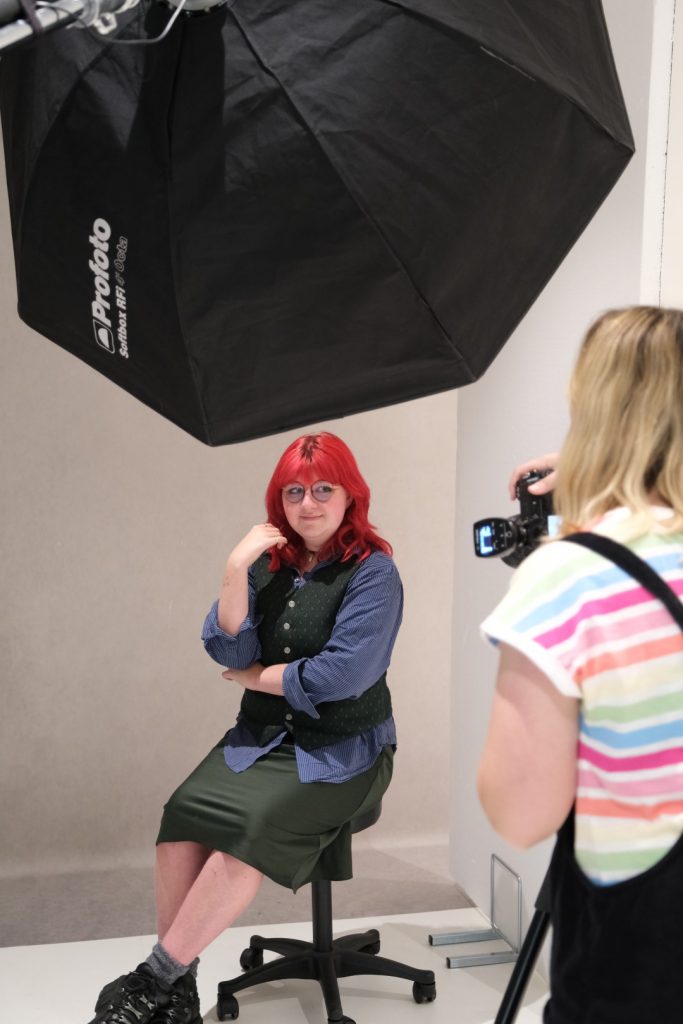
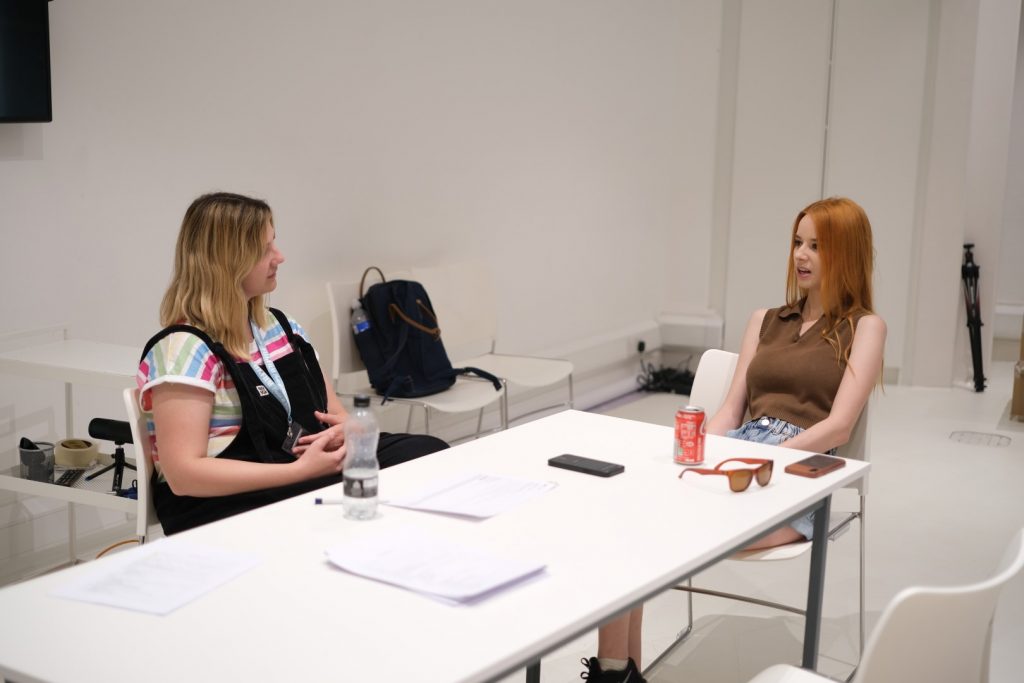
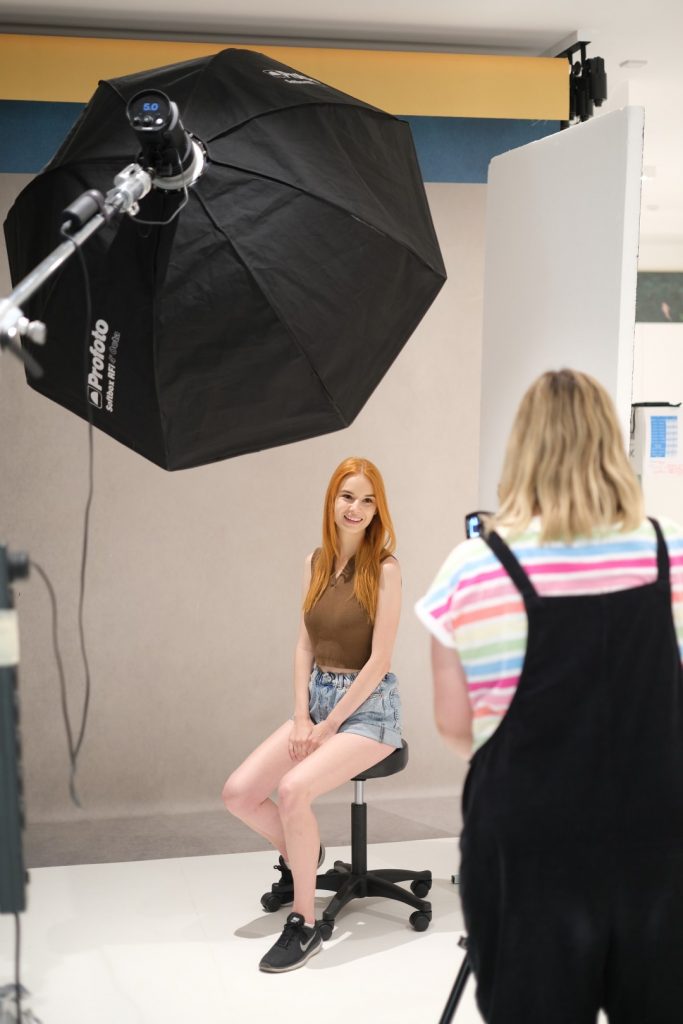
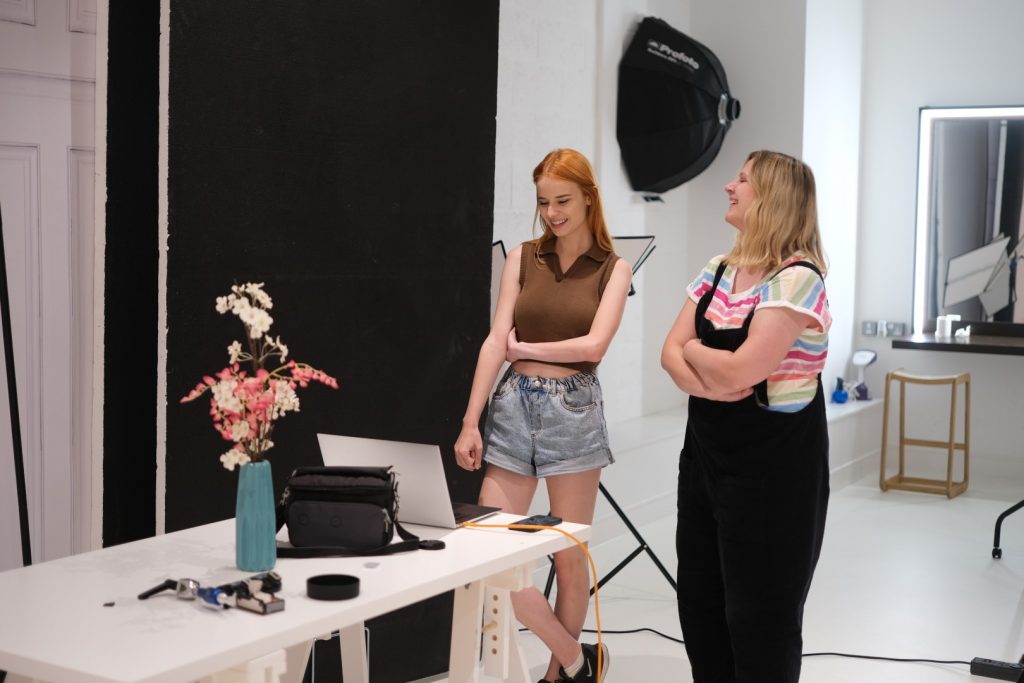
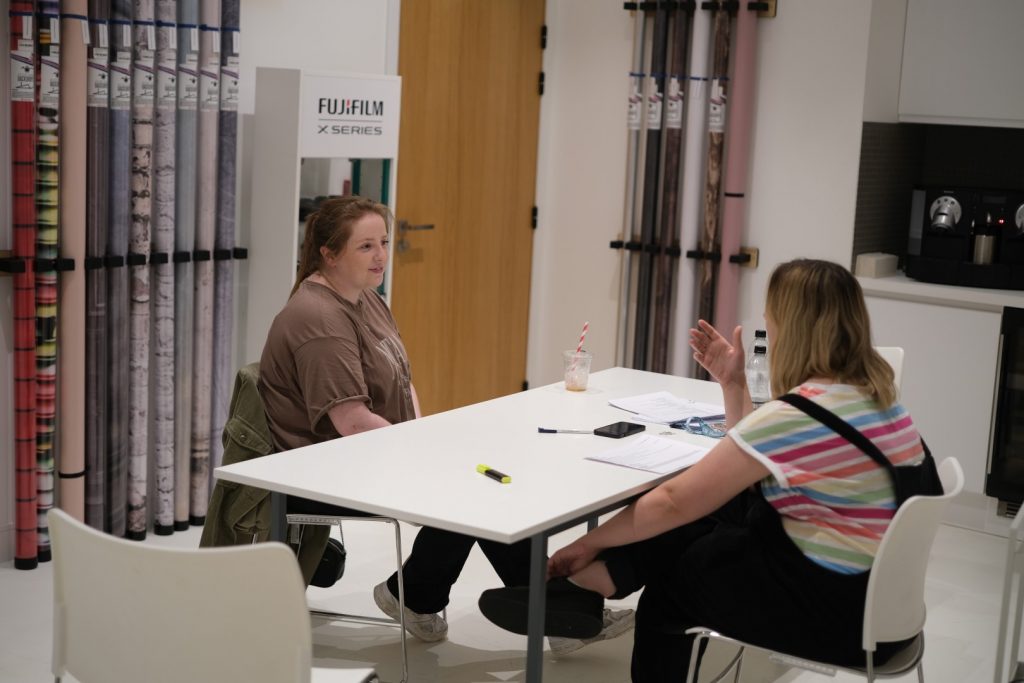
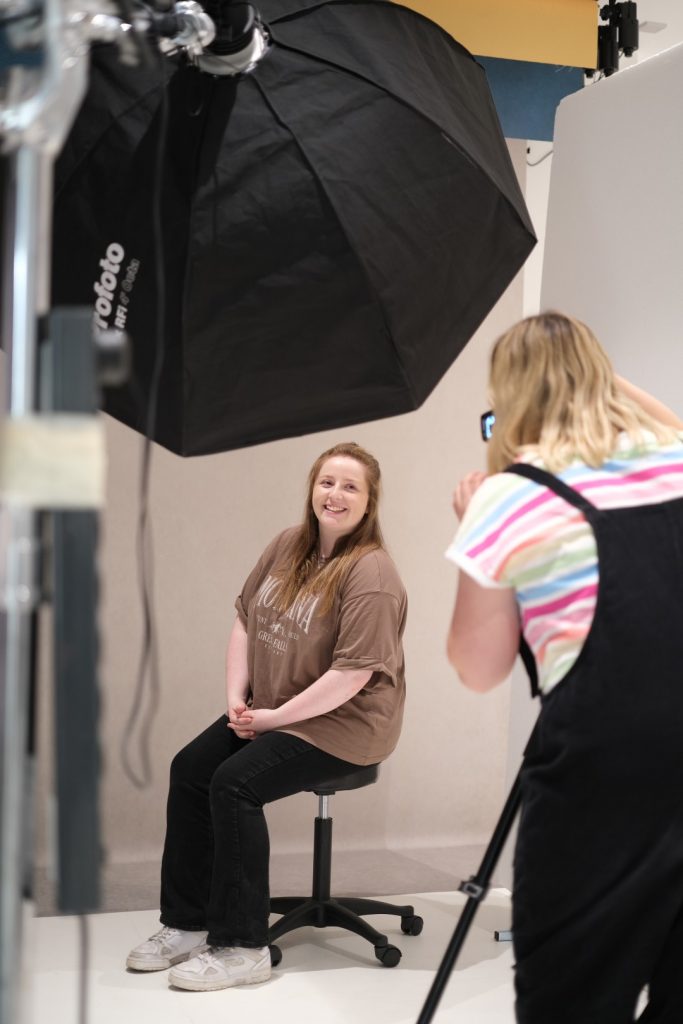
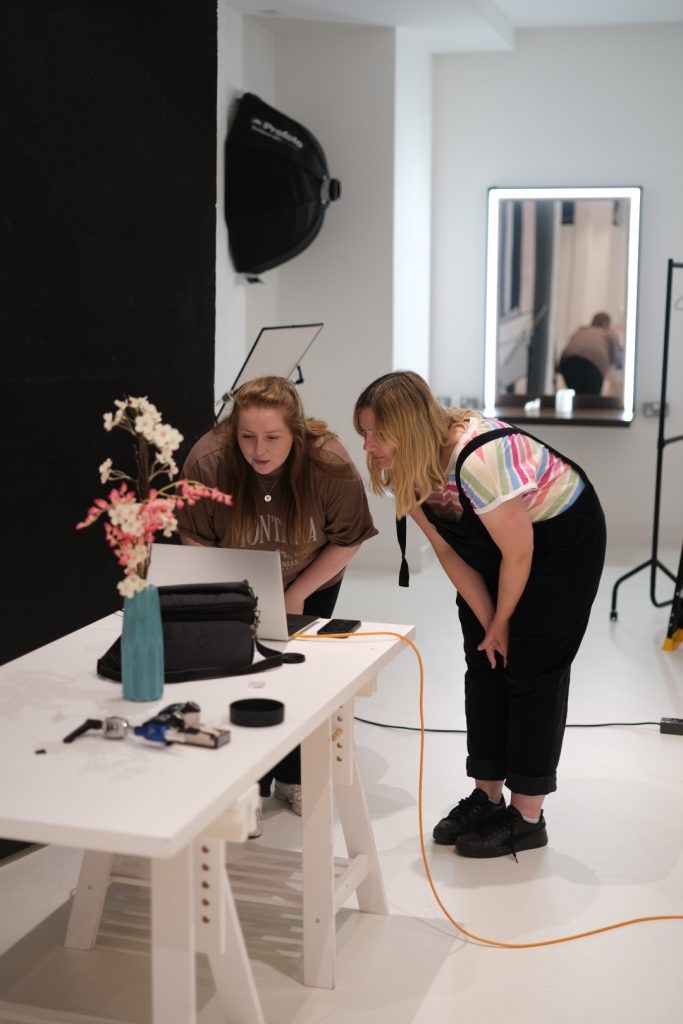
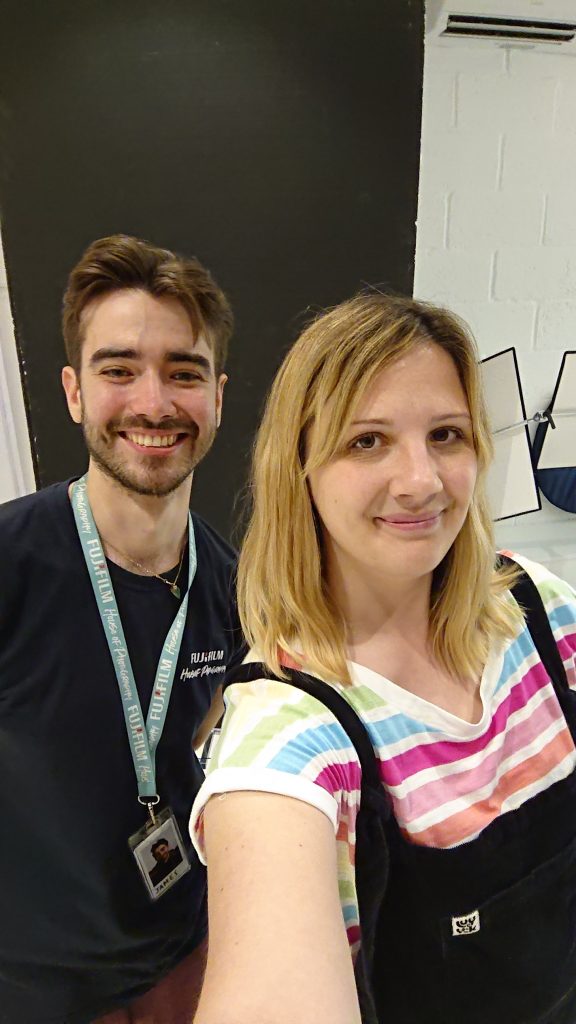
What an awesome project, kudos to you. Though I knew selfies often are edited extensively, I had no idea the phone camera itself distorted the proportion of the image too…the more you know! I also found it interesting that there’s pattern to how participants edited themselves based on their cultural background and/or their perceived flaws. For example, I am Japanese just like Ayumi (presumably,) and I found her edits making herself look paler very much relatable because white, porcelain skin is a heavily emphasized as a beauty standard in Japan. Women who are more overweight than our unrealistic body image makes themselves look slimer, those with lighter eyes makes the color more vibrant, most puts on their biggest smile, except ones who look more “alternative” in their presentation, etc. etc. It can be hard to see just how big the impact society has on how we present ourselves until it’s presented side by side.
The only thing I think could’ve made the project better would be if the selfies used for comparison was taken from what they have posted online in the recent past. There are possibilities of the participants not making themselves look as “pretty” as they usually would for the selfies used in the article for fear of looking foolish when it looks too dramatically different from your photos — I admittedly think I might be inclined to do this if I was participating.
Hi Yuka! Thank you for your insightful comment, really enjoyed reading your thoughts about the project! Yes, Ayumi is Japanese, and she did mention light skin I think when we were chatting casually after the shoot. You make a valid point about possibly using older selfies of each woman to avoid them subconsciously doing the selfies differently than they normally would, that would actually be an interesting thing to try. I suppose the one reason not to do that is that I wanted the background of both the selfie and the studio portrait to be the same, otherwise the difference in background may be distracting from the actual faces of the subjects. But I will have a think about this for the next phase! Thank you again! 🙂